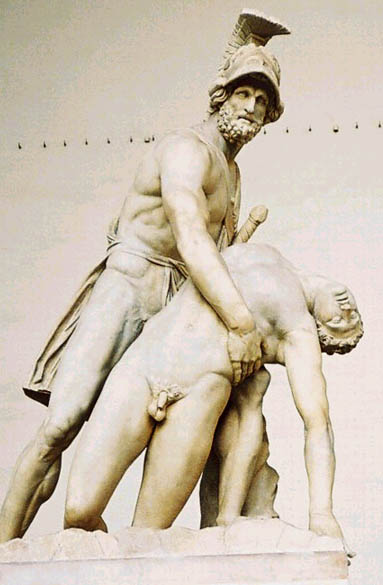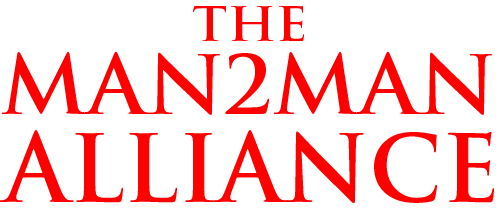




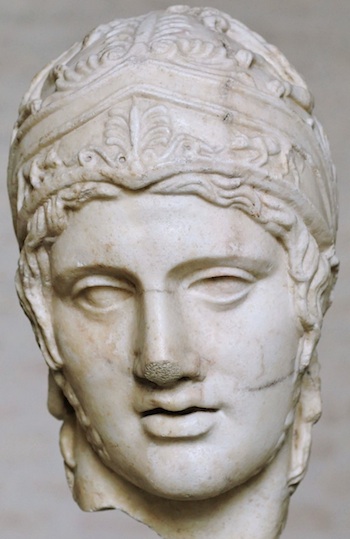

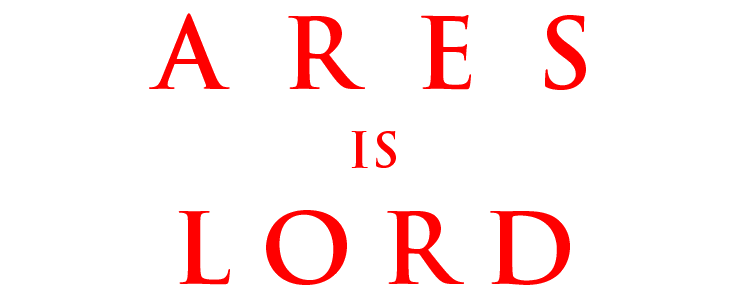
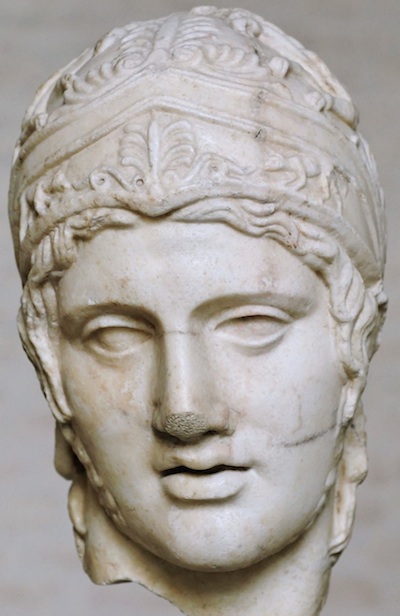









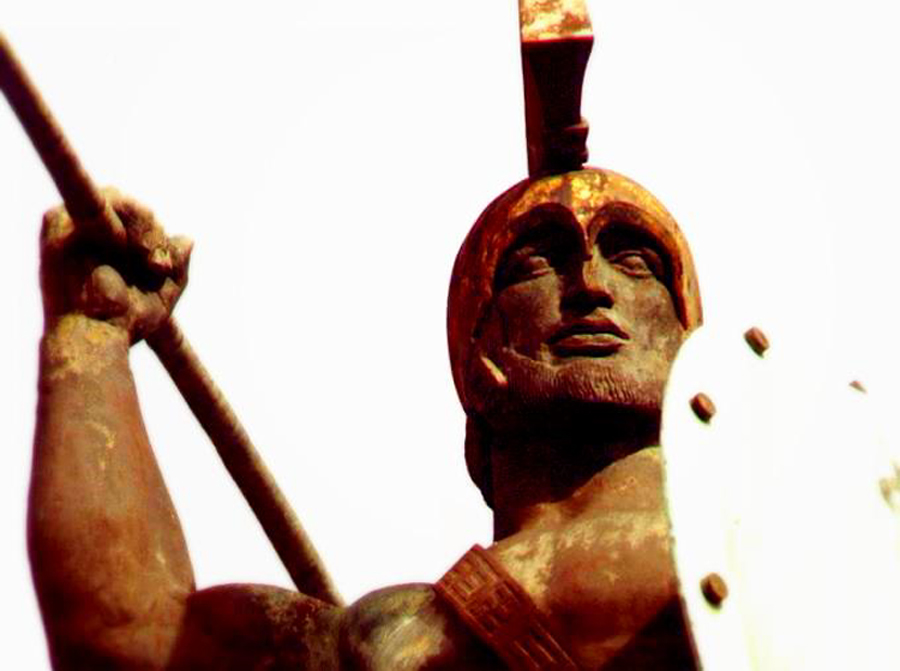


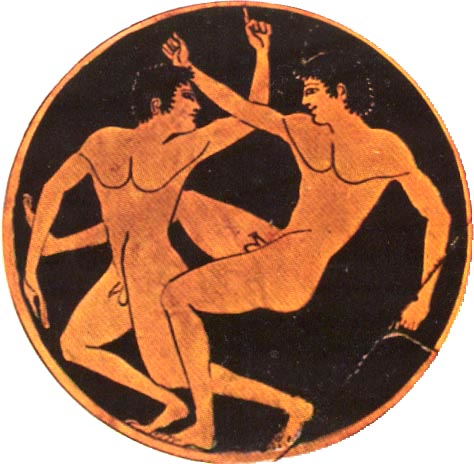
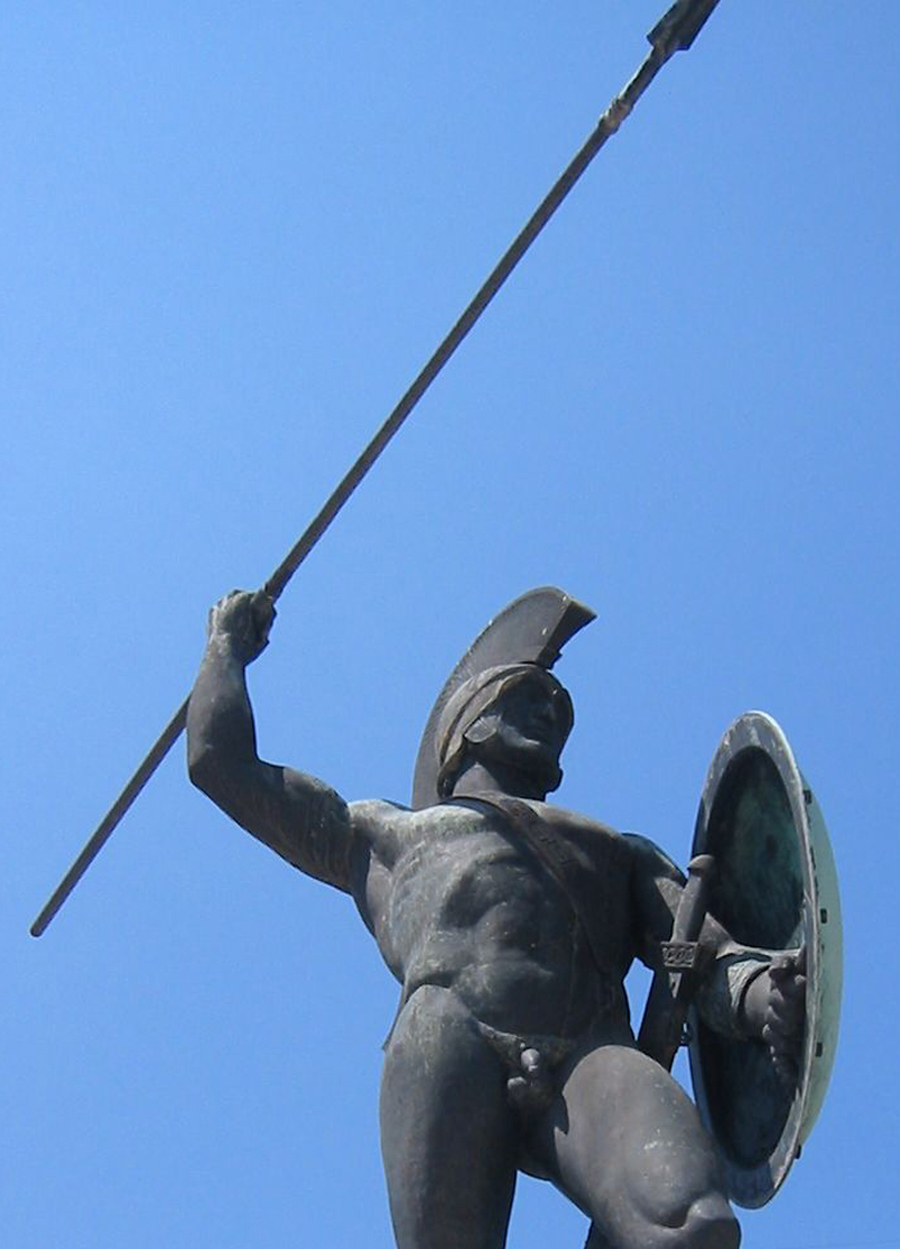
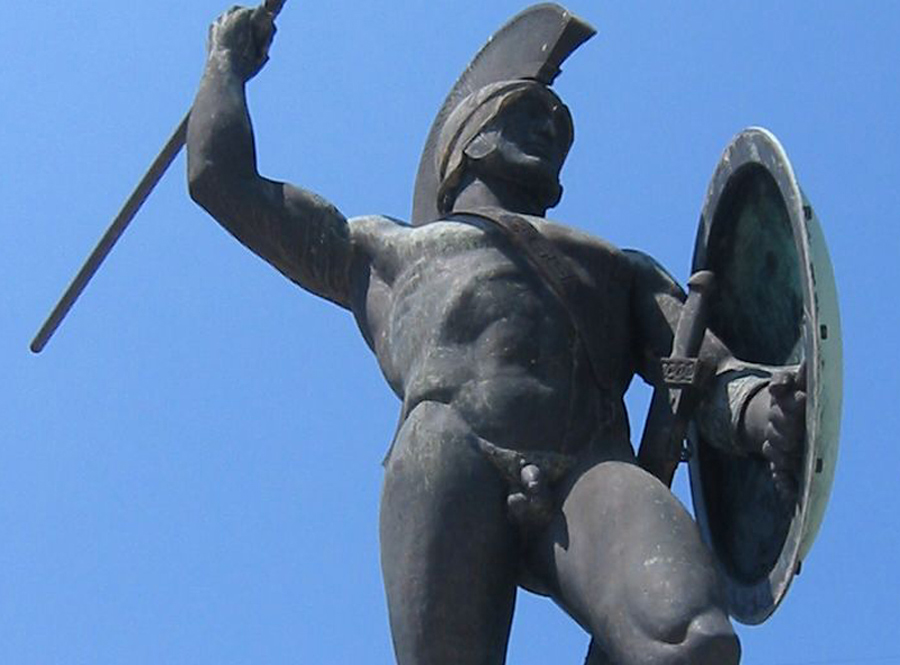
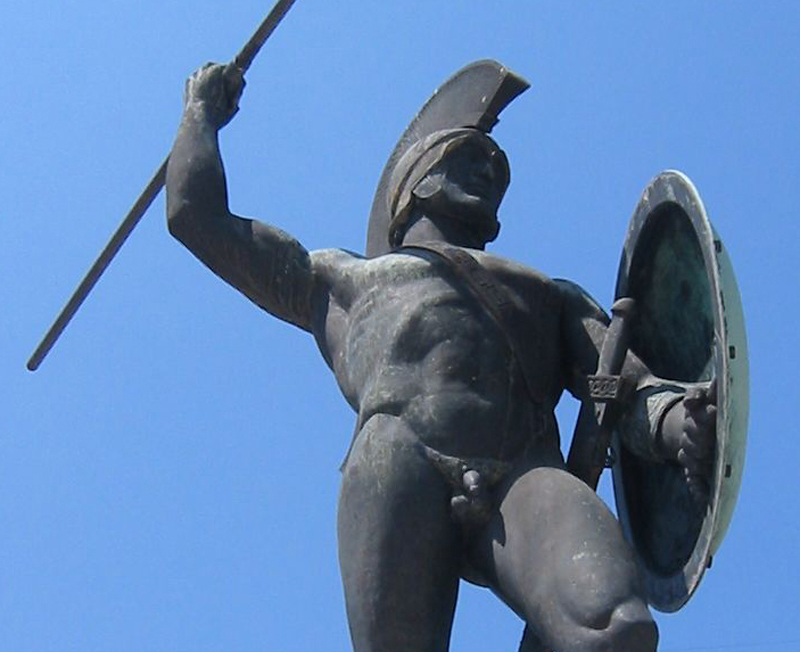
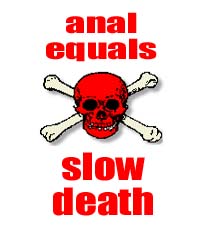

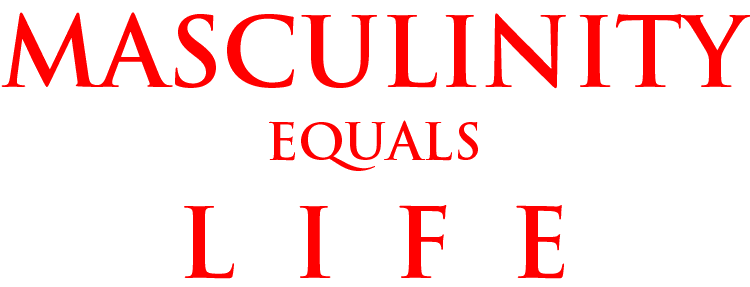







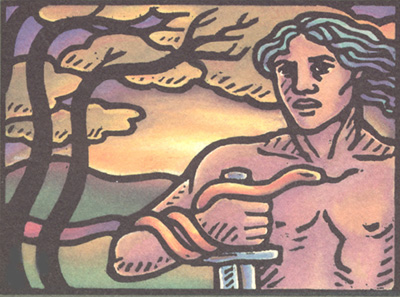


MANHOOD: A Reductional, Functional, Teleological, Incantational, and, above all, Sanctional --
Lexicon
Hi guy.
Welcome to Biblion Deuteron and Biblion Triton-- Books II and III -- of Manhood: A Lexicon.
My name is Bill Weintraub, and I'm the creator of The Man2Man Alliance and Ares is Lord websites, and the author of Manhood: A Lexicon.
Manhood: A Lexicon is, basically, a book -- masquerading as a webpage.
And, like any book, it's best read from the beginning.
So -- I strongly encourage you to read, if you haven't already, the Prefatory Note and Prolegomena to Manhood: A Lexicon ;
And then Biblion Proton.
Reading the Prefatory Note and the Prolegomena, followed by Biblion Proton, will greatly aid your understanding of the material you encounter in Biblion Deuteron, Biblion Triton, and the succeeding books of Manhood: A Lexicon.
July 9, 2013
BIBLION DEUTERON
By Bill Weintraub
Ιn Book I -- Biblion Proton -- of our Reductional, Functional, Teleological, Incantational, and Sanctional Lexicon of Manhood, we saw how ancient Greek words which are often translated as Goodness, Virtue, Righteousness, Excellence, Valour, Nobility, Moral Beauty, Honor, and Worth -- all *reduce* to Manhood.
So -- if we take any ancient Greek word in our Lexicon of Manhood, and reduce that word, if we strip away -- reduce to nothing -- all the non-ancient, extraneous, accretions of Christianized and heterosexualized fat that adhere to terms and concepts like nobility, honor, and moral beauty -- what's left is the lean and mean Manly Essence -- Manhood.
Moreover, when we rid ourselves of those pacific and effeminized accretions -- what we see is rough and tough Manliness.
Manhood.
Fighting Manhood.
Lean and Mean ;
Ruff and Tuff.
A good example of that Lean and Mean, Ruff and Tuff Fighting Manhood is the passage in Plato's Republic where Plato says that if the Warriors -- whom he calls Guardians -- in his ideal city-state disagree, they'll settle the argument with their fists:
Between age-mates and comrades, to defend oneself using one's fists is both morally beautiful and just, says Plato.
If that's so, if using your Fists is Morally Beautiful -- which is what Plato says it is --
then Moral Beauty resides in Manliness.
Moral Beauty *is* Manhood.
Fighting Manhood.
Fighting Manhood is Moral Beauty.
Which means that we can say, and correctly, that ancient Greek terms and concepts like to kalon -- Moral Beauty -- which is used to characterize both Victors in Fight Sport and Men who die in Battle beside their Lovers and for their Lovers -- "reduce" to Manhood and are functionally the same as Manhood.
To a Greek, then, this is Moral Beauty -- which is Manhood:
And so is this:
And so is this:
And so is this:
And actually, in this last picture, there are two acts of Moral Beauty -- that is, Manhood -- displayed.
For Ajax, at risk of his own life, has defended Achilles' body and prevented the Trojans from carrying it off and desecrating it ;
while Achilles has died because he avenged his Lover's death.
And of course those acts are also expressive of Timé.
Which means that Timé -- often translated as "honor," but which means Worth -- is clearly Manhood.
Worth is Manhood.
And Manhood is always linked, in some way, to Fighting.
Remember Sokrates' remark about the people with broken ears:
Fighting and Manhood.
Fighting -- Machomai -- μαχομαι -- and --
Manhood -- Andreia -- ανδρεια.
The two are always linked.
Which is why we can say this:
And, of course, and above all --
Areté itself is -- MANHOOD.
FIGHTING MANHOOD.
So -- Liddell and Scott are absolutely correct when they say that "the first notion of goodness -- is Manhood."
Goodness is Manhood.
Manhood is Goodness.
And so deeply is that idea enshrined in ancient Greek culture and thus character, that, as we also saw in Book I, ancient Greek writers like Plato and Xenophon turn the various words which connote Manhood, Manliness, the Male, Fighting, etc. -- into Incantations.
Incantations of Manhood.
Manhood.
Which is the first notion -- of Goodness.
And which the ancient Greek words themselves make plain.
Manhood is the first notion of Goodness.
Now:
In Book II -- Biblion Deuteron -- of our Lexicon of Manhood, we're going to look at five terms -- in English -- which express ancient Greek concepts --
And we'll see how that First Notion of Goodness -- Manhood -- becomes, in the Warrior Kosmos, the Primal Love.
And the Father of All.
Here are the five terms we're going to consider, presented not in alphabetical order, but in the order in which we'll look at them:
And please don't be frightened by those terms.
I'm going to make them easily understandable for you.
As you'll see when we get to them -- in a few moments.
First, however, let's begin with a small re-cap of what we've seen so far:
We've seen that the equation and identification of Virtue with Manliness, and of Goodness with Manhood --
indeed of Goodness, Virtue, Righteousness, Excellence, Valour, Nobility, Moral Beauty, Honor, and Worth --
with Manhood --
Fighting Manhood --
is typical in ancient Greek literature.
Very, very, very, very typical.
Very, very, very, very common.
For example, in this line from Plutarch's Life of Dion, describing an encounter between Plato and the tyrant of Syracuse, Plutarch says,
So -- "Human Virtue" and "Manliness / Manhood" are juxtaposed, equated, identified one with the other.
And the word translated as "manliness" is andreia; which is how the standard Ancient Greek Lexicon, written by Liddell and Scott, translates it:
manliness, manhood, manly spirit, Lat. virtus, Trag., etc.
Nevertheless, sometimes, a translator will render the word "andreia" as valor -- as happens in this passage we looked at in Biblion Proton when Sokrates is talking about the "broken ears" -- battered and broken from Boxing -- of the Spartans and their allies:
Doesn't matter.
Because the word is still -- Andreia -- MANHOOD:
manliness, manhood, manly spirit, Lat. virtus, Trag., etc.
Which means that the passage actually reads -- and meant, to a Greek -- this:
Now, you'll notice that within the translation of andreia there's a link for the Latin word virtus, and if you click on that link, here's what you see:
manliness, manhood, strength, vigor, bravery, courage, excellence
So both andreia and virtus mean manliness and manhood.
And virtus, like another ancient Greek word, areté, also means excellence.
Returning to the Greek word andreia, we find there's this additional definition from Liddell
manliness, manly spirit
That definition adds, under letter A, Roman numeral IV, that andreia can also mean
membrum virile
-- that is, from the Latin, "the male member" -- the penis.
And it should be noted in that regard that, for the Greeks, as for us, psychological and spiritual Manhood and physical Manhood -- the Male Genitals -- are intertwined and inseparable.
Though, of course, their view of the Male Genitals isn't debased or deformed as ours is; rather they see the Male Genitals as the physical source of Man's Willingness and Need to Fight, and therefore, like Manhood itself, as sacred and worthy of awe and reverence.
Finally, returning to the Latin word virtus, we find this longer definition:
f. vir, manliness, manhood, i. e. the sum of all the corporeal or mental excellences of man, strength, vigor; bravery, courage; aptness, capacity; worth, excellence, virtue, etc
So -- in Latin the word for manliness, manhood indicates "the sum of all the corporeal or mental excellences of man, strength, vigor; bravery, courage; aptness, capacity; worth, excellence, virtue."
Which is how it is in the Greek.
Because the Greek word Areté, which, as we've much discussed, derives from the name of the Warrior God, Ares, the God of Warrior Ecstasy, the God of All Fighting, and the Personification of the Fight -- that word, Areté, ALSO means Virtue and Goodness, as Liddell explains:
Manhood.
"the first notion of goodness being that of manhood"
And, Liddell and Scott re-inforce that point by saying that areté is
Manhood.
"goodness, excellence, of any kind, esp. of manly qualities, manhood, valour, prowess"
Manhood:
The first notion of Goodness.
The first notion of Goodness is that of Manhood.
Manhood.
Areté is goodness and excellence, especially of manly qualities, bravery in war, that is valour and prowess -- which are, as we learned in the Prolegomena, the two prime components of Manhood --
True Manhood, which is Fighting Manhood.
And, you'll notice, if you click on this link which takes you to Liddell and Scott's definition of areté, --
And Yes, I know I discussed this both in the Prolegomena and in Biblion Proton; and I'm discussing it yet again -- because I want you to understand and comprehend, beyond the shadow of any doubt, that the intense and seminal relationship between Ares, the God of Fight, of Manhood, of Fighting Manhood -- and areté -- one of the most important words in the Greek language -- is NOT some figment of Bill Weintraub's imagination.
That it is, rather, visible, both in print and online, in the most authoritative Ancient Greek Lexicon, that of Liddell and Scott, who make the relationship plain by putting the word areté followed by the word Ares at the very beginning of their definition of areté, thus:
αρετη Αρης
And while I know most of you don't read Greek, it's easy to puzzle out.
The Greek letter A looks like our letter A in both upper and lower case.
The Greek letter R -- which is Rho -- looks like our letter P in both upper and lower case.
T -- looks like -- T.
While there are two Greek letters which have an "e" sound:
One is epsilon, which looks our letter E, and the other is eta, which in lower case looks like our lower case letter n.
And that's it.
αρετη = areté;
Αρης = Ares.
And there's an extremely strong relationship between the two, which Liddell and Scott express by putting the two words side by side:
αρετη Αρης
Are these the only two words which Liddell and Scott display in this way?
No.
They do it whenever they want to point out a strong relationship between words.
For example,
Mache -- [a] battle, fight, combat ; is paired with Machomai -- to fight, to fight with, ie, against ;
μαχη μαχομαι
and
Polemikos -- warlike, martial, skilled in war ; is paired with Polemos -- [a] battle, fight, war.
πολεμικος πολεμος
And clearly, in the latter case, the word Polemikos -- warlike -- derives from Polemos -- battle, fight, war.
Just as:
Areté -- Manhood, virtue, excellence, goodness -- derives from, is rooted in, Ares -- the Warrior God, the God of Battle, the God of Fight, the God of Manhood, the God of Fighting Manhood.
αρετη Αρης
Αρης is the root and the source -- of αρετη.
Which makes sense.
It makes sense that Ares, the God, the vast spiritual force, who both creates and empowers Fight and Manhood -- would be the root and the source of the human quality we call Fighting Manhood -- of areté -- of Manly Excellence, Valour, Prowess, Goodness, and Virtue.
So:
Areté -- Manhood -- which is valour, prowess, goodness, excellence, and virtue -- flows from Ares -- the God of War -- or, to be more precise, the God of Fight.
And, again, if you click on the Latin -- that is, Roman -- word virtus, a word most often translated as Virtue -- this is what you see:
So -- for both the Romans and the Greeks, and in both Greek and Latin, Manliness and Manhood are Goodness and Virtue.
Indeed, Liddell, echoing Plato, as you'll see in just a few lines, says that the first notion of goodness is that of manhood, bravery in war.
"the first notion of goodness is that of manhood"
The First Notion.
"the first notion of goodness is manhood"
That's a really significant phrase, not simply in and of itself, but because, as I said, it echoes something Plato says -- in the dialogue known as the Lysis -- which is a discussion of friendship in the context of male-male Love.
This is what the great classicist Werner Jaeger says regarding that "first notion of goodness":
"the understanding reader will realize that 'the first beloved' [proton philon], for whose sake we love all other things, implies the highest value, Good in itself."
Proton Philon -- First Love.
Jaeger translates "proton philon" as "the first beloved" -- which in the context of the Lysis, a discussion of friendship among youths involved in the intense bonds of Male-Male Love -- makes sense.
Another classicist, Lamb, translates it as "the original friend."
That too makes sense, so long as you understand that "original" means really really really original.
Primal, in other words.
Which is why we can call it the Primal Love.
And that's what Liddell and Scott are referring to in their phrase "the first notion of goodness."
The "first notion of goodness" is the Primal Love.
And the Primal Love is --
MANHOOD.
MANLINESS.
MANLY SPIRIT.
Which is the first notion of goodness.
The primal notion.
The First Idea.
And that could not be more clear in ancient Greek literature.
So:
Let's look again at the quote from Jaeger and make it specific to Men:
So:
The Primal Love is "the source and origin of all friendship between Men."
And that Primal Love is Manhood.
"It is because of our general love for this ultimate object of desire -- Manhood -- that we love any individual. That is what we are trying to attain or realize in every kind of association with other Men, whatever its character may be."
Manhood is the ultimate object of desire.
We Love Manhood.
And it's because of our general love and desire for Manhood -- that we love any individual Man.
Manhood is what we're trying to obtain and achieve in every kind of association with other Men.
Including, and not least, Fighting.
Manhood is what we're seeking to obtain and achieve in every kind of association with other Men.
Including Fighting.
Again:
We Love and Desire Manhood.
And it's because of our general Love and Desire for Manhood -- that we Love any individual Man.
And want to Fight -- any individual Man.
Now --
Following his discussion of that Primal Love, Jaeger then makes reference to and links it to -- the "Idea of Good."
What is the Idea of Good?
It's an Idea -- or a Form, or an Essence -- which dwells in a mysterious realm known as the World of Being.
In the World of Being, an equally mysterious element known to Platonists as the Idea of Good -- which is the Highest Good, the Supreme Good, Good in itself -- rules.
And in the Warrior Kosmos, which for Men like ourselves *is* -- functionally -- the World of Being -- and remembering that Kosmos means both Universe and Order --
In the Warrior Kosmos, in the Manly Order, Manhood is, without question, the Idea of Good.
Which means that --
Manhood is, in philosophic terms, the Sanction -- the principle, consideration, or influence -- which impels to moral action and determines moral judgment.
And Manhood is the proton philon, the Primal Friend, the Primal Love, the First Notion of GOODNESS.
Now:
In order to understand all that, we have to look at the five terms I referenced at the beginning of Book II -- World of Becoming, World of Being, Idea of Good, Hypostatize, and Sanction -- and look at them in some depth.
I know they appear daunting.
But -- never fear.
I'm going to break them down for you, and explain them to you in easy steps.
And in my experience of doing that with our Warriors, Warriors like NW, is that if those Warriors make the effort to understand what these words mean -- and mean for them -- the result is life-altering -- because it's liberating.
And let me say also that these terms had been drifting around Greece, philosophically and otherwise, for quite some time, and as I'll make clear later in this article, before Plato.
So they're not, in that sense, unique to Plato.
But just as the Spartans took the idea of to kalon -- moral beauty -- and ran with it ;
so did Plato with these concepts.
And by doing that he made them foundational to Greek thought.
So we need to understand them -- in order to understand both the archaic and classical Greeks -- Men like Pindar and Plato and Xenophon ; and all subsequent philosophizing by the Greeks -- including the Neo-Platonists -- like Iamblichos.
So -- let's start with
and --
and you'll see that this simple distinction -- between Being and Becoming -- is really quite commonsensical.
So -- in an email, Warrior Man Brian Hulme told me he'd read Plato's Symposion, and said of it
To which I responded:
Right!
And very well said!
And, Warrior Man, and the rest of you guys, that distinction, between Eternal Wisdom and Truth -- and transient and ephemeral opinion -- is a critical one both for Plato and for the ancient Greeks in general.
An earlier ancient Greek philosopher, Parmenides, whom Plato liked, also differentiated between the Way of Truth and the way of opinion.
And so did Plato.
What then is that about?
Well, Plato said that we, as human beings, inhabit two different worlds.
The first is the world of becoming -- which he also refers to as the "sensible realm."
It's "sensible" because we experience it through our five senses of sight, touch, taste, smell, and hearing.
In the world of becoming, as its name implies, things are always becoming -- and therefore changing.
For example, among living things, a seed is planted, a seedling sprouts, grows, becomes a mature plant, flowers, bears fruit, and then decays, dies, and decomposes.
So it, like all living things, is in constant flux.
It's always changing.
And is never quite the same plant.
And obviously that's true of living things in general.
But it's not just living things.
Even in the inanimate world, there's constant change.
The weather changes -- from fair to foul.
There are earthquakes.
Volcanoes erupt -- and then grow quiet.
Rivers flow -- and change their banks.
The world is in a constant state of becoming.
Becoming one thing -- from another.
And because the world of becoming is in such constant flux, Plato argues, we can never truly *know* it.
We can only have opinions about it.
Opinions which will, inevitably, change.
Just as the plant -- and the planet -- changes.
Because our opinions are about a world which itself is constantly changing.
But, says Plato, there's another World.
And that's the World of Being.
Also called the "intelligible realm."
That is, we know it -- through our intelligence -- our ability to think.
That World consists of Ideas.
Ideas like Truth, Goodness, Beauty, and Manhood --- which as we've seen, are virtually always and for all practical purposes, the same thing for the Greeks.
That is, that for the Greeks, as for us, Manhood is Truth, Manhood is Goodness, Manhood is Beauty.
And, in the World of Being, there are other Ideas, such as Geometric Forms, like Circle and Sphere and Square.
And other Ideas -- like Equality.
Plato says that these Ideas, these Ideas which inhabit the World of Being, are Eternal and Immutable -- that is, UN-changing.
They never change.
Nor do they ever cease to exist.
And because they are unchanging, we can, if we put our minds to it, KNOW them.
And our knowledge of them can be absolute -- because they themselves are absolute.
They are Eternal Ideas, Forms, Essences -- or if you wish, Concepts -- which NEVER CHANGE.
They're not born, and they don't die.
Nor do they change like the weather.
Or the course of a river.
Rather, They Exist -- Changeless -- Forever.
So -- by studying the World of Being, we're led to the Way of Truth.
The best the world of becoming can do -- is give us some opinions.
But the World of Being -- can teach us the Truth.
And thus give us real Knowledge.
So -- let's take some examples:
In the world of becoming, the world of the senses, a man might take a stick, measure it, cut it carefully in half, and then say that he has two "equal" sticks.
But does he?
No.
It's not possible, because the two halves will inevitably differ in minute ways.
Which means they're not truly equal.
Whereas, we can, in the World of Being, contemplate the Idea of Equality -- which there is perfect and immutable.
Perfect Equality, then, exists only in the World of Being.
We can approximate it in the world of becoming -- but never actually achieve it.
The same is true of what we can call "Circularity" or -- a Circle.
King Midas -- or the US government -- mints coins in the shape of circles.
They're circular.
But are they true circles?
No -- they can't be.
Inevitably, they have imperfections which make them less than true.
Moreover, as the coins circulate and are used, they become worn, and decay.
Inevitably.
As time goes on, they become less and less circular.
What that means -- and understanding this is critical -- is that:
The circular coins we see in the world of becoming are *copies* of the perfect Circle which exists in the World of Being.
That's the first point, and, again, it's critical:
What we experience in our daily life and through our five senses -- are *copies* -- Plato sometimes uses the words "shadows" or "reflections" or just "images" -- but above all, what we see in the world of becoming is a *copy* -- of something PERFECT and TRULY REAL which exists *only* in the World of Being.
And, again, it's essential that you understand this, guys:
Copies are NEVER perfect.
They're always imperfect, and they will always change, and decay.
For that reason, and again, the best you can do with a copy is have an opinion about it.
So -- you can look at a coin and say -- This is a circle.
But is it really?
No.
It's just a copy -- of the Idea or Essence or Form -- of Circle.
Now guys, let me just say that this proposition from Plato -- that there's a world of becoming and a World of Being -- does not seem to me to be in any way radical -- or even debatable.
It's a truism -- something that's true on its face.
Reasonable people can certainly debate the details.
For example, Plato believes that the World of Being exists *independent* of human beings.
Translation: even if there were NO human beings to think about the World of Being, it would still exist.
Classicist R G Bury:
Let's look at that:
The Ideas -- variously called Ideas, Forms, or Essences -- are eternal, immutable, self-subsistent essences -- and "self-subsistent" means they exist independent of us humans ; even if we didn't exist -- they would.
Can reasonable people debate that?
Sure.
But -- Plato is very very very very very very very very smart.
And there's a reason he believes, and says, what he does.
Which is -- in short -- that the Universe makes a lot more sense -- if those Ideas are indeed self-subsistent.
Godlike -- you might say.
And he's right.
The Universe -- the Kosmos -- and remember, once again, that Kosmos is a Greek word which means Order --
makes a lot more sense -- if the Ideas -- are Eternal, Immutable, and Self-Existing.
If those Ideas have, in other words, a real identity and real existence, independent of human beings.
Which brings us to another one of our Manly Lexionic words:
~Webster's Ninth New Collegiate Dictionary, Merriam-Webster, 1983
So -- that's the dictionary definition -- but what does it mean?
Well, our word hypostatize is derived from the Greek
hypostasis is "reality, real nature, essence"
While to hypostatize is "to attribute real identity to (a concept)."
Which means that you or any other human being take an idea or concept -- and attribute a real identity to it -- saying, in effect, that the concept is real and exists independent of the human mind.
Here's Platonist Paul Shorey, writing in 1934:
Many interpreters of Plato seem to assume that philosophy is, like mathematics or chemistry, a progressive science ; that Plato, though a great artist, was a primitive thinker whose methods and opinions have only an historical interest to-day ; and that his doctrine of ideas is the endeavour of an immature mind to deal with a problem which modern psychology or the common sense of any dissertation-writing philologian can settle in a paragraph. These assumptions close the door to any real understanding of Plato's philosophy. The ultimate nature of general ideas, of abstract and conceptual thought in
relation both to the human mind and to the universe is as much a matter of debate to-day as it was
in the age of the schoolmen. This plain fact of literary history is not affected by the opinion of a
certain number of materialists and behaviourists that the matter is quite simple and that there is or ought to be no problem. They may or may not be right. But the discussion continues, as any bibliography of psychology and philosophy will show. The entire literature of the "meaning of meaning" and of
"imageless thought" is a renewal of the controversy in other terms.
A great many thinkers are not satisfied with the simple evasion of Aristotle that the human mind is
"such" as to be able to experience this, namely the separation in thought of things inseparable in experience. They cannot find any enlightenment in the modern tautology that a general idea is an image
of a particular idea plus a feeling of generality. And they are not convinced that the movements of the
body, even if we concede that they run exactly parallel to the movements of the mind, really explain
them. And if we turn to the other side of the problem we find that many of the leaders of modern physics and mathematics are unable to conceive and refuse to admit that there is nothing in the objective
universe corresponding to the ideas, the concepts, the laws, the principles by which they get their
results.
The Platonic theory of ideas is a convenient short-hand, symbolic expression of the opinions that I have thus summarized. If we disregard the rhetoric and physical imagery of the myths by which Plato
exalts the importance of the doctrine or makes it the expression of the ideal for ethics, politics and
aesthetics, all that it affirms is, first, that conceptual thought is a distinct and differentiated prerogative of man not sufficiently accounted for by the structure of his body and the sensations which he shares with the animals ; and second, that there must be something in the universe, something in the nature of things, that corresponds to our concepts and our ideals -- to the principles, for example, of ethics and mathematics. These affirmations of Plato are primitive animism only in the sense in which the same could be said of the beliefs of some of the greatest mathematicians and physicists of to-day or of Matthew Arnold when he talks of a power not ourselves that makes for righteousness. This is not reading modern philosophies into Plato. It is merely giving him credit for knowing and intending what he in fact
says.
[emphases mine]
Now -- I know that's complicated.
But here's Shorey's key point:
"there must be something in the universe, something in the nature of things, that corresponds to our concepts and our ideals"
How about it?
Manhood -- is both a biological reality -- and, as our Lexicon has made abundantly clear, a spiritual Ideal.
Do you believe that there must be something in the universe, something in the nature of things, that corresponds to that ideal?
Speaking for myself, the answer is Yes -- I sure do.
And that's for the simple reason that I've always experienced Manhood -- spiritually.
That I have, since childhood, seen Manhood, as a spiritual essence, and, for me, the Highest Spiritual Essence.
And as you'll see in a bit, I'm not alone in that experience.
For now, and again, for me:
Manhood is the Highest Spiritual Essence:
Which is why the images which I present in my articles are for me -- and for many of you too -- so powerful.
Because, for many of you, as for me, Manhood is a Spiritual Essence, and the Highest Spiritual Ideal.
And these images, images like this one of the Victorious Boxer
which I repeat frequently and purposefully -- these images express, as Jaeger says, an "ideal unity of physical and spiritual which . . . indicates how we must understand the athletic ideal of manly prowess" -- that is, Manhood.
And, Jaeger adds,
The athletes who appear in early Greek sculpture are the embodiments of the noblest gymnastic areté of a young man in the full power of health and training.
These "are the embodiments of the noblest gymnastic areté."
Areté -- Excellence -- Virtue -- Goodness -- Manhood.
Noblest -- Gymnastic -- Areté.
Noblest -- Nude -- Manhood.
Note that Jaeger, like the Greeks, doesn't hesitate to combine not just Noble but Noblest -- with Gymnastic.
Gymnastic always means Nude and always signifies the Palaistra-Gymnasion, the place of *public* and *communal* Nude Training and therefore Nude Struggle -- Nude Fight.
So -- public Nude Struggle and Fight is regarded as
It's "the noblest gymnastic Areté".
Again, because all of Greek life is "agonal" -- it's about Aggression, Struggle, and Striving -- all in the service of Perfection.
And Perfection is Areté.
Perfection is Manhood.
Why does Nudity matter?
Because the Nude Man has been stripped of anything extraneous to himself -- of anything extraneous to his Manhood:
The Games gave birth to yet another Greek idea, a whole attitude to life -- the attitude of a free man competing with his peers, naked, unfettered by any element foreign to his own body, conforming only to the rules of the game, with the sole aim of winning for himself an olive crown -- in other words a purely moral victory -- and the praise of his fellow men.
~ Andronikos, The Greek Museums, 186
So: the Nude Male, unfettered by any element foreign to his own body, is Free to seek a purely *moral* victory.
The Fight is pure, the Fight is unfettered, the Fight, the FreeFight, the ManFight, is Manhood against Manhood, and that alone.
And the goal, again, is a purely *moral* victory, an expression of Excellence and Virtue -- that is to say, Areté.
Manhood.
Now -- let's come back to Jaeger's statement that an image like the one above, expresses an "ideal unity of physical and spiritual which . . . indicates how we must understand the athletic ideal of manly prowess" -- that is, Manhood.
There's an ellipsis in his statement -- which I put there.
Here's what he actually said:
Is Jaeger right?
Is "the ideal unity of physical and spiritual which . . . we still admire in the masterpieces of Greek sculpture, [and which] indicates how we must understand the athletic ideal of manly prowess" -- now "irreparably lost to us"?
Is that so?
Well, maybe for him, and maybe for you, but not for me.
When I think of Manhood, the Ideal of Manly Prowess, I think of it exactly and precisely as an "ideal unity of physical and spiritual."
That may make me, in our triste monde moderne, a very odd duck -- but it is, nevertheless, how I think of it -- which means that for me, it has NOT been lost.
What about for you?
I've said that, "For me, as for *many* of you, Manhood is a Spiritual Essence, and the Highest Spiritual Ideal."
So I qualified what I said about -- you.
I said "many of you."
Because it's unlikely that that's true for *all* of you.
And that's something Plato understood.
He believed that virtue -- and notice the lower case "v" -- could be inculcated -- drummed into -- most people; but that Knowledge of the Highest Virtue -- was a divine gift.
A gift of the Gods -- or God.
A gift made only -- to the few.
Are you one of those few?
You may be, and you may not.
But -- supposing that you're not --
The fact that *you* don't experience Manhood as a Divine Gift -- doesn't mean that other Men cannot or do not.
In point of fact, MEN DO.
We do experience Manhood as a Divine Gift.
Manliness is a Divine Principle ;
and Manhood -- a Divine Gift.
While Fighting -- can be and should be -- Sacramental.
Which is what makes Plato's "hypostatization" of Manliness, Manhood, Manly Spirit -- his Idealization of them, if you will -- so very helpful -- to Men.
Moreover:
If, as Jaeger says, we can still admire "the ideal unity of physical and spiritual" we see "in the masterpieces of Greek sculpture," and with that unity "the athletic ideal of manly prowess" --
which is Manhood --
doesn't that admiration suggest that -- that "ideal unity of physical and spiritual" has NOT been irreparably lost to us?
That it simply needs to be --
That's what I believe.
And it's not just an intellectual belief.
It's based on my own life experience.
Men can be re-awakened to Manhood.
All men?
I don't know, but my guess is, probably not.
Because "life" in the world of becoming, the world of opinion, has left them so confused that they're no longer able or willing -- as they would have been in childhood -- to be re-awakened.
And notice I said -- "willing."
That's the critical bit.
If, as a Man, you're WILLING to be re-awakened -- you're WILLING to make the effort to find your Manhood -- you can.
In my experience of more than forty years of working with Men, what I've seen is that Men CAN be re-awakened to their Manhood ;
but that many simply don't want to make the effort.
Usually because they believe -- because they've been taught -- that Manhood is a bad thing.
It's not.
And if you're reading this page, hopefully you understand that.
Hopefully you understand that Manhood -- FIGHTING MANHOOD -- is the BEST thing in the WORLD.
The BEST.
And if *you* understand that, and if *you* will MAKE THE EFFORT --
You can be re-awakened to your Manhood.
You can.
So:
The good news is that Man -- in the form of Manliness / Manhood -- is unquestionably part of the World of Being.
Man is an Idea, a Form, an Essence.
As is Manliness.
And Manhood.
And Manly Spirit -- which is Fighting Spirit.
And in the World of Being, Manhood exists as an Absolute -- Eternal and Unchanging --
MANHOOD FOREVER.
That's the good news.
The bad news is that the Man, Manliness, and Manhood you experience in this world -- the world of becoming -- is a copy of that perfect Manhood.
And because it's a copy -- it's not perfect -- and will never be.
Alexander the Great, in my opinion, came closest to perfect Manhood -- but even he wasn't perfect.
Close -- very close.
But not perfect.
Nevertheless, Alexander was so close to perfect Manhood that, under the definition of the Greek word aristos, best, in Biblion Proton, I inserted this encomium of Alexander:
~Arrian, The Campaigns of Alexander, translated by Aubrey de Selincourt
And you know, a LOT of you guys need to take note of Arrian's last sentence:
Because, to the Greeks, who were without question experts in the Matter of Manhood -- that sort of generosity -- of Warrior Altruism -- is a PRIME ATTRIBUTE -- of Manliness.
Oh yes.
It is.
Which tells us a lot about most of you -- doesn't it?
Yes, it does.
But, for the moment, we'll put that behind us, and look at our next definition:
Now -- we're going to leave aside, at least for the moment, the vexed question, as Jaeger might put it, of whether -- if the Idea of Good is the most important Idea in the World of Being -- of whether that Idea is God.
And put it this way:
If the Idea of Good isn't God, it may be -- for certain purposes -- an Idea in the *Mind* of God.
But, Platonist Paul Shorey argues, Plato, particularly in the Republic, is not, when discussing the Idea of Good, particularly concerned with God.
Instead, and in the Republic -- and remember I said in the Republic, I did NOT say, and neither did Shorey, in all of Plato's writing -- in the Republic, Plato intends for the Idea of Good to function "teleologically" -- purposefully.
Which is another way of saying that the Idea of Good -- functions as the --
In short, the Sanction is a society's -- or an individual's -- justification -- for what it or he does morally.
It's the principle which impels to moral action and determines moral judgment.
But here's the thing:
Plato *never* says what the Idea of Good -- the Sanction -- actually is.
In the Republic, the Idea of Good -- and thus the Sanction -- is a sort of blank check -- which we have to fill in:
Shorey:
It is merely said that an ethical philosophy is not complete until we
have deduced what is our sanction.
And, he adds:
. . . ethical and social good are not sharply separable in Plato.
. . . the idea of good is simply . . . the good purpose in some
mind able to execute its purposes. It is what such a mind conceives to
be the supreme end to which all other ends are subordinated and
referred.
The cause of any political or social institution is the purpose or
idea of good in some controlling mind, and as Coleridge said and Mill
repeated after him, the best way to understand any human institution
or contrivance is to appreciate that purpose. That will throw a flood
of light on everything.
So -- let's think about that vis-a-vis first Sparta -- and then ourselves.
And remember that to Plato, the Republic -- the city-state -- was just
Man in macro-cosm.
Man the individual -- writ large.
That was a very common Greek idea -- as classicist JE Lendon says:
The quirks of the city and its folk were on display in the way the
city fought. The Spartans particularly prided themselves on, and were
admired by the other Greeks for, their quality of sophrosyne. They
displayed this in daily life with their famous terse, Laconic style of
speech, and in battle in the way they advanced to combat. The
phalanxes of other states often broke into a shambling run before
contact, overwhelmed by the excitement of danger, so ruining the
dressing of their ranks. The Spartans, by contrast, advanced to the
tune of pipe players, a practice intended "to remove anger from the
warriors," and proceeded at a walk, "without a gap in their lines, and
with no confusion in their spirits, calmly and cheerfully," without
"excessive fear or passion." It makes sense in this context that when
Greeks abandoned the all-concealing Corinthian helmet in the fifth
century, it was the Spartans who adopted the most revealing helmet of
all, the conical pilos. In the competition of self-control, the pilos
announced, the Spartans had nothing to hide, no fear or passion in
their faces. And, naturally, stung by the challenge, many hoplites all
over Greece adopted the pilos as well.
Man and State -- are reflections of each other.
The Greeks understood that.
So -- let's go back to Shorey -- and his five statements;
So --
First off, Plato doesn't give us rules to follow -- his Idea of Good
is, like I say, a blank check.
But -- we know that he really really really really liked Sparta --
Or, to put it more precisely, certain aspects of Sparta:
~Plat. Rep. 8.547d, translated by Shorey.
As you can see, those all have to do with -- Warriors -- and Warriordom -- and Warriorhood -- and -- Fighting.
All of which he made part of his ideal Republic -- as he did Spartan eugenics and other Spartan Warrior practices.
And Plato also strongly favored the high level of communal Concord, Warrior Concord, which as we'll see, existed at Sparta.
Plato really really really really liked those aspects of Sparta.
WARRIOR Sparta.
As do we.
Which leads us to
We have to deduce -- figure out -- what our Sanction is -- we have to
discover -- and eventually, we'll look at a Greek word -- an-amnesis which means UN-forgetting -- and that's what we have to do -- we have to discover, through UN-forgetting, what it is, which impels us to moral action and determines our moral judgment.
If we need to discover it through UN-forgetting it -- that is, through remembering it -- that strongly suggests, doesn't it, that at one time we knew what it was -- but have forgotten it.
Read on, and you'll learn just what that means.
Ethical = personal ; and social = communal -- good are not sharply
separable in Plato.
And they shouldn't be for us either.
Which begs the question -- whose mind?
Well, I said that we would look at these propositions vis-a-vis Sparta.
And, in the case of Sparta, the short answer to "Whose mind?" --
Is -- the Spartan Mind.
Was there a Spartan Mind?
Yes! -- as you'll see:
For, the Spartans have been characterized as "communistic" -- or, if you prefer, "communalistic" -- "aristocrats."
Communalistic Aristocrats.
And there's a lot of truth to that.
They called themselves hoi homoioi -- the Equals or Peers:
So:
The Spartan Equals were the same, alike, like in mind, at one with and agreeing with each other, always the same because they had equal advantages.
And you can see that in their way of life:
Each Warrior having been given an equal amount of land at birth, as boys the Warriors were raised together in the agogé, where they lived in little "herds" with everything in common; and as adults, that communal way of life persisted : There was, in theory and, it would appear, fact, neither rich nor poor among them, they ate communally, they shared not only food but living and sleeping quarters, horses, hunting dogs, and, on occasion -- wives -- and they strongly believed that every Warrior was Equal -- to the others.
Every Warrior was Equal -- to the others.
And just because they were equal, alike and like in mind, at one with and agreeing with each other --
Sparta itself was a
Which means there was, in the Spartan Homonoia, and as you can see from Liddell's very helpful definition, "oneness of mind or thought, unity, concord."
A trait which Plato thought was particularly valuable to a city-state -- and an individual.
So -- if we return to this statement,
"The idea of good is simply the good purpose in some mind able to
execute its purposes. It is what such a mind conceives to be the
supreme end to which all other ends are subordinated and referred."
And ask the question -- whose mind?
The answer, clearly, is that of the Spartan Homonoia -- the
Spartan Concord -- The Equals -- ; and their legendary lawgiver -- Lycurgus.
The Idea of Good is what such a mind conceives to be the supreme end
-- the supreme objective -- to which all others are subordinated and
referred.
That supreme objective, for any Man -- should be -- Manhood.
Fighting Manhood.
And that's what it was at Sparta:
Fighting Manhood is what such a mind conceives to be the supreme objective to
which all others are subordinated and referred.
In the Warrior Kosmos, Fighting Manhood is the supreme objective -- to which
all others are subordinated and referred.
And the Warrior Kosmos -- was the Spartan World of Being.
It's where the Spartans, ideationally and ideally, lived.
It's also where we, ideationally and ideally, live -- or want to live.
Because it's where we're most alive.
So -- faced with any act or situation, the question must be -- does
this act and/or my response to the act exalt Manhood?
Fighting Manhood.
Again:
Fighting Manhood -- which includes Orthos -- Manly Moral Righteousness -- and Kalon -- Manly Moral Beauty -- and Dikaios -- Manly Moral Order aka Justice -- is the
supreme objective -- to which all others are subordinated -- and
referred.
So -- the best way to understand any human institution or contrivance
is to appreciate the purpose or idea of good in some controlling mind.
Which means that the best way to understand Sparta and its institutions -- is to appreciate the Idea of Good -- Fighting Manhood -- in the
controlling mind of the Spartan Warriors who made up the assembly, the
agogé, the ephorate, the gerousia (council of elders), etc.
All Spartan institutions were made up of Spartan Warriors -- who in
turn, had been "contrived" -- shaped -- MOLDED -- by those same
institutions.
Virtually from the moment of their birth.
The supreme objective of which was --
And that should be our supreme objective.
Always.
The Molding of Men.
Morally Manly Fighting Men.
Bill Weintraub
July 9, 2013
© All material Copyright 2018 by Bill Weintraub. All rights reserved.
BIBLION TRITON
By Bill Weintraub
Ρhew!
I just gave you a lot of information, didn't I?
Yes, I did.
But -- it's important information.
Try to understand it -- read and re-read.
And know also that over the coming months, and in forthcoming articles, I'll be going over that information repeatedly -- and it will become increasingly easier for you to understand.
So -- here's a brief re-cap:
What we've seen so far -- is that among the ancient Greeks, who were a Warrior people living in Warriordoms -- Warriordoms like Sparta --
Manhood -- Fighting Manhood -- was the first notion of Goodness.
And that therefore, a great many ancient Greek words, words which expressed the highest ideals of the Greeks, and which are often translated today as Goodness, Virtue, Righteousness, Excellence, Valour, Nobility, Moral Beauty, Honor, and Worth -- all *reduce* to Manhood.
To Fighting Manhood.
That was all in Biblion Proton or Book I, and if you have any question about what I just said, you should review Book I before reading further.
We then saw, in Biblion Deuteron or Book II, that Fighting Manhood was not only the first notion of Goodness, but that it could also be identified with what was for the Greeks the Primal Love, the Highest Value, the Supreme Good -- Good in itself -- which Plato called the Idea of Good.
The Idea of Good being the most important Idea, Form, or Essence, in the World of Being.
So:
In Book II, we saw that Plato, like a number of other Greek thinkers, divided the world as we experience it into two parts, which Plato called the World of Becoming and the World of Being.
The World of Becoming is made up of objects which are in constant flux;
but the World of Being consists of Ideas, Forms, and Essences which are changeless and eternal.
Because those Ideas, Forms, and Essences are changeless and eternal, they're also perfect;
while the objects which we experience in the World of Becoming are copies -- or shadows -- of those Perfect Ideas -- copies which inevitably are imperfect and which inevitably change, deteriorate, decay -- and, eventually, disappear.
What that means, and as a practical matter, is that the Idea of Good -- is not only the most powerful Idea in the World of Becoming -- but the most powerful force -- in the universe.
Whatever that universe may be.
Because we then saw that, according to Platonist Paul Shorey, the Idea of Good can be interpreted as, simply and functionally, the good purpose in some controlling mind able to achieve that purpose.
And notice the word "mind":
The idea of good is "the good purpose in some controlling mind able to achieve that purpose."
To a thinker like Plato, mind is what matters.
Mind is what gives Life -- to life.
It's what animates and informs -- the universe.
Which means that if the universe in question was that of ancient Sparta, the Idea of Good was clearly Manhood -- Fighting Manhood -- and that the controlling mind was the communal mind of the Spartan Warriors who made up the Homonoia -- the Sparta Concord or Agreement of
Equals.
These were the Men who, as boys, had been molded by the Agogé and other Spartan institutions, institutions whose purpose was to inculcate Fighting Manhood; and who, as adult Warriors, made sure that the next generation of Warriors would be inculcated -- molded -- as they had.
So -- that's all in Biblion Deuteron or Book II -- and, again, if you're not completely clear about terms like World of Being, Idea of Good, Sanction, Hypostatize, etc -- you need to go back and re-read Biblion Deuteron.
Because -- there's one other piece to this puzzle.
Which we're now going to examine:
And that's another Greek word -- AN-amnesis -- which is best translated as UN-forgetting.
So -- Liddell and Scott use the term "recollection," which is okay -- but what we have in the Greek is a prefix -- "an" -- meaning "un"; and "amnesis" -- meaning "forgetting" -- think of our word amnesia.
When you put "an" (un) with "amnesis" (forgetting) you get -- UN-forgetting.
And, it's true and Liddell and Scott are right, the word is often translated as "recollection" -- re-collecting one's thoughts.
But here's what Plato says about Ideas in the World of Being -- particularly Ideas like Manhood and Goodness and Moral Beauty and Virtue -- and how we come to know them.
Plato says that those ideas cannot be taught in the conventional sense.
He says rather that the knowledge of those ideas is in our souls.
That our souls re-incarnate, and that in between incarnations -- embodiments -- our souls are, in some way, in contact with the World of Being -- and all the Essences there.
And in the World of Being, our souls *learn* all those Concepts and Essences and Ideas of Manhood and Manly Virtue and Manly Goodness -- and so forth.
But that they are, basically, forgotten -- when we're born.
And that they have to be, therefore, UN-forgotten.
Now:
Why would the Ideas -- be forgotten when we're born?
Well, think it through.
In the World of Being, all is Order -- Changeless and Timeless.
The Ideas neither grow -- nor decay.
They simply are.
The World of Being, therefore, is a very peaceful place.
And the soul can there contemplate the Ideas -- in peace.
And in calm.
You can see that in Greek art.
Even when the art depicts Fighting -- and Fighting Manhood -- there's a serenity and sense of eternity that radiates from the art.
For example, this statue of a Victorious Greek Boxer:
What's the statue actually about?
The boxer is looking down, serenely -- at the body of his defeated opponent.
Unlike a typical modern-day fighter, he's not jumping up and down or doing somersaults or anything like that.
He's serene.
At peace.
At Peace with his Victory.
At Peace with his Manhood.
His Fighting Manhood.
Beside him there's a small, cloaked statue.
That statue is a Herm -- a statue of the God Hermes with an erection -- a Phallus.
The Phallus is cloaked -- but it's there.
So there is, in the work, an explicit reference to the Eros of Aggression.
Which is Godly.
The God is present, and standing beside the Victorious Boxer.
And that's what gives Greek art its eternal aspect.
The sense of Timelessness, Peace, and, ultimately, Divinity.
Which are attributes of the World of Being.
The World of Being is calm and ordered, unchanging and serene.
In the World of Becoming, by contrast, all is constant and unrelenting chaos.
And it is the chaos of embodiment -- which causes the soul to forget.
The soul, therefore, once embodied, needs to be helped to UN-forget.
And it needs a STRUCTURE -- which empowers that UN-forgetting.
Again, the human being needs a structure -- institutions, methods, etc -- which will help him to UN-forget, and in a way which he can comprehend.
Otherwise, such UN-forgetting as does occur will be piecemeal, erratic, and often simply not understood by the embodied person.
STRUCTURE MATTERS.
As you'll see.
So:
Here are eight statements from celebrated classicist Werner Jaeger about Plato's concept of UN-forgetting:
[In other words, the soul wants to be opened up, awakened, revealed.]
Now -- we're going to look at what Jaeger's said, line by line and in detail -- in a bit.
But for the moment, let's think about what Jaeger's said -- in regard to Sparta.
We just saw that at Sparta, the Idea of Good -- the Sanction -- was Manhood:
Classicist Paul Shorey: "The cause of any political or social institution is the purpose or
idea of good in some controlling mind, and the best way to understand
any human institution or contrivance is to appreciate that purpose."
So -- the best way to understand any human institution or contrivance
is to appreciate the purpose or idea of good in some controlling mind.
Which means that the best way to understand Sparta and its institutions -- is to appreciate the Idea of Good -- Manhood -- in the
controlling mind of the Spartan Warriors who made up the assembly, the
agogé, the ephorate, the gerousia (council of elders), etc.
All Spartan institutions were made up of Spartan Warriors -- who in
turn, had been "contrived" -- shaped -- MOLDED -- by those same
institutions.
Virtually from the moment of their birth.
And the supreme objective of those institutions and that contrivance -- was Manhood.
Fighting Manhood.
As classicist JE Lendon says:
Fighting Manhood.
So:
If we think of that controlling mind and that purpose or idea of good -- Fighting Manhood -- in terms of UN-forgetting --
and ourselves remember that the Essence and Idea of Absolute and Supreme Fighting Manhood ultimately resides in the World of Being --
and then add to our understanding this statement from Jaeger -- "The role of sensory experience is to awaken the soul to "recollection" [ UN-forgetting ] of the essence of things seen by it from eternity" --
We can see that Spartan culture, and in particular the agogé, that is, the Spartan system of education, training, and upbringing of male children -- was designed, was structured, to continually recall the Male Soul -- to the Essence of Manliness.
To Manhood.
Fighting Manhood.
Which it had seen, as Jaeger says, "from eternity."
Again:
Spartan culture -- the structure, that is, the norms, the institutions, and the beliefs of that culture -- was designed to continually recall the Male Soul -- to the Essence of Manliness.
To Manhood.
To continually help the ManBoy's Soul UN-forget and RE-awaken -- to Manhood.
That was the purpose of the constant Fighting ; the living -- and
sleeping -- in all-male herds -- "The Herds of the Bull-Calves" ; the
male nudity ; the festivals and rituals sacred to Ares and Eros and Apollo and
Hyakinthos and Achilles and Patroclus; the lack of bathing -- they must have smelled really
sweet, and, more to the point, really Male ; and the lean diet and the all-male communal messes where the boys were taught to Think like MEN.
But above all it was the Fighting -- Nude Fighting -- the Constant,
Un-ending, Nude Male Fighting.
From boyhood forward.
From Plane-Tree Grove to the Strife of Valour, the Struggle for Manhood.
Nude Male Fighting.
Constant.
Un-ending.
Lycurgus [the Spartan lawgiver] did not put Spartiate children in the care of any tutors who had been bought or hired. Neither was it permissible for each father to bring up and educate his son in the way he chose.
Instead, as soon as boys reached the age of seven, Lycurgus took charge of them all himself and distributed them into Troops [the Spartan word was "herd"]: here he accustomed them to live together and be brought up together, playing and learning as a group. The captaincy of the troop was conferred upon the boy who displayed the soundest judgement and the best fighting spirit. The others kept their eyes on him, responded to his instructions, and endured their punishments from him, so that altogether this training served as a practice in learning ready obedience. Moreover as they exercised boys were constantly watched by their elders, who were always spurring them on to fight and contend with one another: in this their chief object was to get to know each boy's character, in particular how bold he was, and how far he was likely to stand his ground in combat.
The boys learned to read and write no more than was necessary. Otherwise their whole education was aimed at developing smart obedience, perseverance under stress, and victory in battle. So as they grew older they intensified their physical training, and got into the habit of cropping their hair, going barefoot, and exercising naked. From the age of twelve they never wore a tunic, and were given only one cloak a year. Their bodies were rough, and knew nothing of baths or oiling: only on a few days in the year did they experience such delights. They slept together by Squadron and Troop on mattresses which they made up for themselves from the tips of reeds growing along the River Eurotas, broken off by hand without the help of any iron blade. During winter they added the so-called thistledown and mixed it into the mattresses, since it was a substance thought to give out warmth.
By this age the boys came to be courted by lovers from among
the respectable young men.
~Plutarch, Life of Lycurgus, 16, 17, translated by Talbert.
Two elements:
Ares:
And Eros:
By this age the boys came to be courted by lovers from among
the respectable young men.
Male Aggression.
Male Love.
The Spartans *institutionalized* male-male love.
They didn't just tolerate it or encourage it.
They made it part of the Agogé.
So that every male experienced it.
It was core to their idea of Valour.
Their Idea of Manhood.
Male Lovers Fighting -- and, if need be, dying -- together -- on the battlefield.
Classicist JE Lendon:
At Sparta lover and beloved stood beside each other in the hoplite
line; before battle the Spartans sacrificed to Eros, to love.
Such relationships were institutionalized, played a large role in the
training of boys, and were thought to contribute to bravery in
combat.
Classicist Werner Jaeger:
It is, after all, easy to understand how a passionate admiration of noble bodies and balanced souls could spring up in a race which for countless years had prized physical prowess and spiritual harmony as the highest good attainable by man, and which had striven by grave and ceaseless rivalry, by exertion involving the utmost energies of mind and body alike, to bring those qualities to the greatest possible perfection.
Men who loved the possessors of those enviable qualities were moved by an ideal, the love for areté. Lovers who were bound by the male Eros were guarded by a deeper sense of honour from committing any base action, and were driven by a nobler impulse in attempting any honourable deed.
The Spartan state deliberately made Eros [Male-Male Love] a factor, and an important factor, in its agogé.
Lendon:
Jaeger:
Ares is the Father of Eros.
War is the Father of Manly Love.
Ares is the Father.
Eros is the Son.
And MANHOOD is the Holy Spirit.
The Male Soul experiences Manhood in Eternity.
But at Sparta, Men experienced Manhood -- in this life.
That was at Sparta.
In ancient Greece.
In ancient times.
What about us?
Living in the contemporary, material, world.
Does this still apply?
Yes.
Because the World of Being is Eternal and Changeless.
Which means that Manhood is Eternal and Changeless.
It existed, it exists, and it will always exist.
But -- the World of Becoming -- has changed.
As it inevitably does and inevitably will.
So -- whereas, in the past, most Men were born into and raised by Warriordoms, dominant, Masculinist cultures which encouraged them, in one way or another, to UN-forget the Manhood they'd experienced in Eternity --
Nowadays, most males are born into effeminized cultures which are vehemently opposed to Manliness and Masculinity, and which effectively discourage their males -- from remembering -- their Manhood.
And -- if you think that brutal fact through, if you think it through, you can see why Plato, who was, as I said, very very very very very smart -- insisted that the Ideas in the World of Being were self-subsistent -- that is, existed, eternal and immutable, independent of any human mind.
Because if they weren't self-subsistent, if they didn't exist independent of human beings, changes in the World of Becoming -- would wipe them out.
As the World of Becoming changed, in this instance, from Masculinist to effeminized, Manhood would cease to exist.
In the World of Ideas -- and thus, everywhere.
Not only would there would be no Manhood, there would be no Idea of Manhood.
Nor of Virtue, nor Goodness, nor Moral Beauty, nor Worth, nor Righteousness.
Yet Manhood -- and the Idea of Manhood and the Ideal of Fighting Manhood -- and all the Ideas and Ideals derived from Fighting Manhood -- all persist.
And we can see that when we examine the life of one of our own "Warriors," the Man who calls himself Warrior Naked Wrestler ; and whom we usually call "NW."
NW was born in the early 1960s, in the US, in a large, liberal, and very cultural-left city, where he has remained -- which means he's spent his entire life in what is de facto an anti-Masculinist and, really, anti-Man -- culture -- and thus anti-Masculinist and anti-Man -- World of Becoming.
Yet -- this is what he wrote in Aggression and the Beauty of Guys:
They were beautiful and they were aggressive. I was even more attracted to wrestling because of the full body contact. It allowed the fighters to totally physically connect to each other in the struggle for dominance.
That's what he wrote.
How, living when he did and does, was he able to write that?
Well, in a series of emails to NW, I explained the concepts of becoming vs being, and un-forgetting.
And used those concepts to analyze his own situation.
What touched off those emails was that a straight-identified guy had written to NW, claiming that NW had psychological issues and needed to be in a 12-step program.
That in turn precipatated something of a crisis for NW.
So I emailed him:
Hey NW
The guy who wrote to you is not correct.
"Heterosexuality," NW, which is what he swears allegiance to -- is
basically a sick sick joke.
And "heterosexuality" is one of the two contemporary cultures which
oppresses you.
Mightily.
The other oppressive culture is "gay" culture -- analism.
Which teaches that male-male is about anal and effeminacy.
And that creates a problem for you.
Because in your heart of hearts, you don't just believe, you know --
that male-male is about Phallus and Manliness.
Phallus and Aggression.
Phallus and Fighting.
That's what you want.
You want to Fight a Guy -- and Rub Cocks with Him.
You just sent me an image of an erect cock under the header
"RedHeadCockAndBalls"
And you said:
"Well the thought of my ball sack and cock grinding against that gives
me a hard on. . .like right now. . ."
Which it should.
So -- the problem is that your strongest and most heartfelt inner
beliefs -- what the Greeks called "knowledge" -- about male-male are
at terrible odds with what your culture says.
Do you understand?
There's NOTHING WRONG with you psychologically.
The problem is that you and your culture are at very sharp odds.
So -- your mother is not the problem.
And NW, there's a huge difference between having a mother who thinks,
because of her upbringing in Central America, that males shouldn't go
shirtless in the house;
and having a mother who consistently fails to make dinner because
she's drunk and passed out.
Or who frequently spends money needed for her family's food -- on drugs.
Translation: You and the guy who wrote to you -- are NOT THE SAME.
Do you understand?
I hope so.
Because he's leading you down a garden path full of weeds and dog shit.
Now -- I said that your innermost thoughts and feelings about
male-male are at odds with cultural norms.
Crucial question -- if that's the case, where do your thoughts and
feelings about male-male come from?
Because, obviously, they're not coming from the culture.
And not from your family.
And not from your schooling.
So -- where are they coming from?
The answer, which was first given by Sokrates more than 2400 years
ago, is that they're inside of you.
That they are innate.
And, at first, latent.
That is, unexpressed and hidden.
How then do they emerge?
Answer:
Either through a systematic course of "dialectic" -- of questions and answers;
or through seeing examples of Good; Brave -- Aggressively Brave; and
Just Men -- in action.
Plato, using Sokrates as his spokesman, we might say, explains all that in the dialogue titled "Meno" -- which you
can find online, and for free, right here:
And NW, that dialogue should be right up your alley, because it's about math.
Geometry.
Sokrates uses geometry as an example of knowledge which is latent in a
person -- and can be elicited through questions and answers --
"dialectic."
So -- my thoughts and feelings about Fighting another Guy and Rubbing
Cocks with Him -- emerged when I was still in elementary school.
In 1960, when I was 12, and in junior high, National Geographic had an edition on the
Olympics with a pic of two guys wrestling -- a pic which you, some fifty years later,
sent me:
In 1960, and for quite a few years thereafter, I shot literally hundreds of loads imagining that I was wrestling like
that and rubbing cocks -- with one or the other of those guys.
I shot literally hundreds of loads imagining that I was Fighting
another Kid wearing jocks cut so that our Balls were dangling out and
banging into each other.
While our Cocks Ground and Thrust Against Each Other.
Man Against Man.
Cock Against Cock.
Balls Against Balls.
Forever.
Where did those ideas come from?
The internet?
There was no internet.
Books?
There were no books.
Porn?
There was no porn.
Etc.
It was 1960, I was twelve years old, and I didn't have access to ANY information about male-male.
None.
So where were my ideas coming from?
From within me.
What was making those innate ideas -- which at first were latent, that
is hidden from me and unexpressed -- visible?
Well, here's what I said in Hyacinthine Love,
which was my first published article:
From these elements, over time, I developed a
rich fantasy life, in which wrestling or fighting with another boy
would lead to our stripping down and making love, a hard, combative
love in which our cocks would strive to prove who was master, a
contest both athletic and erotic that would last up until that
all-consuming ecstatic moment when our differences were subsumed in an
ocean of thick, white cum and we emerged, exalted and transformed,
into a magical, mythical, radiant land, where, eternal comrades, we
would live and love forever.
So NW -- it was seeing Men Fighting -- Wrestling and Writhing in the
dirt -- which awakened my latent knowledge -- of Man Against Man and
Phallus Against Phallus.
And that's what Sokrates says will happen.
He says that when you see Brave Men doing Brave Things -- Manly Men
doing Manly Things -- it will bring out your own Manliness.
Which is something we discuss at length in your *own* post titled Awakened
to Manliness.
Now -- as to this:
"we emerged, exalted and transformed, into a magical, mythical,
radiant land, where, eternal comrades, we would live and love
forever."
That "magical, mythical, radiant land" was, at one time, a real place
-- ancient Greece.
And -- "eternal comrades, we would live and love forever" -- that's
what Greek Men did.
They were Faithful unto death.
The very word "comrade" is one that Greek Men used to refer to their Lover.
In Greek, comrade is "hetairos."
Patroklos, for example, is Achilles' "philtatos hetairos" -- most
beloved comrade.
"tatos" = most
philtatos -- most loved -- hetairos -- comrade.
That's the truth -- it's right there in the Iliad.
Sokrates believed that the reason these ideas were latent and innate
in our souls -- was because our souls had existed before we did.
That is, that souls were re-incarnated.
You can pooh-pooh that idea.
But fact is -- what I say I fantasized as a child -- is what I fantasized.
The fighting, the wrestling, the magical, mythical, radiant land, the
eternal comrades --
it had to come from somewhere.
Yes, it was within me.
But how did it get there?
We'll look at that in my next email.
Hey NW --
Let's look at what we talked about in my last email -- in the light of two statements by classicists, one by Werner Jaeger, the other from a guy named Lamb -- and then in the light of Jaeger's Eight Statements which we glanced at earlier.
We'll start with Jaeger and Lamb:
~Jaeger
Virtue, Sokrates said, is knowledge; for each Man's good is his happiness, and once he knows it clearly, he needs must choose to ensue it.
~Lamb
I know those are hard to understand at first --
but we can make them comprehensible by looking at our own lives -- our Manly Lives.
So -- let's start with Jaeger:
"The philosophical knowledge of the Ideas, born from the mind's reflection on its own inner Kosmos, is the true fulfillment of Man's natural disposition."
"Philosophic knowledge" is knowledge gained through thinking and reasoning;
while the "Ideas" are the eternal forms -- the Essences.
They exist in the Realm of Being -- the Immutable and Changeless Realm.
And Manhood is one of those Ideas.
It's an Essence.
Immutable, Eternal, and Changeless.
Manhood is Forever.
So -- you're a kid.
You're watching TV.
You see Fights.
And those Fights -- which take place in the realm of becoming -- the mutable realm -- awaken your Mind.
Your Manly Mind.
And cause it "to reflect on its own inner Kosmos."
Kosmos is a Greek word meaning both Universe and Moral Order:
The Universe, to Greeks like Sokrates and Plato, is an Orderly place.
A Moral place.
It has a Manly Moral Order.
Now NW -- I suspect you have a hard time with the idea of "moral" because your Catholic upbringing taught you that Fighting isn't moral.
Not true.
And particularly not to the Greeks.
To the Greeks, Fighting is Moral.
And Essential.
Again, Fighting is an essential part of the Manly Moral Order.
As is the Love of One Man for Another.
But, for now, we can stick with Fighting.
So -- when you see those Fights in the sensory realm, the realm of becoming, your mind begins to reflect on its own Manly Moral Order -- its own Kosmos -- which it possesses because it's *part* of the Realm of Being.
The Eternal Realm.
And when you see those Fights, your mind is re-awakened to, and UN-forgets, its own Kosmos.
Which is --
THE WARRIOR KOSMOS.
And says Jaeger, that knowledge of the Warrior Kosmos -- "is the true fulfillment of Man's natural disposition."
In other words, NW, living in the Warrior Kosmos is -- or would be -- the true fulfillment of YOUR natural disposition.
Your Natural Manly Disposition.
Now -- the quote from Lamb says essentially the same thing:
"Virtue, Sokrates said, is knowledge; for each Man's good is his happiness, and once he knows it clearly, he needs must choose to ensue it."
"Virtue is knowledge."
How do you get that knowledge?
By UN-forgetting.
The knowledge -- the Virtue -- the Manliness -- the Manhood -- is within you, and has been since birth and before.
But you have to remember it -- UN-forget it.
So -- Virtue = Good; and
"Each Man's good is his happiness, and once he knows it clearly, he needs must choose to ensue it."
Your Good is Manliness.
Your Good is Manly Aggression.
Your Good is Man Against Man and Phallus Against Phallus.
All that is part of the Manly Moral Order which exists in your inner Kosmos -- the Warrior Kosmos.
And that Kosmos, NW, is Immutable, Changeless, and Forever.
And once you get clear -- "once you know clearly" -- that your happiness is your Good, and your Good is Manliness --
you "needs must choose to ensue it."
You have to follow it.
It's your destiny.
And you have to fulfill it.
That destiny -- that Manly Moral Order -- has been inside you since your birth or before.
Until you UN-forget it -- you don't know that.
But once you UN-forget it -- once you know that your happiness is Manliness --
You have to follow it.
You don't have a choice.
Because, ultimately, the Realm of Being is far more powerful than the Realm of Becoming.
Has to be.
It's Eternal.
And it's a function -- a creation -- of Mind.
Not just your mind, but the Kosmic Mind which gives Order to the Universe.
That Mind, that Universal and Kosmic Mind, is far more powerful than the objects of sense which you encounter in the World of Becoming.
Because that Mind, that Kosmic Mind, creates and sustains, in the World of Being, the Essences and Forms -- of which the objects of sense are just copies, and shadows, and reflections.
And the Kosmic Mind -- will always be within you.
I don't know if that makes sense to you, but think through the process I described in Hyacinthine Love and your own experience:
Images from the realm of the senses caused you to UN-forget your own inner, Manly, Warrior Kosmos.
And that Kosmos has lived for you ever since.
When you try to escape it -- by, for example, getting "married" to a "gay" guy or going to a femmy JO club -- your life becomes miserable.
But when you were doing college Wrestling -- and when you trained in Mixed Martial Arts -- you were happy.
More than happy.
Ecstatic.
It was, you said, "the sweet time."
So -- you don't have a choice.
You have to follow your "Good" -- your Virtue -- your Manly Moral Order.
Because it's inside of you -- and inescapable.
So NW -- this is what you wrote in another email regarding these pix:
Right.
It IS another world.
What you've stepped into is your inner world -- your inner Kosmos.
Your Warrior Kosmos.
And that Warrior Kosmos is both Moral -- and Ecstatic.
That's the Truth.
Because in the Warrior Kosmos, you join other Men -- Men who are in the presence -- of Ares.
Those are Men in the Presence of Ares.
Those are Men -- in the Warrior Kosmos.
Fighters in the Warrior Kosmos.
Warriors in the Warrior Kosmos.
In a very fundamental way, their Manhood has been fulfilled --
and they've been filled with Manhood.
NW, you also said, regarding these pix:
Yeah.
Me too.
That's what happens when you UN-forget.
When you remember.
It "drives you wild" -- in the best sense.
The dominant cultures of heterosexism and analism are artificial and un-natural.
The Warrior Kosmos is Eternal -- and in that sense, Wild.
Bill
In my next email to NW, I examined Werner Jaeger's Eight Statements -- which we first saw above:
Hey NW,
Here are eight statements from classicist Werner Jaeger about Plato's concept of UN-forgetting:
[In other words, the soul wants to be opened up, awakened, revealed --
remember Plato's statement in the Republic regarding Nude Combat --
"it's better to strip than to veil"]
NW, fighter dude, let's take a look:
Jaeger:
That's easy -- we already know that.
The Truth about Manliness, Man Against Man, and Phallus Against
Phallus, exists and existed in your soul.
When you saw Fighting on TV -- a sensory experience, an experience of
your eyes -- that Fighting awakened your soul to "recollection" of the
ESSENCE OF MANLINESS -- which it had seen in Eternity.
So -- what is knowledge?
Is knowledge what you're taught in school, or by the RC church, or by
the analists or the heterosexists?
NO.
Which means :
When you're really certain about something NW, that certainty comes
from within.
From your soul, which is eternally linked to the Warrior Kosmos.
Which itself is Eternal -- Immutable -- Unchanging.
And which is governed by Manhood -- the Sanction.
That too is easy --
The search for truth, for knowledge -- which in your case is the truth
about Manhood and Man2Man -- is nothing but the opening up -- the
UN-forgetting -- of your soul -- with the contents that lie naturally
within it.
Again -- it's natural.
Not artificial.
Natural, Wild, Free.
In other words, the soul *wants* to be opened up, awakened, revealed.
So, in your case, NW, your soul YEARNED to be opened, to have the
forgetting stripped away, to remember.
And the Fighting you saw on TV -- answered that yearning -- and opened
your soul.
And now we get to the tricky bit:
"Eros is the origin of all spiritual effort."
What does that mean?
Well, first off, Plato's Symposium is a discussion of Love --
passionate, romantic, physical Love -- Eros -- as experienced between Men.
On the site, I translate Eros as "Manly Love."
To the archaic and classical Greeks -- which includes Pindar and
Sokrates and Plato and Xenophon and Agesilaus and Alexander the Great
-- Eros is just Love.
The Manly part is understood.
It's not by present-day Americans -- so I have to put it in there.
But to the Greeks, that's what Eros is -- Manly Love Between Manly Men.
And it's "romantic" in the sense of being about sex as well as values other than sex:
Passion and Romance.
Strength and Caring.
Devotion and Love.
And Honor -- Moral Beauty and Righteousness and Worth -- all of which reduce to Fighting Manhood -- too.
Eros is Romantic and Passionate Manly Love Between Manly Men.
And NW, that is the God's own Truth.
Remember Prudence or the Pill, and Autolycus, the young, handsome,
victor in pankration, whose Manliness in Nude Fight makes him a fit
subject for Manly Love.
That's Eros.
It's not just that he's handsome.
It's that he's trained hard and persevered and shown not just strength
of body but strength of character as well.
Eros -- body and soul.
So let's go to what you said in your last email:
The first time I saw cage fights like this I Jacked off over and over and over watching it..the sweaty, bloody, skin on skin drove me wild..
Right.
can be almost overwhelming. Ecstasy. Like stepping into another world.
"Ecstasy. Like stepping into another world."
And it *is* another world, as I said earlier.
It's the Warrior Kosmos.
And of course it's ecstatic for you to be there.
But what gets you into that ecstatic world -- what opens the door to
that ecstatic world, which, as we've been discussing, is a spiritual
world?
It exists in the realm of Spirit -- the Realm of Being.
What gets you there NW?
The answer is Eros -- Manly Love.
And what Plato said:
"Eros is the origin of all spiritual effort."
When you saw Fighting on TV, the sensory experience opened you to the
Truth within your Soul -- the Truth about Manhood and Manliness.
Why?
And How?
Because of Eros.
And because of what you've so often said and named -- because of the
EROS of AGGRESSION.
Eros was the origin, NW, for you, of the spiritual effort needed to
awaken -- to UN-forget -- what was already in your soul.
They were beautiful and they were aggressive. I was even more attracted to wrestling because of the full body contact. It allowed the fighters to totally physically connect to each other in the struggle for dominance.
. . .
The first time I saw cage fights like this I Jacked off over and over and over watching it..the sweaty, bloody, skin on skin drove me wild..
"Eros is the origin of all spiritual effort."
Eros -- "the beauty of guys" -- guys who were beautiful and aggressive
-- is what powered the opening -- the UN-forgetting -- of your mind.
Eros is what opened you up -- to the Realm of Being.
To the Warrior Kosmos.
"the sweaty, bloody, skin on skin drove me wild"
Jaeger: "In the Symposium Plato elaborated this idea into his doctrine
that Eros is the origin of all spiritual effort."
Again, that Eros is a Manly Eros.
For example, the word arren, meaning male, masculine, manly, strong --
is used constantly in Symposion to characterize Men who Love Men.
It's a word we first encounter in Plato's Sokratic dialogue Cratylus,
where Sokrates says that the name Ares derives from the word arren,
meaning Virile, Male, Manly -- and andreion -- meaning Manhood, Strength, Masculinity -- and arratos -- meaning Hard and
Unbending.
And there's another word -- arrenes -- meaning Fierce, Savage.
So Ares, the personification of Fight, of Manhood, of Fighting Manhood, Fighting Manhood made Immortal Flesh,
is Virile and Manly, Strong and Masculine, Hard and Unbending, Fierce and Savage.
And, by the way, NW, Cratylus was a follower of an earlier Greek
philosopher named Heraclitus, who said that "Fight is the Father of
All and the King of All."
Fight -- Fighting.
Heraclitus believed in the power of names and words -- names and
words like Ares and Arren.
So -- in Symposion, one speaker says -- and this is somewhat lost in
translation -- that Men who are Arren -- seek out Arren -- they pursue
it; and that such Men are the most Manly (andreiotatos)-- that they're
Manly and Virile -- andreias kai arrenopias.
Again, it's hard to translate, but --
Andros = Man
Andreios = Manly
Arren = Male, Masculine, Manly, Strong.
Men who are into Men are Manly and seek out Manliness in other Men ;
such Men are the most Manly -- they're Manly and Virile.
So basically, NW, when the Greeks talk about Eros -- Manly Love --
they keep repeating these words which mean Male and Masculine and
Manly and Virile --
and it becomes an incantation.
It's an Incantation of Manliness.
An Incantation of the Male.
These guys were high on Manhood.
And I mean that.
They spent their afternoons Wrestling and Fighting Nude at the Palaistra.
And then they went to all-male dinner parties where all would have
been nude at least to the waist --
and some nude completely --
and talked about Manly Love -- Eros.
And thought about it as a spiritual quality.
And I do mean spiritual.
The pix I've just showed you, NW, are decorations on the wall of a tomb --
A tomb called the Tomb of the Diver because of this, which was painted on the lid of the tomb:
Here's a schematic of the tomb:
The tomb walls show a Symposion -- an all-male dinner party or drinking party or banquet -- in which the Men, some of whom are in couples, would have celebrated Eros.
While the lid of the tomb shows the soul, the naked soul, of the deceased, who, one assumes, was at that party -- returning, diving into -- the World of Being.
It's a beautiful image:
And the idea of the soul being naked as it returns to its origins -- was one that was common in the ancient world.
So NW -- it's Eros -- Manly Love -- which "is the origin of all
spiritual effort."
And your experience bears that out:
They were beautiful and they were aggressive. I was even more attracted to wrestling because of the full body contact. It allowed the fighters to totally physically connect to each other in the struggle for dominance.
. . .
The first time I saw cage fights like this I Jacked off over and over and over watching it..the sweaty, bloody, skin on skin drove me wild..
Eros, NW, is what motivated you and STILL motivates you in what is
essentially a spiritual quest -- for Manhood.
Manhood -- the Essence, the Purest Form -- of Manliness, of Manly Spirit.
Manhood.
That's your quest -- your spiritual quest -- and your happiness.
The Greeks had it.
You have to pursue it.
For Greek boys and men -- that was the world.
Skin-on-Skin Man2Man Nude Aggression was a daily experience.
Literally.
Now -- what about this:
You jacked off over and over again.
Would a Greek boy or man have done that -- jacked off over and over again?
No.
Because -- he would have been accustomed to nude, "sweaty, bloody,
skin on skin."
Again, it was something he experienced virtually every day.
And any time he wanted it -- all he had to do was go to the Palaistra
-- and strip.
"It's better to strip than to veil" -- as Plato says.
NW -- it's not that your jacking off is bad -- but it's a reaction to
seeing something you've been denied and which you've needed all your
life.
Again -- Greek ManBoys and Men had it.
You have to pursue it.
So NW -- you've been lied to and bamboozled -- all your life.
By your priests, by your family, by your schools, by the buttboys, and
by the straights.
Despite that, the Truth exists and persists in your soul.
And it can be -- and has been -- awakened.
Finally, in response to another email from NW, I said
So:
You're a kid.
You're watching tele-vision.
You see Two Men Fighting.
At that point, Eros takes over.
And you experience Eros-vision.
Jaeger:
Eros-vision:
You experience the Men as BEAUTIFUL.
"aggression and the beauty of guys"
And they're not just beautiful.
They're ETERNALLY Beautiful.
Because -- Beauty is also Nobility -- and Goodness.
Those are Eternal Essences -- Eternal and Immutable Ideas.
And they're functions of Manliness.
Manliness, Manhood, Manly Spirit, Beauty, Nobility, Valour, Justice, Goodness -- all Eternal Essences.
And you've been awakened to them by EROS.
Or put more exactly, your SOUL has been awakened to those Essences, has UN-forgotten them, through the effect of EROS.
EROS.
Jaeger:
The last phrase is so entirely Greek that it is hard to translate. For the Greeks, beauty meant nobility also. To lay claim to the beautiful, to take possession of it, means to overlook no opportunity of winning the prize of the highest areté.
Through Eros, NW, you've seen a Beauty which you then and now -- forevermore -- long to possess.
You want to win the prize of the highest areté.
The highest Manhood.
The highest Manly Excellence.
Once again, it's Eros which has prompted this immense spiritual quest which you've been on -- since that night you saw those guys fighting on TV.
NW -- We have a Reading List on the site.
Why?
Because reading/learning about great Men, as the Greeks understood, is another experience which can help the soul to UN-forget.
"The role of sensory experience is to awaken the soul to "recollection" [UN-forgetting] of the essence of things seen by it from eternity."
Reading about Men like Alexander will help awaken your soul to the essence of something -- Manliness -- seen by it in eternity.
Bill
This was
Hey Bill,
I finally read this, slowly. I'm home in the kitchen reading it off of my little macbook..
It's quiet now with no TV. I really need that quiet time. Even the LIbraries are now just daycare centers, or places for people to have cell phone conversations.
Anyway, that is some VERY, VERY, VERY awakening stuff. Thank you so much for writing that. It jostles me.
I am amazed at how you analyze the experiences I've had. You hit it right on. I do have a crystal clear memory of the wrestling and fighting experiences in my life. And the brief moments of awakening that I've had from them. You've been able to pick up on the significance of that all along. I did not realize that until now. THAT is amazing.
Your understanding of my mind has always been there. I did not realize it fully, until now...
It's been a kind of revelation for me to read this email. It stirs a kind of emotion in me. I don't comprehend it totally. For a moment it brought tears to my eyes.
I feel charged up.
I remember sensually and vividly wrestling shirtless in the dimly lit high school wrestling room with Stan ... blond, buffed, lean, Stan. We were about 120 lbs. I instantly wanted to be with that guy, to wrestle with him, to be with him. I distinctly remember the feeling of one-ness with a guy I barely knew, and whom I was having a few moments of aggression with.
I would meet him on the mats every day, every day, every day at 3rd period PE class.
There was the usual chatter of the other boys chasing a basketball around on the main gym floor.
I could hardly wait for 3rd period everyday to get to the mats, take my shirt off like Stan, and wrestle against him, over and over and over. I wanted to beat him every time. And I wanted to be with him. His friendliness and his instant will to fight, got impressed on me so much that I never, ever forgot him. Even when he left our high school to go to the public school.
To this day, wrestling him is a video that I can play in my head over and over and over. I can still jack off thinking about Stan. I can't even remember who won more often. And I don't care.
Some months later, after learning that Stan had died a few years back, and, by the by, had never married, NW sent me another email about Stan, accompanied by a pic of Stan in his youth, saying,
Bill:
Right.
He's very good-looking.
Handsome.
If he had a corresponding beauty of soul, the Greeks would have said that he had kalokagathia -- "nobility and goodness," or "beauty and goodness" -- on the site I translate the word as "Brave Beauty."
Because kalokagathia = kalos [noble and beautiful] ; kai = plus ; agathos [good and brave].
Kalokagathia -- Brave Beauty.
Stan had Brave Beauty.
Which is Manhood.
NW:
Bill:
Yes -- the perfect age for that sort of Manly Romantic Passion between Youths.
You were an archetypal dark and fair couple.
Eros and Anteros.
When the Neo-Platonist philosopher Iamblichos "materialized" Eros and Anteros at the hot springs in Gadara, ca 320 AD, they were youths, both were nude, and one was fair-haired and the other dark-haired.
Again, these are archetypes.
Divine Models -- Mythic Forms.
You can think of the myth as existing in the World of Being -- what the German philosopher Immanuel Kant calls the noumenal realm --
and being repeated or played out over and over again in the world of becoming -- the phenomenal realm.
So:
Eros and Anteros are Wrestlers -- Agonist and Antagonist -- and Lovers -- Eros and Anteros -- in the World of Being.
Indeed:
Eros and Anteros are *Ideal* Wrestlers -- Agonist and Antagonist -- and *Ideal* Lovers -- Eros and Anteros -- in the World of Being.
In the World of Mind -- the Noumenal World.
In the world of becoming -- the phenomenal world -- that myth plays out over and over again with "real" Men -- ManBoys -- like you and Stan.
But NW -- in the World of Being -- the myth is perfect and eternal.
It never ends.
Eros and Anteros Wrestle and Love -- Forever.
They Wrestle
They Love
They Wrestle
They Love
Forever
Ares and Eros are Immutable and Eternal.
In the world of becoming -- the myth becomes a story which is a copy or shadow -- and thus imperfect.
And mortal.
Inevitably, it ends.
So NW, in a sense -- in the Noumenal, Ideal sense -- Stan was probably the great romance of your life.
You didn't know it at the time.
But Stan was it.
For, NW, you said to me that you would go home and jerk off thinking about Stan -- day after day after day -- and then return to wrestle him the next day -- and that between bouts the two of you would sit happily side-by-side, talking.
They you and Stan would wrestle some more, and then you'd go home and jerk off some more.
Always thinking about Stan.
Which is what Plato, in the Phaedrus, says -- happens between Male Lovers:
~Pl.Phdr.255d, translated by C W Wright.
Eros and AntEros.
Agonist and AntAgonist.
NW and Stan.
Plato:
~Plato, Rep. 7.517b-c, translated by Jowett
Let's parse that out:
the world of knowledge = the World of Being, the World of Knowledge
and Truth -- as opposed to the world of becoming, which is a world of opinion and opinion only
the idea of good = the Good, in Greek to agathon or just t[']agathon = in
Latin, summum bonum, the Supreme Good
the Supreme Good is the author of *all* things right
[orthos] and beautiful [kalon]
orthos = standing erect, morally upright, righteous -- all refer to Manhood, Fighting Manhood ; to Fighting Manhood both Physical and Kosmic
kalon = morally beautiful, redolent of manly moral beauty -- the moral
beauty which comes from the Man's Willingness to Fight and from the
Fight itself
visible world = world of becoming
intellectual world = World of Being
whether in his own life -- privately --
or in public life -- as a ruler
the Man who would act rationally must keep his eye fixed on the Idea of Good -- the Sanction.
He must have seen, and must know, the Supreme Good.
Now:
Given that the Idea of Good, the Supreme Good, is,
functionally, the objective or principle in some controlling mind able
to achieve that objective --
and given then that that Supreme Good is Manhood --
and that Manhood is thus the Sanction --
let's see how this plays out:
In the World of Being
the last Idea, Form, or Essence which appears is the Supreme Good --
Supreme and Absolute Manhood.
And once you've experienced Supreme and Absolute Manhood, Pure and
Unadulterated Manhood, Manhood which neither comes into being nor
ceases to be, but which is Eternal and Immutable --
you conclude that this Pure and Supreme Manhood is the cause for all
things of all that Stands Erect, of all that is Righteous, of all that
is Manfully and Morally Beautiful.
Which means:
That in order for a Man to be a Man --
in order for a Man to Stand Erect, to be Righteous and Upright, to
travel the Path of Manly Moral Beauty -- the Way of Manly Truth, the
Way of the Warrior --
whether in private or public --
He must have UN-forgotten that Supreme and Absolute Manhood --
Which exists forever, immutable, perfect, and changeless --
In the World of Being.
The world of becoming is a world of opinion, of copies, of shadows.
Which are constantly changing -- coming into existence, perhaps thriving, but then inevitably decaying, dying, disappearing.
But the Forms, Ideas, Essences, and Ideals of the World of Being -- because they are self-subsistent -- because they exist in and of themselves, *independent* and FREE of the constantly changing opinions in the world of becoming -- those Forms, Ideas, Essences and Ideals -- are Eternal and Immutable.
Manhood is Eternal and Immutable.
Fighting Manhood is Eternal and Immutable.
And it will always be there -- in the World of Being -- waiting for Men -- Men like NW -- to UN-forget it -- and thus be re-called and re-awakened to their God-given Manhood.
Their Goodly and Godly Fighting Manhood.
In the region of the known the last thing to be seen and hardly seen is Absolute and Supreme Manhood, and when seen it must needs point us to the conclusion that this is indeed the cause for all things of all that Stands Erect and is Morally Righteous and Morally Beautiful, Father in the visible world to light, author of Light and itself in the intelligible world being the Authentic Source of Truth and Reason, and that anyone who is to act wisely in private or public must have caught sight of this.
Addenda:
World of Eternal
Immutable / Changeless / Perfect
Perfect Form
Reality
Ideals and Ideas
True Essence
Truth and Knowledge
LIFE
world of temporary
always changing / always flawed
imperfect copy
shadow
reflections
imitation
opinion
death
From What Sex Is:
FROT
phallus
fidelity
masculinity
equality
freedom
pleasure
health
LIFE
anal
anus
promiscuity
effeminacy
submission
subjugation
pain
disease
death
Classicist Werner Jaeger on the difference between the world of becoming -- and the World of Being:
So -- if the soul looks towards "the darkly confused regions where things are always coming into being and passing away, it produces nothing but opinion, it is weak-sighted, it vacillates, like something devoid of reason."
That's the material world, the world of becoming, and, in our time, the world of consumerism and consumption, of derivatives and hedge funds and creative destruction, of hedonism and ethical nihilism and greed-and-growth.
But if the soul "turns its gaze to that world which is brightly lit by the rays of truth and reality, then it understands, and thinks, and reasons."
That world is the World of Being, the World of Good, it's the Moral Universe, the Warrior Kosmos, which males must first UN-forget and then understand in order to be Men.
It's the world of Manly Aggression and Manly Excellence under its eternal aspect, which is Fighting Manhood.
Andragathia, Kalokagathia, Areté.
Bill Weintraub
July 9, 2013
© All material Copyright 2018 by Bill Weintraub. All rights reserved.
Click here to go Back Click here to go Forward
and Manhood: A Lexicon is presented by
an Alliance of Men into
Frot ;
and by
a Holy Communion of Men
© All material on this site Copyright 2001 - 2018 by Bill Weintraub. All rights reserved.
It was my own innate understanding of the essentially Combative and Aggressive nature of Men, and my own instinctual relating of that to the testicles, which produced those fantasies and gave them so much power in my life.
In this Dialogue, written in the first century AD by Lucian but presenting an imagined conversation between the *sixth century BC* Athenian lawgiver Solon and a Scythian visitor to Athens named Anacharsis, we get some idea of what that training was like -- starting with Athenian kids, and then progressing to Spartan youth:
Anacharsis: And another thing, my dear Solon, why are those young men
acting in this way? Look, some of them are grappling and tripping each
other, others are choking their friends and twisting their limbs, rolling about in the mud and wallowing like pigs. But before they began to do this, I noticed they first took off their clothes, then put oil on themselves, and in a peaceful fashion took turns in rubbing each other. But now, experiencing some emotion I do not understand, they have lowered their heads and are crashing into each other, and butting their heads together like rams! And look! There is one who has just seized the other by the legs and thrown him down; then he flopped on him and did not allow him to get up, but shoved him down into the mud. And now he is finally twisting his legs around the other person's waist and choking him with his arm under his throat. The other is slapping him on the shoulder, trying to ask him, I suppose, not to choke him to death. They do not avoid getting covered with dirt even to save the oil, but on the contrary wipe it off, and smearing themselves with mud and rivers of perspiration they make themselves ridiculous, in my opinion, by sliding in and out of each other's hands like eels.
Others are acting in the same way in the open part of the courtyard.
However, these are not in the mud, but they have this deep sand in the pit which they sprinkle on themselves and each other, just like roosters, so that they cannot break out of their grasp, I imagine, since the sand decreases the slipperiness and offers a surer grip on a dry skin.
Others also covered with dust are standing up straight and striking and
kicking each other. See that one there! Poor fellow, he seems to be ready to spit out a mouthful of teeth considering how full of blood and sand his mouth is; he has got a blow to the jaw, as you can see for yourself. But the official there does not separate them and stop the fight -- at least I assume he is an official from his scarlet cloak. On the contrary he encourages them and cheers the one who struck that blow.
All around different people are all exercising: some raise their knees as if running, although they remain in the same place, and as they jump up they kick the air.
What I want to know is, what reason do they have for doing this? It seems to me these actions are almost insane, and there is no one who can easily persuade me that people who act like this have not lost all their senses.
[Solon explains that customs differ from one land to another. He then explains to Anacharsis what is happening.]
Solon: This place, dear Anacharsis, is what we call a gymnasion and it and is sacred to Lykeian Apollo. You can see his statue, leaning against a stele, holding his bow in his left hand. His right arm is bent above his head as if the artist were showing the God resting, as if he had completed some laborious task. As for those exercises in the nude, the one done in the mud is called wrestling. Those in the dust are also wrestling. Those who strike each other standing upright we call pankratiasts. We have other athletic events: we have contests in boxing, diskos, and the long jump, and the winner is considered superior to his fellows and takes the prize.
Anacharsis: These prizes of yours now; what are they?
Solon: At Olympia there is a crown of wild olive; at Isthmia, one of pine; at Nemea, one woven of celery; at the Pythian Games, laurel berries sacred to the god, and here at home at the Panathenaic Games, oil from olive trees which grow in the sacred precincts. What are you laughing at, Anacharsis? Do these prizes seem valueless to you?
[Solon explains the symbolic value of the prizes, justifies the pursuit of athletics, the education of the citizens. Then Anacharsis asks Solon to explain the government of Athens.]
Solon: It is not easy, my friend, to explain everything at once in concise form, but if you will take one thing at a time you will learn everything about our belief in the gods, as well as our attitude toward parents, marriage, or anything else.
I will now explain our theory about young men and how we treat them from the time when they begin to know the difference between right and wrong and are entering manhood and sustaining hardships, so that you may learn why we require them to undergo these exercises and force them to subject their bodies to toil, not just because of the athletic games and the prizes they may win there, for few of them have the ability to do that, but so that they may try to gain a greater good for the entire city and for themselves. For there is another contest set up for all good citizens and the crown is not made of pine nor of wild olive nor of celery, but is one which includes all of man's happiness, that is to say, freedom for each person individually and for the state in general: wealth, glory, pleasure in our traditional feast days, having the entire family safe from harm, and in a word, to have the best of all the blessings one could have from the gods.
All this happiness is woven into the crown to which I referred and is acquired in the contest to which these exhausting exercises lead.
[Solon goes into more detail about the training of young men and about the responsibility of the citizens.]
Solon: As for physical training, which you particularly wanted to hear about, we proceed as follows. When the boys reach an age when they are no longer soft and uncoordinated, we strip them naked. We do this because first, we think they should get used to the weather, learning to live with different seasons, so they are not bothered by the heat nor do they yield to the cold. Then we massage them with olive oil and condition the skin. For since we see that leather which is softened by olive oil does not easily crack and is much stronger, even though it is not alive, why should we not think that live bodies would benefit from oil? Next we have thought up different kinds of athletics and have appointed coaches for each type. We teach one how to box, another how to compete in the pankration, so that they can become used to hard work, to stand up to blows face to face, and not to yield through fear of injury.
This creates two valuable traits in our young men: it makes them brave in the face of danger and unsparing of their bodies, and it also makes them strong and vigorous. Those who wrestle and push against each other learn how to fall safely and spring up nimbly, to endure pushing, grappling, twisting, and choking, and to be able to lift their opponent off the ground. They are not learning useless skills but they get the one thing which is the first and most important thing in life: through this training their bodies become stronger and capable of enduring pain. There is another thing too which is not unimportant. From this training they acquire skills which they may need some day in war. For it is clear that if a man so trained grapples with an enemy, he will trip and throw him more quickly and if he is thrown he will know how to regain his feet as easily as possible. For we prepare our men, Anacharsis, for the supreme contest, war, and we expect to have much better soldiers out of young men who have had this training, that is, the previous conditioning and training of naked bodies, which makes them not only stronger and healthier, more agile and fit, but also causes them to outweigh their opponents.
You can see, I should think, the results of this, what they are like when armed, or even without weapons how they would strike terror in their enemies. Our troops are not fat, pale, and useless nor are they white and scrawny ... enervated by lying in the shade, simultaneously shivering and streaming with rivers of sweat, gasping beneath their helmets, particularly if the sun, as now, is burning with noontime heat. What use could people be who get thirsty and cannot endure dust; soldiers who panic if they see blood, who die of terror before they come close enough to throw their spears or to close with the enemy? But our troops have skin of high color, darkened by the sun, and faces like real men; they display great vigor, fire, and virility. They glow with good health, and are neither shriveled skeletons nor excessively heavy, but they have been carved to perfect symmetry; they have used up and sweated off useless and excess flesh, and that which is left is strong, supple, and free, and they vigorously keep this healthy condition. For just as the winnowers do with wheat, so our athletes do with their bodies, removing the chaff and the husks and leaving the grain in a clean pile.
Through training like this a man can't avoid being healthy and can stand up indefinitely under stress. Such a man would sweat only after some time, and he would seldom be seen to be ill. Suppose someone were to take two torches and throw one into the grain and the other into the straw and chaff -- you see, I am returning to the figure of the winnower. The straw, I think, would burst into flames much more quickly, but the grain would burn slowly with no large flames blazing up nor would it burn all at once, but it would smoulder slowly and eventually it too would be burned.
Neither disease nor fatigue could easily attack and overcome such a body or easily defeat it. For it has good inner resources which defend it against attacks from outside, so as not to let them in, neither does it admit the sun or the cold to its hurt. To avoid yielding to hardships, great vigor springs up within, something prepared long in advance and held in reserve for time of need. This vigor fills up at once and waters the body in a crisis and makes it strong for a long time. For the previous training in bearing strain and hardship does not weaken their strength but increases it, and when you fan it the fire burns stronger.
We train them to run, getting them to endure long distances as well as
speeding them up for swiftness in the sprints. This running is not done on a firm springy surface but in deep sand, where it is not easy to place one's foot forcefully and not to push off from it, since the foot slips against the yielding sand. We train them to jump over ditches, if they have to, or any other obstacles, and in addition we train them to do this even when they carry lead weights as large as they can hold. They also compete in the javelin throw for distance. In the gymnasium you also saw another athletic implement, bronze, circular, like a tiny shield with no bar or straps. You handled it as it lay there and expressed the view that it was heavy and hard to hold on to because it was so smooth. Well, they throw this up in the air both high and out, competing to see who can throw the longest and pass beyond the others. This exercise strengthens the shoulders and builds up the arms and legs.
As for this mud and dust, which originally seemed so amusing to you, my
friend, listen while I tell you why it is used. First, their fall will not be on unyielding dirt but they will fall safely on soft ground. Next, their slipperiness has to be greater when they sweat in the mud. You likened them to eels, but the facts are neither useless nor humorous: it adds not a little to strength of the sinews when they are forced to hold firmly to people in this condition when they are trying to slip away. Do not think it is easy to pick up a sweaty man in the mud, covered with oil and trying to get out of your arms. All these skills, as I said earlier, are useful in combat, if it were necessary to pick up a wounded friend and carry him easily to safety or to seize an enemy and bring him back in your arms. And for this reason we train them beyond what is necessary, so that when they have practiced hard tasks they may do smaller ones with much greater facility.
We believe the dust is used for the opposite reason than the oil is, that is, so that a competitor may not slip out of his opponent's grasp. For after they have been trained in the mud to hold fast to something which is escaping from them because of its slipperiness, they then practice escaping out of the arms of their opponent, no matter how impossibly firm they may be held. Furthermore when this dust is used liberally it checks the perspiration and makes their strength last longer and furnishes protection against harm from drafts which otherwise attack the body when the pores are open. Besides, the dust rubs off the accumulation of dirt and makes the skin gleam.
I should dearly like to stand one of those white-skinned fellows who live in the shade beside one of our boys who work out in the Lykeion, and after I had washed off the dust and the mud, ask you which one you would like to resemble. For I know that you would choose at first glance, without hesitation, even without putting either through any tests, the one which is solid and hard rather than soft, weak, and pale, because what little blood he has has been withdrawn into the interior of his body.
[Anacharsis then ridicules the idea that athletic training could be useful in war. Why not save your strength, he asks. Solon explains that strength cannot be saved like a bottle of wine; it must be constantly used.]
Anacharsis: I just don't understand what you said, Solon. It is too intellectual for me and requires a sharp mind and keen insight. But above all, tell me this, why, in the Olympic Games and at Isthmia and Delphi and elsewhere, where so many competitors, you say, assemble to see these young men compete, you never have a contest with weapons but you bring them before the spectators all naked and exhibit them getting kicked and punched, and then, if they have won, give them berries and wild olives? It would be worth knowing why you do this.
Solon: My dear Anacharsis, we do this because we think that their enthusiasm for athletics will increase if they see that those who excel at them are honored and are presented to crowds of Greeks by heralds. Because they are to appear stripped before so many people, they try to get into good condition, so that when they are naked they will not be ashamed, and each one works to make himself capable of winning. As for the prizes, as I said earlier, they are not insignificant: to be praised by the spectators, to be a recognized celebrity, and to be pointed out as the best of one's group. As a result of these prizes, many of the spectators who are of the right age for competition go away completely in love with courage and struggle. If someone should remove love of glory from our lives, what good would we ever achieve, Anacharsis, or who would strive to accomplish some shining deed? But now it is possible for you to imagine from these games what sort of men these would be under arms, fighting for fatherland and children and wives and temples, when they show so much desire for victory in competing for laurel berries and wild olives.
Furthermore, how would you feel if you should observe fights between
quails and between roosters here among us, and see the great interest
which is shown in them? Wouldn't you laugh, particularly if you should learn that we do this in accordance with our laws and all men of military age are instructed to be present and to see these birds fight until they are exhausted? But it is no laughing matter, for eagerness for danger creeps insensibly into their souls so that they try not to seem less courageous and bold than the roosters nor to give in too soon because of injury or fatigue or any other distress.
As for trying them in armed combat and seeing them receive wounds --
never! It is brutal and dreadfully wrong, and in addition it is economically unfeasible to destroy the bravest, whom we could better use against our enemies.
Since you tell me, Anacharsis, that you expect to travel to the rest of
Greece, if you get to Sparta, remember not to laugh at them nor think that they have no purpose when they compete in a theater, rushing together and striking each other, fighting over a ball, or when they go into a place surrounded by water [known as Plantanistas, or Plane-Tree Grove], choose up sides, and fight as if in actual war, although as naked as we Athenians are, until one team drives the other out of the enclosure into the water, the Sons of Herakles beating the Sons of Lykurgos or vice versa; after this contest there is peace and no one would strike another.
~ translated by Sweet.
The great Greek philosophers Sokrates and Plato spent a lot of time debating and defeating the hedonists of their day.
Plato wrote three very powerful books detailing that debate, beginning with the Protagoras, continuing in the Gorgias, and culminating in the Republic, one of the most important works of Western literature.
In the Gorgias in particular, Sokrates identifies hedonism with those who in his day, engaged in anal.
And since anal was proscribed -- forbidden -- by the Greeks, he uses that fact to defeat the hedonists.
Here's the debate -- the hot-headed hedonist is a guy named Callicles, and he's debating Sokrates:
Socrates. Come now, let me tell you another parable:
Consider if each of the two lives, the temperate and the licentious, might be described by imagining that each of the two men had a number of jars; the one man has his jars sound and full, one of wine, another of honey, and a third of milk, besides others filled with other things, and the sources which fill them are scanty and difficult, and he can only obtain them with a great deal of hard toil. Well, one man, when he has taken his fill, neither draws any more nor troubles himself a jot, but remains at ease on that score. The other, in like manner, can procure sources, though not without difficulty; but his vessels are leaky and unsound, and night and day he is compelled to fill them constantly, and if he pauses for a moment, he is in an agony of extreme distress. If such is the nature of each of the two lives, do you say that the licentious man has a happier one than the orderly? Do I not convince you that the opposite is the truth?
Callicles. You do not convince me, Socrates, for the one who has filled himself has no longer any pleasure left; and this, as I was just now saying, is the life of a stone: he has neither joy nor sorrow after he is once filled; but a pleasant life consists rather in the largest possible amount of inflow.
Soc. Well then, if the the inflow be large, must not that which runs away be of large amount also, and the holes for such outflow be of great size?
Cal. Certainly.
Soc. The life which you are now depicting is not that of a dead man,
or of a stone, but of a plover [a bird thought to drink and then to eject the liquid]; you mean that he is to be hungering and eating?
Cal. Yes.
Soc. And he is to be thirsting and drinking?
Cal. Yes, that is what I mean; he is to have all his desires about
him, and to be able to live happily in the gratification of them.
Soc. Capital, excellent; go on as you have begun, and have no shame; I, too, must disencumber myself of shame: and first, will you tell me whether you include itching and scratching, provided you have enough of them and pass your life in scratching, in your notion of happiness?
Cal. What a strange being you are, Socrates! a regular stump-orator.
Soc. That was the reason, Callicles, why I scared Polus and Gorgias,
until they were too modest to say what they thought; but you will
not be too modest and will not be scared, for you are such a manly fellow. And now, answer my question.
Cal. I answer, that even the scratcher would live pleasantly.
Soc. And if pleasantly, then also happily?
Cal. To be sure.
Soc. But what if the itching is not confined to the head? Shall I
pursue the question? And here, Callicles, I would have you consider
how you would reply if consequences are pressed upon you, especially
if in the last resort you are asked, whether the life of a catamite is
not terrible, shameful, and wretched? Or would you venture to say, that they too are happy, if they only get enough of what they want?
Cal. Are you not ashamed, Socrates, of introducing such topics
into the argument?
Soc. Well, my fine friend, but am I the introducer of these
topics, or he who says without any qualification that all who feel
pleasure in whatever manner are happy, and who admits of no
distinction between good and bad pleasures? And I would still ask,
whether you say that pleasure and good are the same, or whether
there is some pleasure which is not a good?
~translated by Jowett and Lamb
So: Socrates asks, "Is there some pleasure which is not a good?"
And the word "catamite" in the original Greek is kinaidos, that is, one who is anally passive, and/or who participates in anal penetration.
That is, an analist.
"Is there some pleasure which is not a good?"
Anal.
The life of an analist, says Sokrates, is "terrible, shameful, and wretched."
And Callicles doesn't dare disagree with him.
Because the cultural prohibition against anal is too severe.
I have no question that privately, Callicles thinks anal is okay.
That to his mind, "If it feels 'good,' do it!" and "It's all sex and it's all good!" -- are imperatives.
But he doesn't dare say so -- regarding anal.
Because again, the cultural prohibition against anal is too severe.
As it should be.
As Warrior Brian said to me in an email regarding the need to organize:
And Militancy is vital -- to organization.
Please note:
This is not the Lexicon.
This is just a list of words.
If all you do is glance at this list, without reading the Lexicon itself, you
a.) Will not learn or otherwise benefit from either the Lexicon or this list; and
b.) Will betray yourself to me if you write to me -- because I know when someone's done the reading -- or hasn't.
Put differently:
The Lexicon spells out and otherwise makes plain the relationship between and among these words.
The list doesn't.
It's just a list.
Translation:
There is a HUGE difference between this list -- and the Lexicon.
So -- if you want to stay abreast with the Alliance, and understand why the Alliance thinks and acts as it does --
And what that means for your one sweet and precious life --
You need to read the Lexicon.
Bill Weintraub
Agapenor : loving manliness, manly
Agapenor is a foundational word among the Greeks, it goes all the way back to the Iliad, which is often described as the ancient Greek Bible, and it refers to Heroes and Warriors who both love Manliness -- and are themselves Manly.
Agapetikos : disposed to love, affectionate
αγαπητος
αγαθος -- see definiton II, 2.
Agathos, which means "good," is the adjectival form of the noun Areté --
and cannot be understood without reference to Areté:
So:
To the ancient Greek mind, when someone or something is described as "good," the description carries all these other meanings --
with it.
αγνοια
Please click here for a fuller discussion of the Spartan Agogé.
Related:
Agon : a battle, action, contest for a prize at the games
Related:
Agonios : of or belonging to the contest
Related:
Agonisma : a contest, in pl. deeds done in battle, brave deeds
Related:
Agonioi Theoi : the Gods who preside over the Games, over the Contest, over the Fight
αγωνιοι Θεοι
Related:
Aidoios : regarded with reverence, august, venerable
Related:
Aidos : reverence, awe, respect for the feeling or opinion of others or for one's own conscience, and so shame, self-respect, sense of honour
Aidos is a difficult concept for people in our culture, because we've been taught that "shame" is "bad."
Even Werner Jaeger, writing at least seventy years ago, defines aidos as "honorable shame" -- which may or may not be an evasion.
Aidos, however, can be conceptualized as "respect for the feeling or opinion of others or for one's own conscience" --
which would produce the sense of "shame" and/or of "honor" which would compel a hoplites, for example, NOT to leave his position in the hoplite formation -- he would feel shame to do that before his peers, his fellow Warriors ; and his sense of honour would keep him in the ranks.
Notice that Liddell and Scott say that the "shame" and "sense of honour" can be externally motivated -- by "respect for the feeling or opinion of others" --
or internally motivated -- through "respect for one's own conscience."
So -- Aidos is that "reverence, awe, and respect," which prevents a Man from doing something shameful and motivates him to do that which is self-respecting and honorable.
Here's another example:
As part of the agogé, Spartan boys were taught to "reverence, awe, and respect" their Warrior elders, and thus to always give up their seat to an older Man ;
To not do so would be shameful -- to do so would be self-respecting and honorable.
And this anecdote from Plutarch's Sayings of the Spartans illustrates that point:
αιδως
αδεης
αισχρος
Related:
Alethinos : true, real
αληθινος
αμαθια
αμυνω
ανανδρια
ανδραγαθια
Related:
orthos
ανδρεια
Andreios can also become a noun, "to [the] andreion," which then becomes t'andreion or tandreion which then becomes andreia: Manhood, Manliness, Virility, Manly Spirit
ανδρειωμα
ανδρειοω
andrikos hydros (ανδρικος ιδρως) = the sweat of manly toil
ανδριζω
ανδρωδης
ανδρων
αποδυω
αποδυσις
αποδυτεριον
Αποφθεγματα
To be better, stouter, stronger, braver, more excellent, and mightier -- is to be more manly.
αρειων
Areté, one of the most important words in the Greek language, corresponds to the Latin Virtus, which is defined as Manhood, manliness, strength, vigor, bravery, courage, excellence; Valour, gallantry, fortitude; and as Goodness, moral perfection, high character, virtue; Worth, merit, value.
This definition of the Latin word Virtus-- and guys, I cannot emphasize this strongly enough -- applies equally to the Greek word Areté:
In sum, Manhood, Valour, Goodness, Virtue, Worth -- Excellence.
Manhood is Valour, Manhood is Goodness, Manhood is Virtue, Manhood is Worth -- Manhood is Excellence.
Liddell and Scott:
Which means that in Greek, the Man who's Best is the Man who has the most Manhood and is therefore the most Manly, the strongest, most vigorous, bravest, most courageous, and most excellent; he's the most valorous and gallant; and he possesses the most goodness, moral perfection, worth, value, and merit.
So -- The prefix ari- confers the sense of best, strongest, bravest, and most excellent, as in these words:
ο αριστευς
And if you look at Roman numeral 3, you'll see aristeueske machesthai (αριστευεσκε μαχεσθαι) = he was best at fighting
αριστοκρατια
αριστομαχος
And guys, in the online link, Liddell and Scott define aristeia as excellence, prowess; but in print they say "the feats of the hero that win the meed of valour ; any great, heroic action"
And they give the example, from the Iliad, of "Diomedes' Aristeia" --
which we could translate as Diomedes' Heroic Deeds
-- but an equally valid definition really and truly is heroism, including moral heroism.
Classicist Werner Jaeger, for example, speaks of
Now, there's a slightly different definition, which we'll call, as Perseus does, aristeia2:
αριστεια
αρρατος
Notice that arren is the equivalent of the Latin word mas, meaning masculine, manly, brave.
And that arren-the-adjective can, with the addition of "to" -- the -- become "to arren," the noun -- meaning Manhood, Manliness, Virility, Strength.
And that's just Warrior Culture and Warrior Kosmos 101 -- the Masculine Man is Manly, the Manly Man is Brave, the Brave Man exhibits and demonstrates that Manly Bravery -- that Brave Beauty -- in Fighting.
Fighting Manhood.
ασκησισ
αθεος
αθλος
αυταρκης
Boua, then, was the Spartan word for the "band" of boys -- it means herd.
Translation:
The Spartans referred to the bands of boys in the agogé as -- the Herds of Bull-Calves.
Related:
Bouagos : leader of a βουα at Sparta ; Leader -- of the Bull-Calves.
Related -- just for the Bou part:
Boukaios : a cowherd.
βουκαιος
Related:
In Plato, according to RG Bury, το δαιμονιον is the Divine Element in Man.
While Sallustius says,
Related:
Deinotes : terribleness, etc
δεινοτης
διανοια
And the significant term in Liddell and Scott's list is -- "well-ordered."
Because Plato, along with many other ancient Greeks, believes that if both the City-State and the Man are "well-ordered" -- and by "well-ordered," of course, he means "morally well-ordered" -- it and he will also, and virtually automatically, be Just.
And because Plato lives in a Warriordom informed by a Warrior World of Being, a Warrior Kosmos, he de facto conceptualizes that Moral Order as a Manly Moral Order ; that is, a "well-ordered" and "righteous" Manly Moral Order which is suffused with Fighting Manhood.
Related:
Dikaiosyne : righteousness, justice, from dikaios
Related:
Adikia : injustice
αδικια
δυο
Paul Shorey, commenting on Plat. Rep. 4.443c :
Bill Weintraub:
Shorey says that "In the case of spiritual things and moral ideas, there is no visible image or symbol. . ." ;
However, I don't think that's correct, nor do I agree.
In the ancient world, it was recognized -- and I'm certain, Plato, who frequently called upon Men to participate in the various cults of the Gods, and who invariably referred Men to the Oracle of Apollo at Delphi for advice on religious practice -- Plato recognized that "spiritual things and moral ideas" were often represented by the images of the Gods, which the Christians, hundreds of years later, referred to as "idols" -- eidolon = idol, eidola = "idols."
Which they may have been for some people, but certainly not for philosophers like Plato and Julian and Sallustius and Iamblichos etc -- they were symbols.
And certainly, and as with, per Shorey, material "things," Plato would have said that the material copy -- the image or symbolic representation of the God -- should not be mistaken for the reality, which is an Hypostatized Idea residing in the World of Being.
Nevertheless, there were, without question, symbols -- eidola -- of "spiritual things and moral ideas."
So -- it is again as Jaeger says:
For the ancients, myth -- and image -- give form and color to our mortal suppositions about the Gods.
εικων
Related:
Eleutheria : freedom, liberty, license
Related:
Aneleutheria : illiberality of mind, servility and fawning, stinginess
ανελευθερια
Cf Latin adversus opposite, in opposition, facing, face to face with, against, in opposition to; thus, an enemy, an opponent
Related:
Enthousiazo Example:
A Warrior and/or Fighter who is possessed by Ares and experiences the Ecstasy of Fight, is "enthousiazo" -- He too is En-Godded.
Related:
Theophoros
That's Liddell and Scott, but, and actually, the word has several meanings:
While "post-ephebic" clubs would been have organizations of Young Men who'd finished their compulsory ephebic training and now maintained an athletic and military association through a club.
At Sparta, according to Talbert, the corresponding term was Paidiskos -- pl. Paidiskoi ; but Pausanias, for example, in his description of Sparta, refers to the "epheboi" performing martial dances for Apollo at the Festival of the Naked Youths.
εφηβος
εφεδρος
εφορος
Related:
Kouroi : young men, warriors ; probably from κειρω one who has cut his hair short on emerging from boyhood
Related:
Dioskouroi : "The Sons of God," the Spartan princes Kastor and Polydeukes ; the latter of whom invented boxing; who were greatly devoted to each other ; and who epitomized, says classicist Nigel Kennell, the Spartan Virtues of "piety, justice, military prowess, and courage" -- in other words, Fighting Manhood ; and, Kennell tells us, at Sparta young men gathered in clubs of Kouroi.
Διοσκοροι
εκδυω
Related:
ponos
επιθυμια
ερις
Related:
Erao : to love, to be in love with
ευβουλος
ευχερεια
ευκολια
Related:
Kosmos
ευνοια
ευνομια
ευφυχια
Related:
Phuché : breath, life, spirit, the soul or spirit of man
φυχη
ευταξια
ευθυς
γενναιος
Related:
Geron : Old Man
Related:
Gerontes : the Elders, Seniors, or Chiefs . . . esp. at Sparta
γεροντες
γυμνοω
from Gymnos : naked
γυμνος
Γυμνοπαιδιαι
γυννις
αμιλλα
Related:
Hetaireios : of or belonging to companions
το ιερον Αρεως = to hieron Areos = the Temple of Ares
ιππαγρεται
So:
Liddell and Scott define Homoiosis as "a being made like" and then add, immediately, "Theo" -- that is, God -- referring the reader to Plato's Theaetetus 176b, in which the phrase Homoiosis Theo means:
to become like God
ομοιωσις Θεω
~Plat. Theaet. 176b, translated by Fowler.
ομονοια
In plural, as ta hopla (τα οπλα) : heavy arms -- the hoplite panoply
οπλιτες
οσιος
This is classicist JE Lendon's discussion of hybris and its relationship to timé (Worth) -- in his book The Song of Wrath: The Peloponessian War Begins:
Yet in the political dimension of timé danger lay, for one Greek's giving a command to another usually implied the inferiority of the commanded in timé. If the commanded did not accept that inferiority, the command was an insult, an act of belittlement, an attempt to deprive the commanded of timé by acting as if he were of lesser rank in timé than the person who presumed to give the command.
The Greeks had a fateful term for such an insult to timé, which they regarded as giving rise to much, or even most, human conflict: they called it hybris. Hybris was both the act of insult -- whatever the reason for it -- and the arrogant disposition that disposed a man to the insult. (It is from this second sense that the English "hubris" derives.) And the normal Greek reaction to an act of hybris was overpowering wrath, which in turn propelled revenge. Only when revenge was achieved, the theory held, could the imbalance in timé be fixed; only then did wrath abate.
So -- hybris -- for example, Prof Lendon's refusal or failure to capitalize the word "Gods" -- a fault which is common among classicists -- even though the basis on which the Greeks believed in their Gods and the basis on which we believe in ours -- is exactly the same -- see hypostatization --
And even though without question the ancient Greeks believed in their Gods at least as fervently and I would say on the whole far more fervently than moderns believe in their God.
An example known to every classicist: The Spartans at the Battle of Plataia Πλαταια.
The Persians attacked the Spartan line.
Pausanias, the Spartan leader, ordered his Men to sit quiet, "with their shields planted in the ground in front of them," while he sacrificed to the Gods, awaiting a favorable omen.
Soon the Persians were within bowshot, and Spartans began to be hit and killed.
Among them, Callicrates, reputed to be the handsomest man in the Greek army, who was shot ; and died lamenting that he hadn't had the chance to close with the enemy.
Plutarch:
How many present-day soldiers, be they fundamentalist Christians or fundamentalist Muslims, would do that?
NONE.
The males under attack would tell themselves that Jesus / Allah didn't intend for them to die passively, and thus weasel out of it.
That's what modern males do -- they weasel.
Ancient MEN didn't.
They actually listened to their Gods.
Yet Prof Lendon, who is, after all, a military historian, continues to belittle those Gods, and by implication, those Brave Men who obeyed them.
This, again, is common among classicists -- it's not Prof Lendon alone -- even though:
It's been more than 500 years since the Renaissance ;
The Inquisition is no longer burning people, including scholars, at the stake -- not that it wouldn't like to ; and,
It's been 237 years since Edward Gibbon published Decline and Fall of the Roman Empire, including Chapter XXVIII, The Destruction of Paganism and the Rise of the Cult of Saints, which begins thus:
"total extirpation"
Couldn't we, perhaps and maybe, in the oh-so-progressive and enlightened 21st century, begin to make amends for that ruthless and ugly extirpation, by recognizing and respecting the ancient Gods, who played such a huge role -- in the history of the ancient world?
And thus, as Gibbon puts it, "in the history of the human mind?"
Maybe?
Probably not.
Nevertheless, and what the fuck -- since most of you are far too lazy to find it for yourselves, I'll give you Plutarch's famous description of what happened when Pausanias was, at last, informed by his seer that the omens were favorable:
~Life of Aristides, translated by Scott-Kilvert -- who doesn't capitalize Gods, Men, Fight, or Death -- either.
So:
Hybris is an insult to Timé "and the arrogant disposition that dispose[s] a man to the insult."
"The arrogant disposition that dispose[s] a man" -- or, I would say, a society -- "to the insult."
Thus our Christian society arrogantly insults Hellenism by referring to the Deities of Hellenism -- as "gods."
No.
They're Gods.
Ares is every bit as much a God -- as Jesus.
Just the way it is.
And according to the Greeks who were there, and therefore would have known, Ares was present at Plataia.
When they set up a monument to the battle, it read, Here did the Greeks, when with ARES' aid they had triumphed in battle, etc.
And that's in the Scott-Kilvert translation.
Perrin says, Here did the Greeks, flushed with a victory granted by ARES --
But Scott-Kilvert is closer.
What the Greek says is "ergo Areos" εργω Αρηος :
Ergo is the "dative" and Areos is the "genitive" -- so the Greek itself says -- with ARES' Deeds of War, ARES' Action, ARES' Battle, ARES' Hard Fight -- to help the Greeks etc.
The Men at Plataia -- 479 BC -- believed in Ares.
He was a God to them.
And He should be a God -- upper-case G -- to every writer about the Greeks when those writers are attempting to accurately portray how the Greeks regarded -- their Gods.
It is duplicitous in my view -- not just misleading but duplicitous -- to refer to "gods" when describing Brave Men who Died in the Full Fervor of their Faith -- awaiting a sign from their Gods.
And it's also "un-historic" -- the lower-case letter undercuts and minimizes the enormous role of the Gods in virtually everything which the Greeks of the era of Plataia -- did.
Now -- in Prof Lendon's discussion of hybris, which, again, he defines as an insult to Timé, to Worth -- Prof Lendon gives the example of the argument between Agamemnon and Achilles which propels the action in the Iliad.
Agamemnon, the commander of the Greek forces, believes that Achilles should obey him because, as commander, he has the greater Timé.
Achilles angrily responds that as the greater -- indeed greatest -- Warrior among the Greeks, he has the greatest Timé, and need obey no one.
And it's the Wrath of Achilles over Agamemnon's insult to his Timé -- which, as I say, propels the rest of the poem.
We can see something similar happening, and in real, 5th-century BC life, with the Athenian political refugee and pretty boy Alkibiades -- fucking the Spartan king Agis' wife -- whose name happens to be Timaia -- and then arrogantly boasting about it -- in the presence of the Spartans.
All of which I discuss at the end of our Lexicon entry on Timé.
Alkibiades, it's safe to say, believed that he was a greater Warrior than King Agis -- that his Timé was greater than Agis'.
Agis, it's also safe to say, believed that he, as a Spartan king and as a Spartan Warrior -- had the greater Timé.
And Alkibiades was nothing if not arrogant.
Alkibiades, says Plutarch, exhibited both hybris and tryphé τρυφη ; Perrin [Plut. Lys. 19.4] translates the two -- hybris and tryphé, that is -- as "insolence, and wanton self-will" -- though the latter term, tryphé τρυφη -- is defined by Liddell as "softness, delicacy, daintiness; luxuriousness, wantonness," which suggests a combination of effeminacy / love of luxury, and sexual promiscuity.
And that's interesting, because Plutarch, who was a Platonist, and who believed therefore, and as we discussed in Sexual Freedom, that a Man should be master of his passions, makes an explicit connection between effeminacy, "luxuriousness," and sexual license -- and the wanton insolence -- of hybris.
In any case, Prof Lendon doesn't mention, so far as I can see, the parallels between Achilles/Agamemnon -- and Alkibiades/Agis.
But he could.
For it's the underlying thesis of much of Prof Lendon's work that 5th- and 4th-century BC Greeks often behaved as they did -- because they thought the Iliad mandated that behavior.
And Alkibiades' very public affair with a woman named Worth is a good example of hybris and its aftermath.
Because, ultimately, it would appear, the Spartans succeeded in killing Alkibiades -- although, as I note in my discussion, by the time Alkibiades was killed, so many people wanted him dead that even Plutarch isn't sure who was actually responsible for his death.
Now -- here's another anecdote about hybris and Timé -- and which bears out Prof Lendon's central point that hybris was "an insult to timé, which [the Greeks] regarded as giving rise to much, or even most, human conflict":
Following the Battle of Plataia -- the same battle in which the Spartans died waiting for a favorable omen from the Gods, and, then, that omen having appeared, bristled like some ferocious beast, and attacked and routed the Persians --
Following the battle,
So:
The Athenians and Spartans got into an argument over which city-state's Warriors had demonstrated the most Valour -- that is, the most Manhood -- and thus earned the most Timé -- during the battle.
This was not an academic discussion; the insult to each city's Timé was so great that the Spartans and Athenians would have gone to war with each other -- to settle the question of who had shown the most valour -- when, as allies, they'd been at war with the Persians.
To prevent such a fratricidal war, the Greeks assembled a pan-Hellenic Council:
To this proposal Aristides was first to agree on behalf of the Athenians, then Pausanias on behalf of the Lacedaemonians [Spartans]. Thus reconciled, they chose out eighty talents of the booty for the Plataeans, with which they rebuilt the sanctuary of Athena, and set up the shrine, and adorned the temple with frescoes, which continue in perfect condition to the present day; then the Lacedaemonians set up a trophy on their own account, and the Athenians also for themselves.
So -- the Corinthian delegate came up with a Timé-saving solution -- there'd be no insult -- no hybris -- if the "meed of valour" was given to the Plataians.
Why the Plataians?
Because they had sacrificed -- given up -- a slice of their own territory, ceding it to Athens so that the Athenians could fight in accord with a prediction of the Delphic oracle.
To the Greeks, that was incredibly Noble -- that is, and as we discuss under kalos -- selfless.
The Plataians had been selfless -- they'd demonstrated Warrior Altruism -- in order to save Greece.
And that's why everyone was delighted with the Corinthian proposal ;
And in no small part why the Athenians and the Spartans agreed to the deal.
They had to ; they would have looked incredibly churlish if they hadn't.
Even so, each set up their own trophy:
The tropaion was erected at the exact point on the battlefield where the enemy's line had been broken and thus the battle had turned; the tropaion marked the literal turning-point of the fight -- and in a Warrior Culture -- a Warriordom -- like that of the Greeks, that really really really really really mattered.
υποστασις
ιδεα
ισχυρος
ισος
κακια
Kakia derives from Kakke : human ordure, shit
κακκη
κακος
Like Kakia, Kakos derives from Kakke : human ordure, shit
κακκη
"noble and beautiful"
The word "beautiful" in ancient Greek carries with it the sense of Nobility, of Virtue, of Manhood; and "Nobility" in particular means, more often than not, "selflessness."
Again, and this is very important: Nobility, more often than not, means selflessness.
It doesn't mean the House of Lords or guys running around in ermine robes.
It means selflessness.
το καλον -- see Roman numeral III, Arabic numeral 2.
τα καλα -- see Arabic numeral 3, Roman numerals II and IV.
καλοκαγαθια
from
from
καρτος
Related:
Akathartos : uncleansed, unclean, impure
ακαθαρτος
Canaedus : He who practises unnatural lust, a sodomite, catamite; wanton, unchaste, shameless
cinaedus
κινησις
from
from
Related:
Kosmeo κοσμεω
But strictly speaking, Lakonika was the region, Lakedaimon the district or, if you prefer, country, and Sparta its chief city.
Epithets for Lakedaimon include
Erateinos : lovely, charming ; of a man, hetairois erateinos, welcome [or lovely] to his comrades εταιροις ερατεινος
Eurychoros : spacious
Koilos : between mountains
Ketoeis : full of ravines
κητωεις
Λακωνικη
λογος (See letter B.)
Related:
Logistikos : the reasoning faculty
λογιστικος
μαχη
Related:
Prosmachomai : to fight against
Related:
Machimos : fit for battle, warlike ; with the addition of hoi = the, machimos becomes hoi machimoi, the Fighting Men, the Warriors
μαχιμος
Related:
Malakos : soft, faint-hearted, effeminate, cowardly
μαλακος
μεγαλοφροσυνη
μειρακιον
Related:
Metriotes : moderation
μετριοτης
μιαρος
Related:
Mimesis : imitation, representation by means of art


![]()
![]()
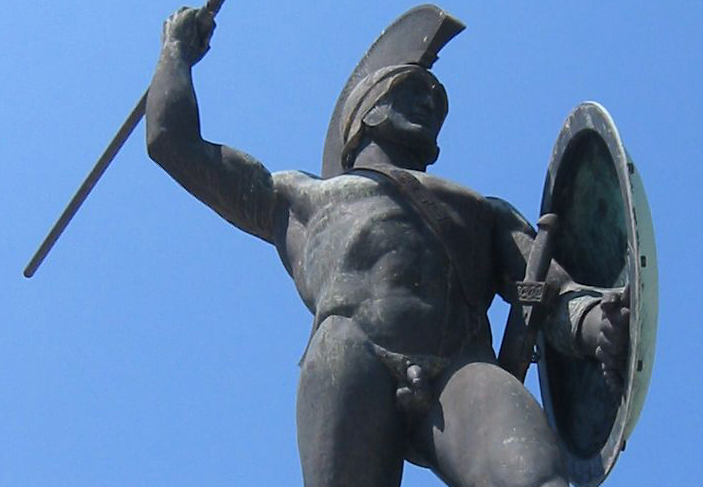



MANHOOD: A LEXICON
PRIMAL LOVE
[T]here could not rightly arise among the [Guardians] any law-suit for assault or bodily injury. For between age-mates and comrades we shall say that to defend oneself, to repel an assault is morally beautiful [kalon] and just [dikaios], thereby compelling them to keep their bodies in condition.

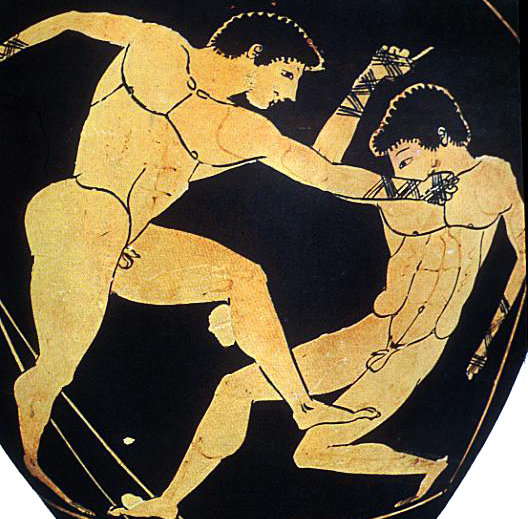

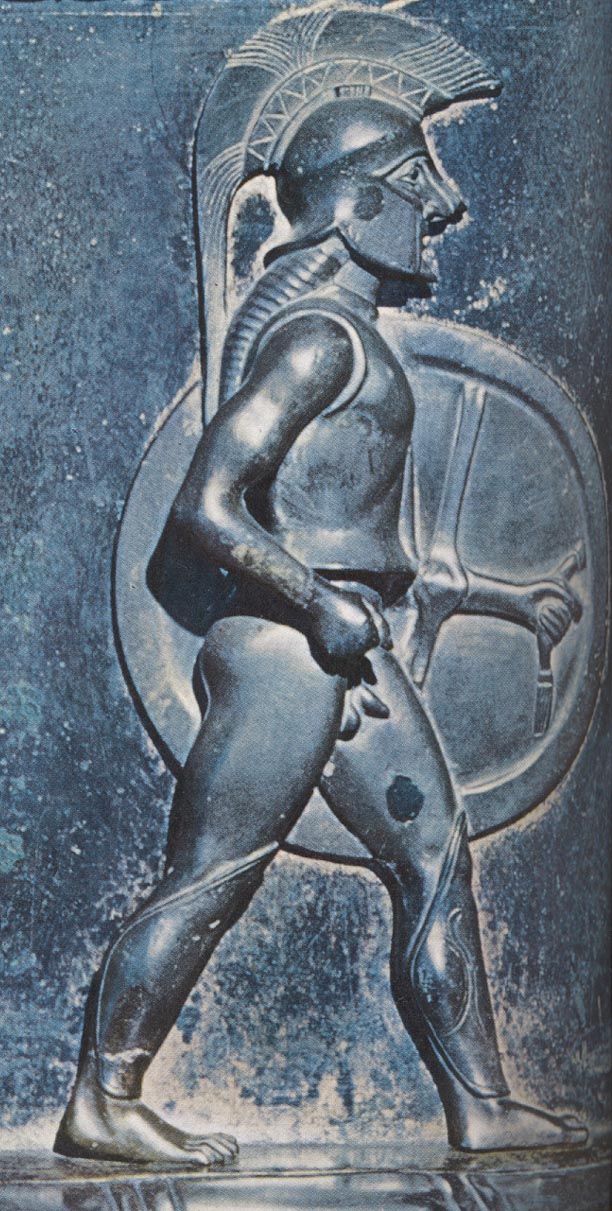

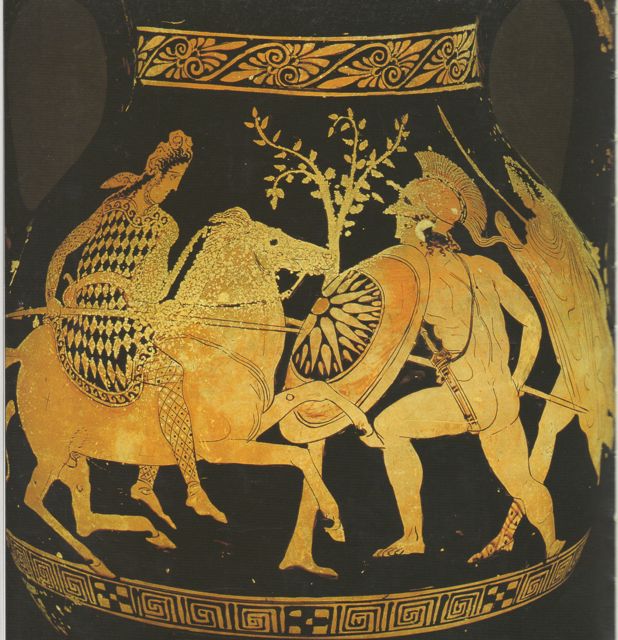
Nude Greek Warrior battles Persian Calvary
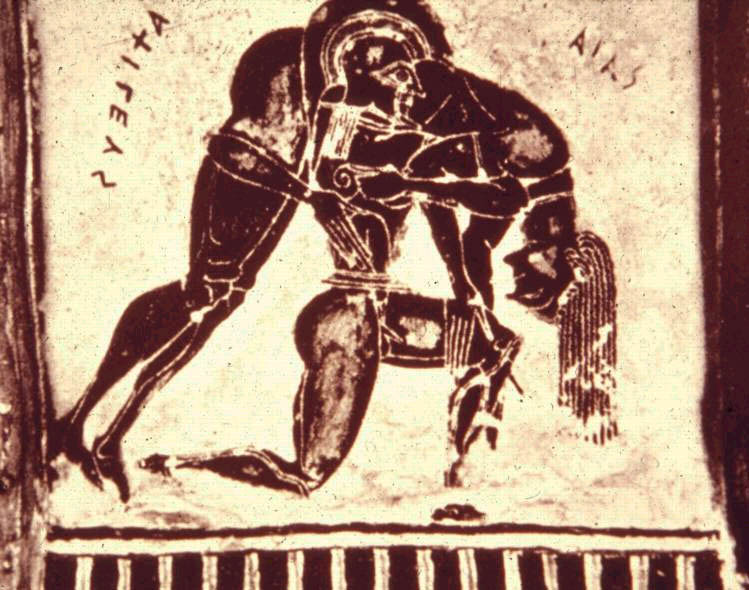




Ajax carries the body of Achilles
Achilles has died in order to avenge his Lover's death
The Spartans owe their superiority to Fighting and Manhood.
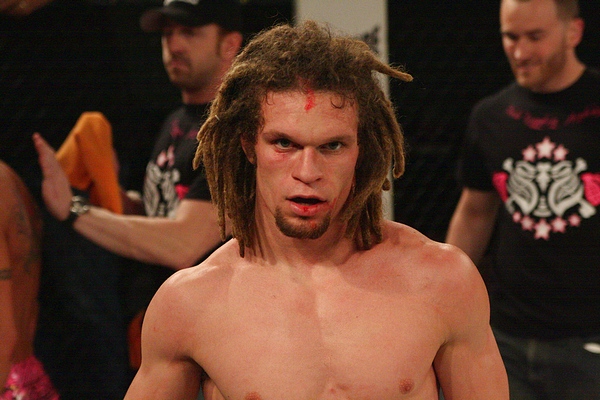
The Ultimate Vindication of MANHOOD lies in Fighting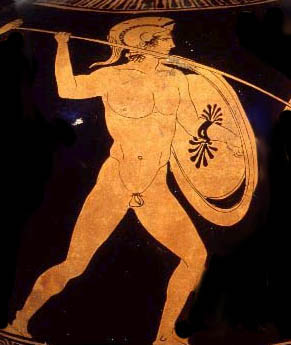
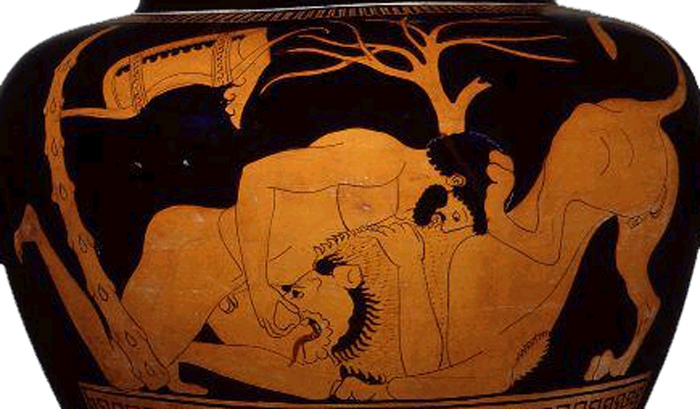
At this meeting the general subject was human virtue, and most of the discussion turned upon manliness.
The Spartans owe their superiority to fighting and valor
The Spartans owe their superiority to Fighting and Manhood.
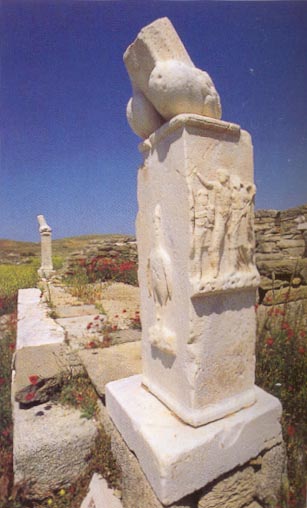
From the same root [ARES] comes areté ... the first notion of goodness being that of manhood, bravery in war; cf. Lat. virtus.
goodness, excellence, of any kind, esp. of manly qualities, manhood, valour, prowess, Hom., Hdt. (like Lat. vir-tus, from vir).
From the same root [ARES] comes areté ... the first notion of goodness being that of manhood, bravery in war; cf. Lat. virtus.
manliness, manhood, strength, vigor, bravery, courage, excellence





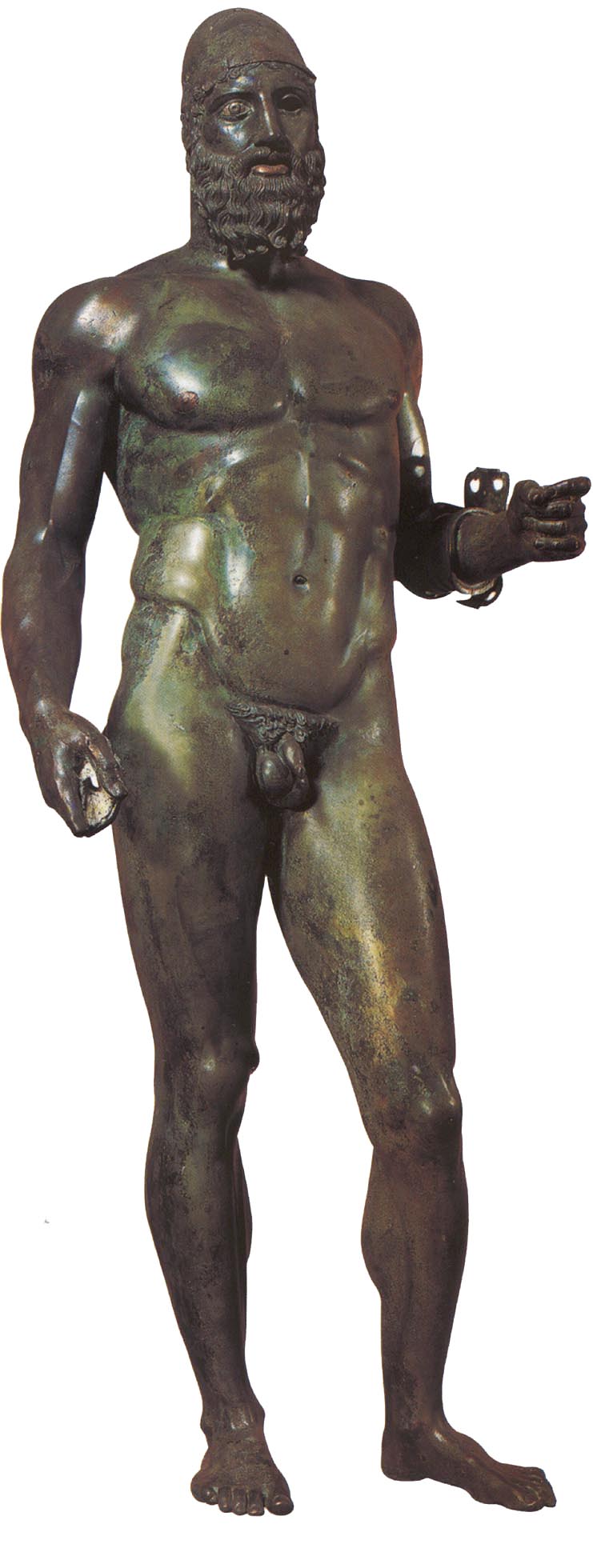
Warrior found at Riace
In his left hand he would have held a shield, in his right, a spear
Goodness = Manhood ; Manhood = Warrior





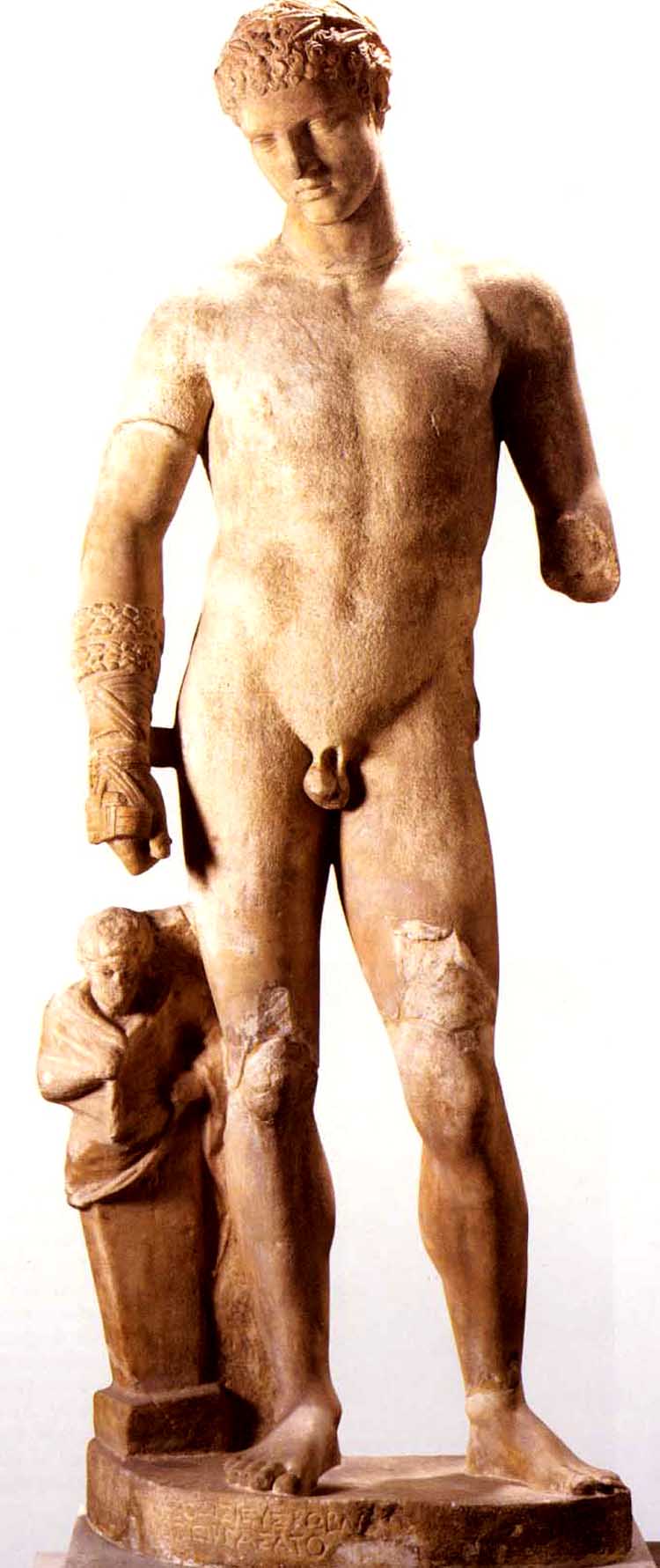
[I]n Lysis, ... Plato coined the new concept of 'the first beloved' (πρωτον φιλον -- proton philon), and maintained it was to be assumed as the source and origin of all friendship between human beings. It is because of our general love for this ultimate object of desire that we love any individual thing. That is what we are trying to attain or realize in every kind of association with other men, whatever its character may be. ... The other Socratic dialogues presuppose the Idea of Good [the Supreme Good, the Highest Good] as a fixed point of reference; and so too, in the discussion of the nature of friendship, it is assumed to be the absolute and final standard. For, although Plato does not say so expressly, the understanding reader will realize that 'the first beloved', for whose sake we love all other things, implies the highest value, Good in itself.
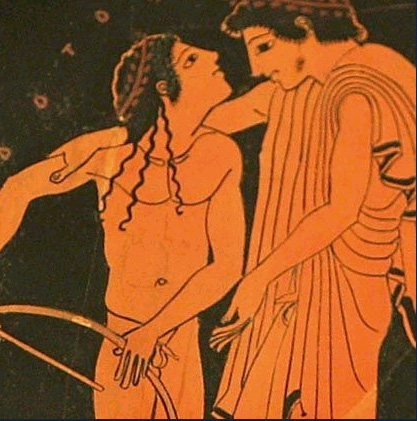





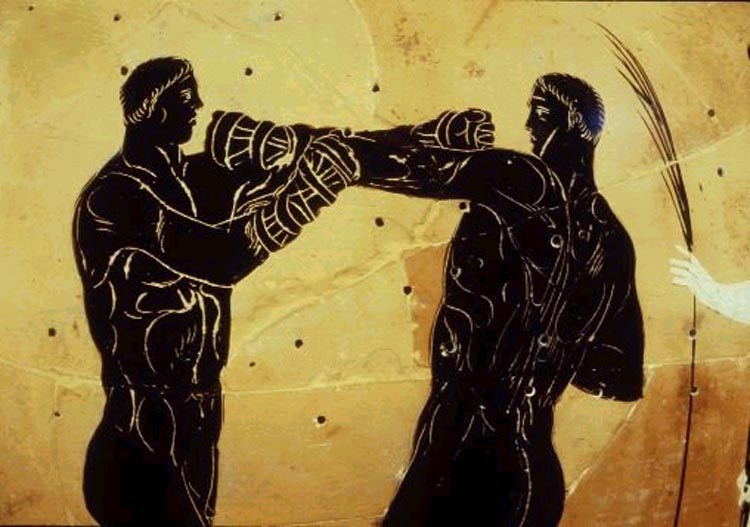


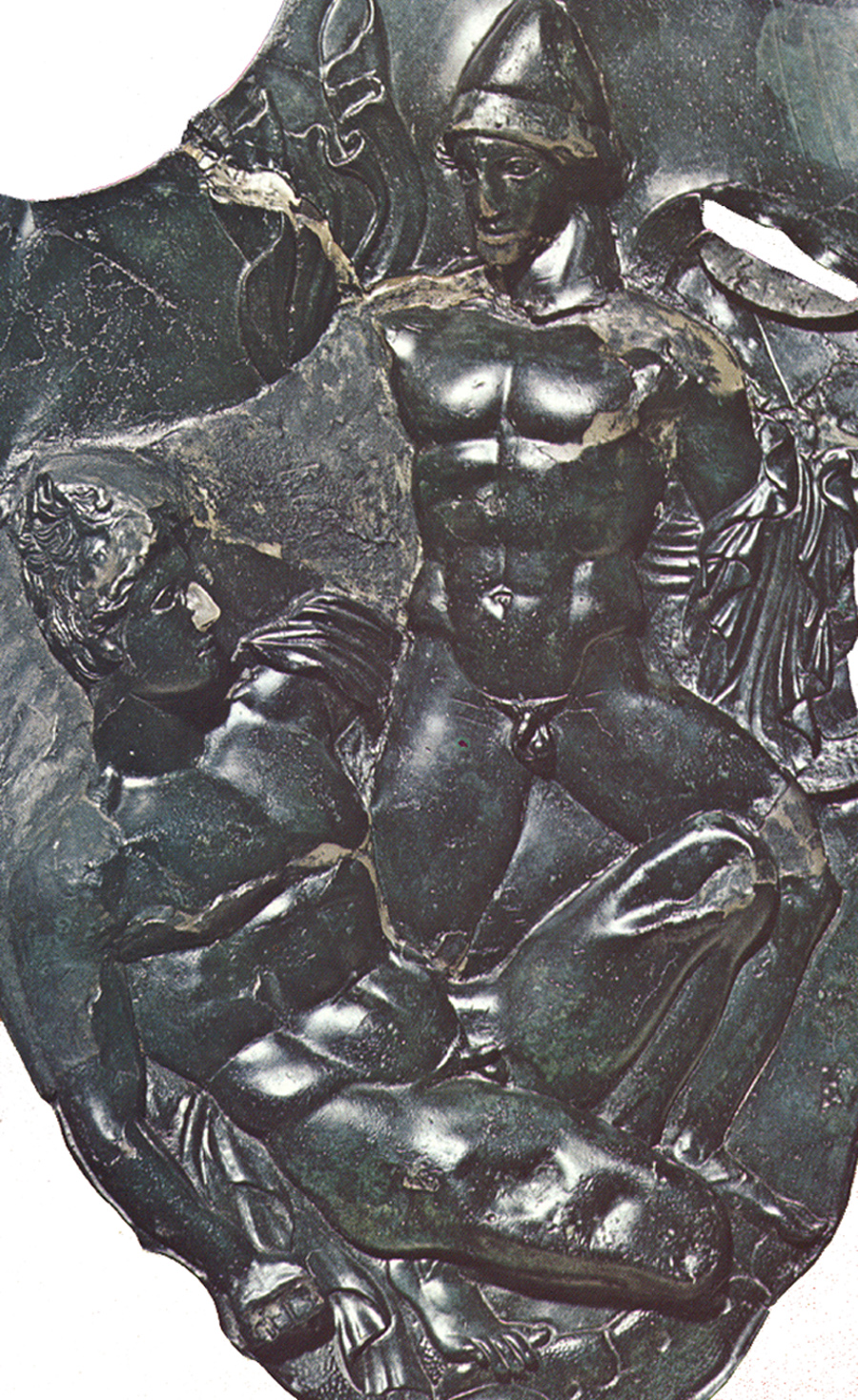

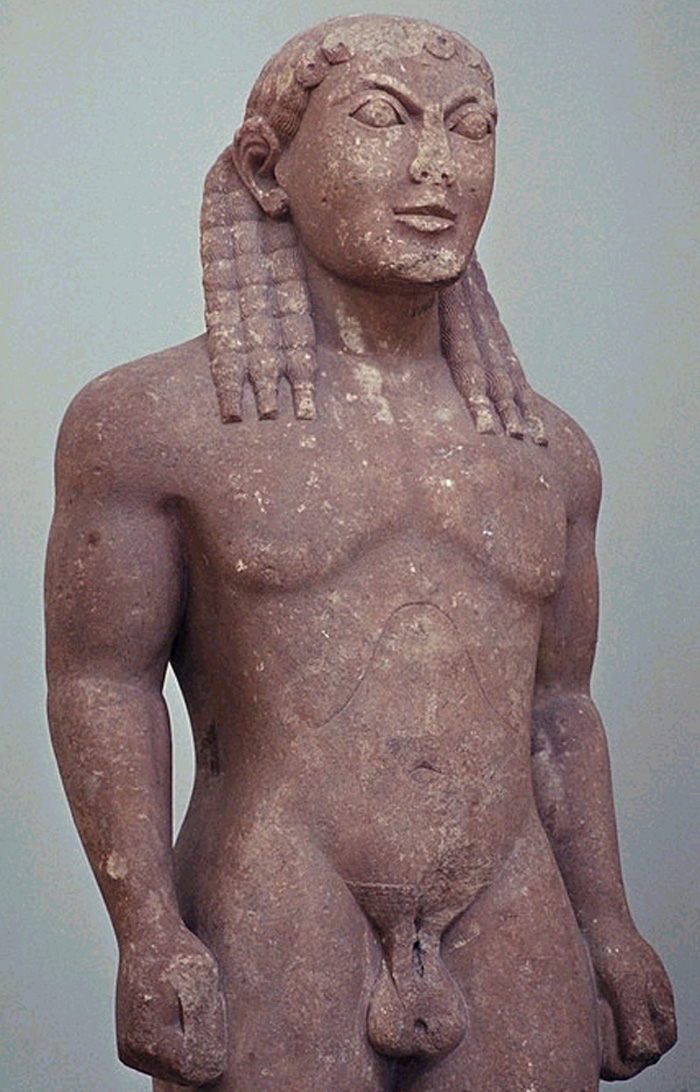













[I]n Lysis, ... Plato coined the new concept of 'the Primal Love' (πρωτον φιλον -- proton philon), and maintained it was to be assumed as the source and origin of all friendship between Men. It is because of our general love for this ultimate object of desire that we love any individual. That is what we are trying to attain or realize in every kind of association with other Men, whatever its character may be. ... The other Socratic dialogues presuppose the Idea of Good [the Supreme Good, the Highest Good] as a fixed point of reference; and so too, in the discussion of the nature of friendship, it is assumed to be the absolute and final standard. For, although Plato does not say so expressly, the understanding reader will realize that 'the primal love', for whose sake we love all other things, implies the highest value, Good in itself.
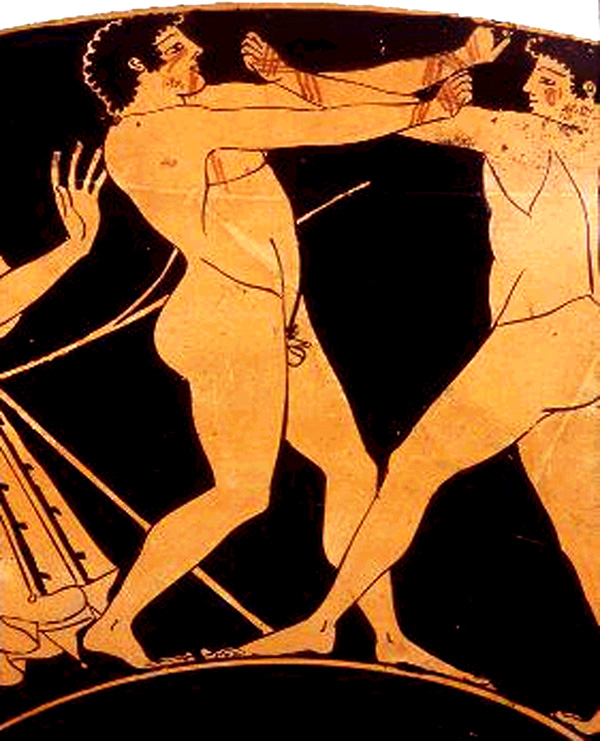
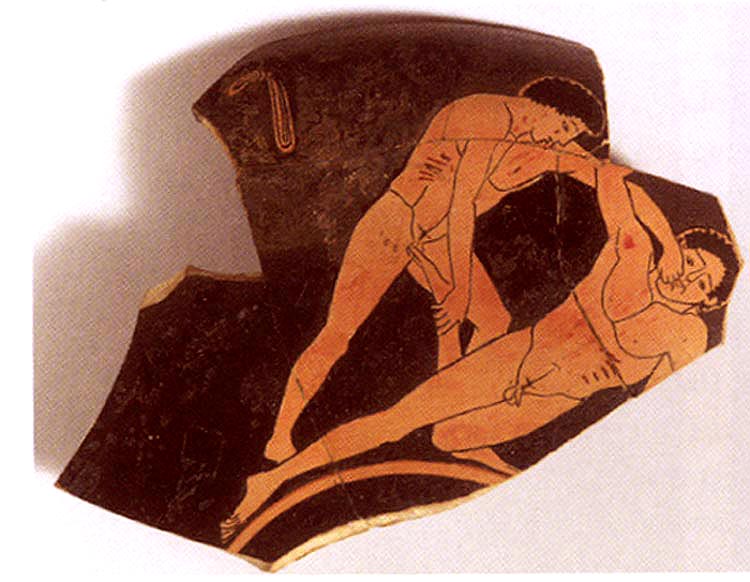
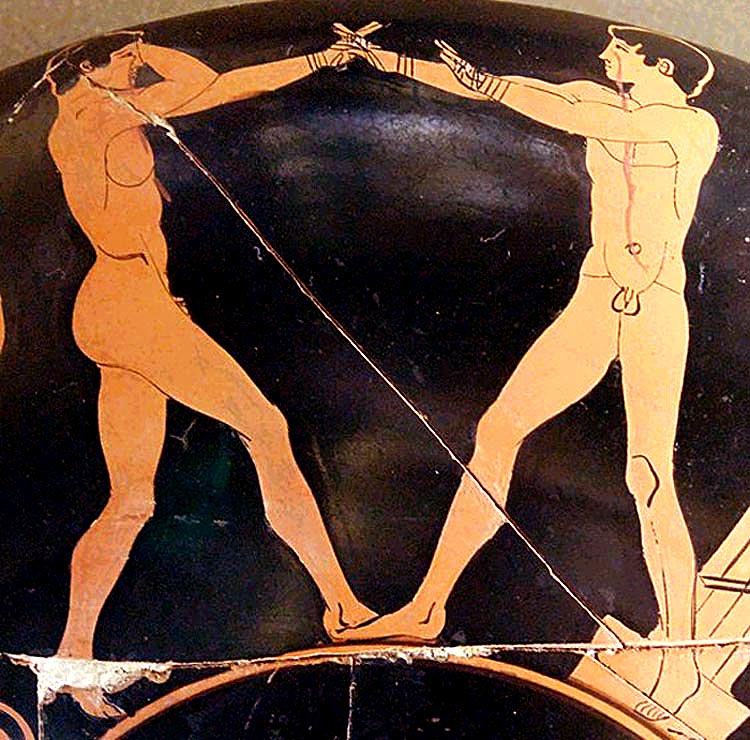
The other Socratic dialogues presuppose the Idea of Good as a fixed point of reference; and so too, in the discussion of the nature of friendship, it is assumed to be the absolute and final standard. For, although Plato does not say so expressly, the understanding reader will realize that 'the primal love', for whose sake we love all other things, implies the highest value, Good in itself.










Wisdom is forever, opinions only for a while, they get dumped like trash, allowing a return to Wisdom!
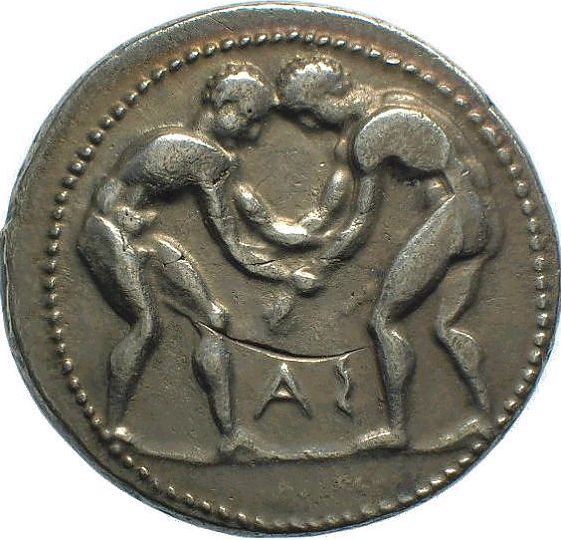
The Ideas are eternal, immutable, self-subsistent essences. . .
Regarded as metaphysics, Plato's theory of ideas is, technically speaking, the deliberate and conscious
hypostatization of all concepts -- the affirmation that every abstract general notion of the human mind is also somehow, somewhere, in some sense, an objective entity, a real thing, outside of any mind. Some
philologians and some sensitive aesthetic critics object to the use of the words concept and hypostatization in this connexion. They have a right to their personal distaste, but it contributes nothing to the interpretation of Plato. Both words convey definite meanings to students of philosophy and
there are no words that can replace them. The Socratic dialogues are in fact largely concerned with
the definition of concepts, general or abstract ideas, general terms, Begriffe, call them what you will, and some convenient synonym for this meaning is indispensable in any rational discussion of Plato's
philosophy. . . .
all that [Plato's theory of ideas, his use of hypostatization] affirms is . . . that there must be something in the universe, something in the nature of things, that corresponds to our concepts and our ideals -- to the principles, for example, of ethics and mathematics.








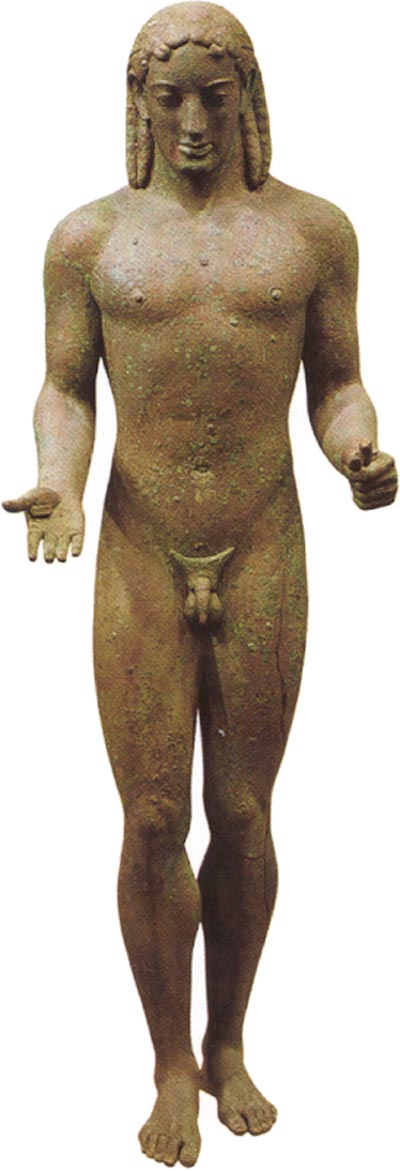

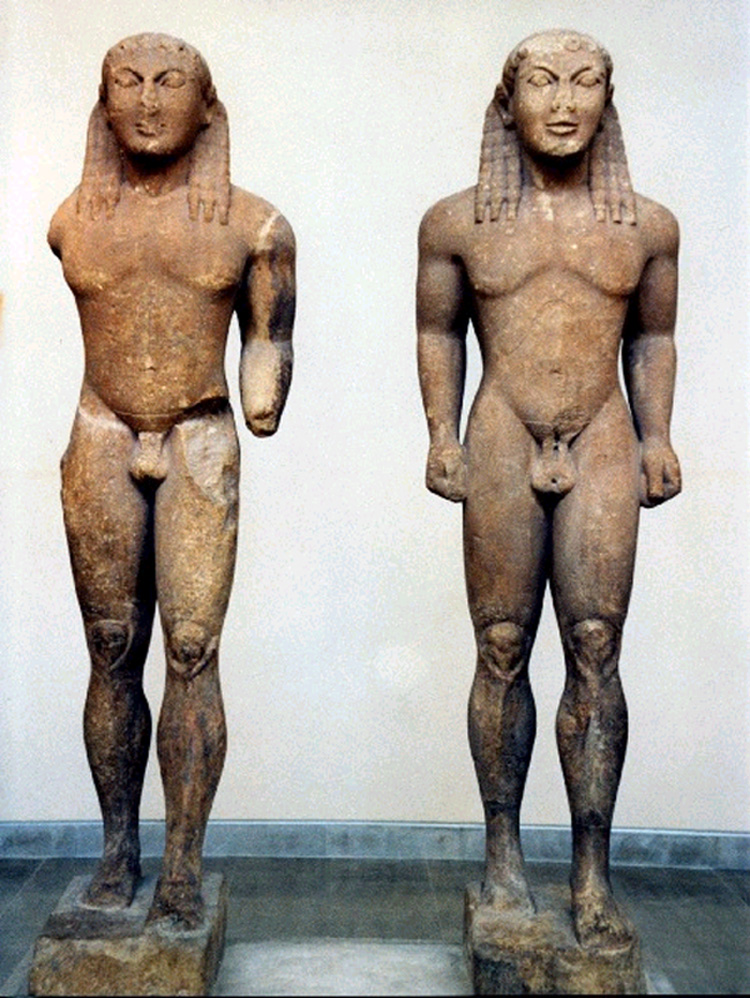

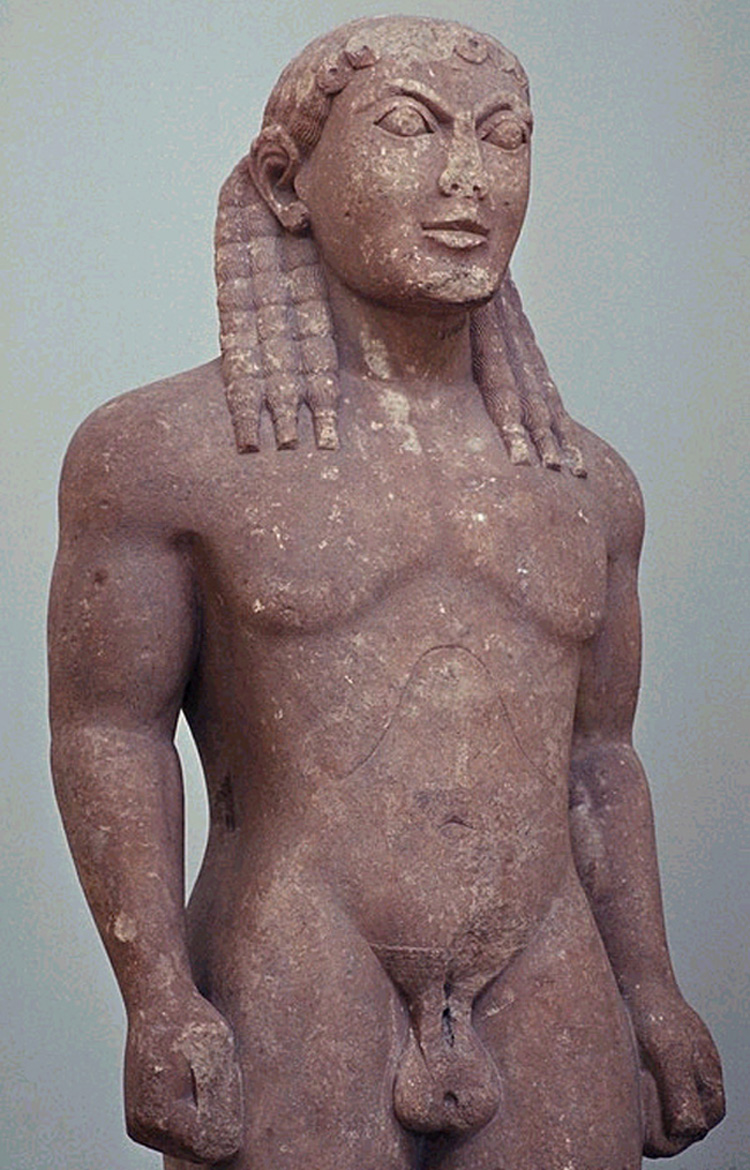



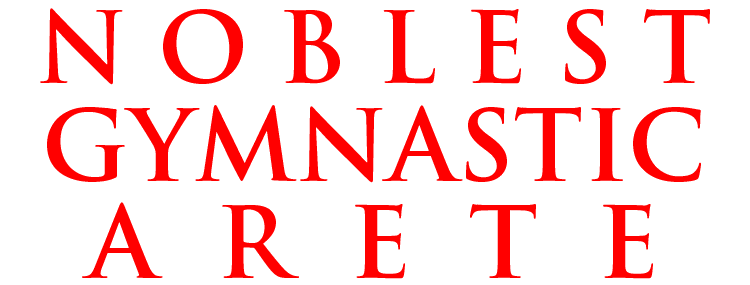
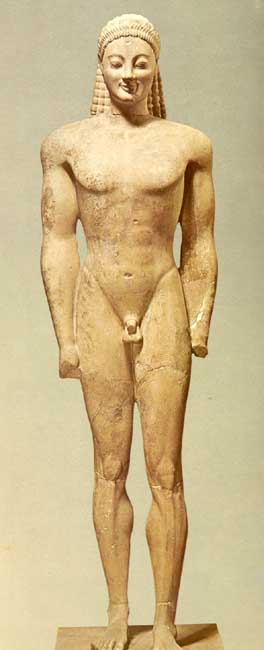






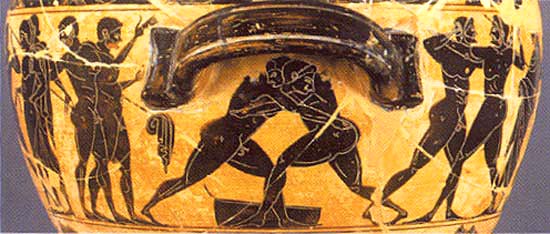
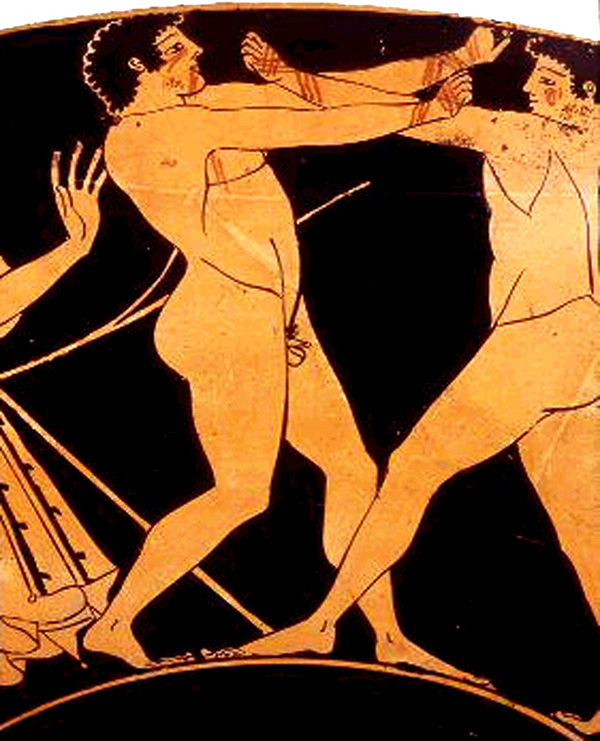









The ideal unity of physical and spiritual which (though it is irreparably lost to us) we still admire in the masterpieces of Greek sculpture, indicates how we must understand the athletic ideal of manly prowess...










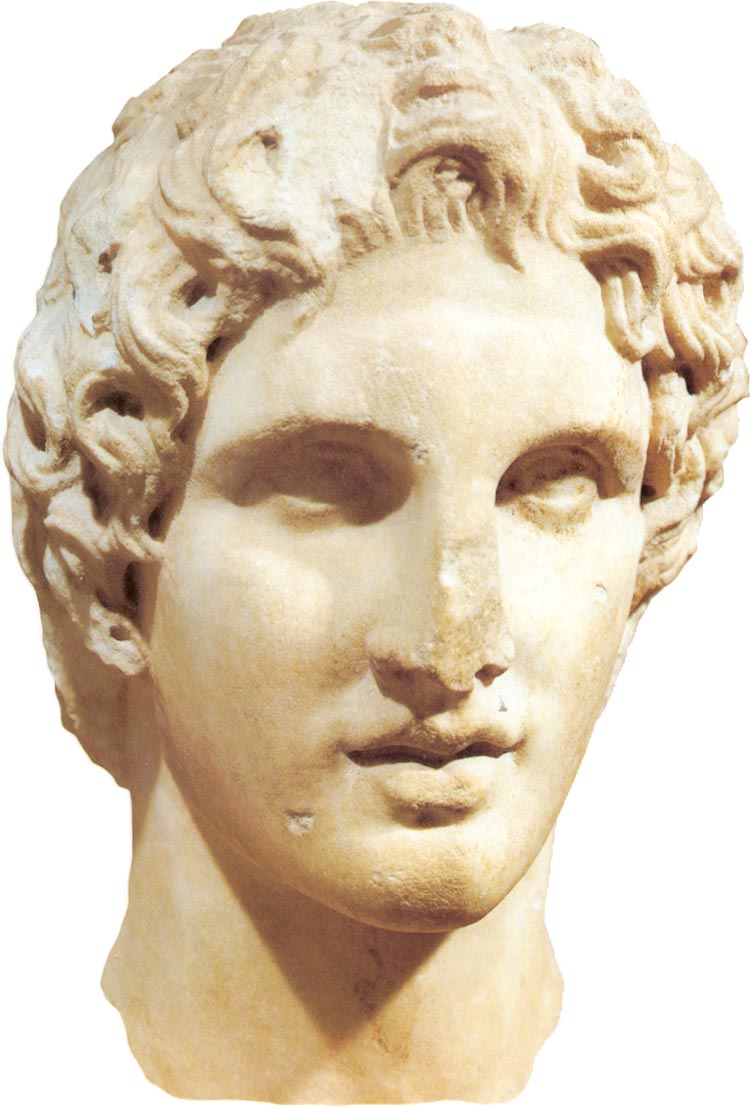

Alexander died in the 114th Olympiad, in the archonship of Hegesias at Athens. He lived, as Aristobulus tells us, thirty-two years and eight months, and reigned twelve years and eight months. He had great personal beauty, invincible power of endurance, and a keen intellect; he was brave and adventurous, strict in the observance of his religious duties, and hungry for fame. Most temperate in the pleasures of the body, his passion was for glory only, and in that he was insatiable. He had an uncanny instinct for the right course in a difficult and complex situation, and was most happy in his deductions from observed facts. In arming and equipping troops, and in his military dispositions, he was always masterly. Noble indeed was his power of inspiring his men, of filling them with confidence, and, in the moment of danger, of sweeping away their fear by the spectacle of his own fearlessness. When risks had to be taken, he took them with the utmost boldness, and his ability to seize the moment for a swift blow, before his enemy had any idea of what was coming, was beyond praise. No cheat or liar ever caught him off his guard, and both his word and his bond were inviolable. Spending but little on his own pleasures, he poured out his money without stint for the benefit of his friends.
Spending but little on his own pleasures, he poured out his money without stint for the benefit of his friends.
[N]owhere in Plato's writings are definite controversial arguments or
substantive principles of ethical philosophy or rules of practice
deduced from the idea of good.
The polis [city-state] had a character, like a man; it could be
reliable or unreliable, honest, or corrupt, just or unjust; it could
practice hybris, aggressive insolence, or sophrosyne, self-control. .
. .
in honoring its rulers and in the abstention of its warrior class from agriculture and handicraft and money-making in general, and in the provision of common meals and the devotion to nude physical training and expertness in the game and contest of war
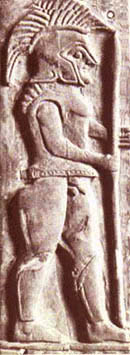 12345678910
12345678910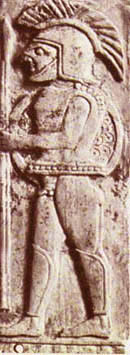


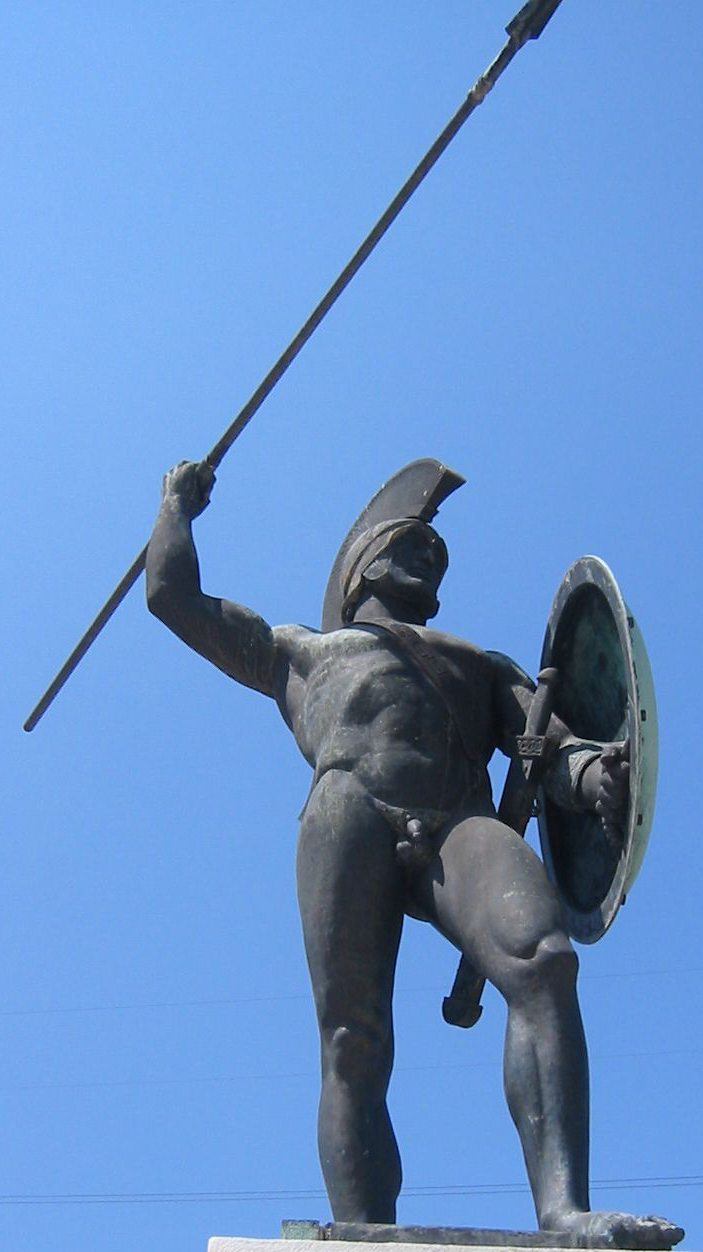





![]()
![]()
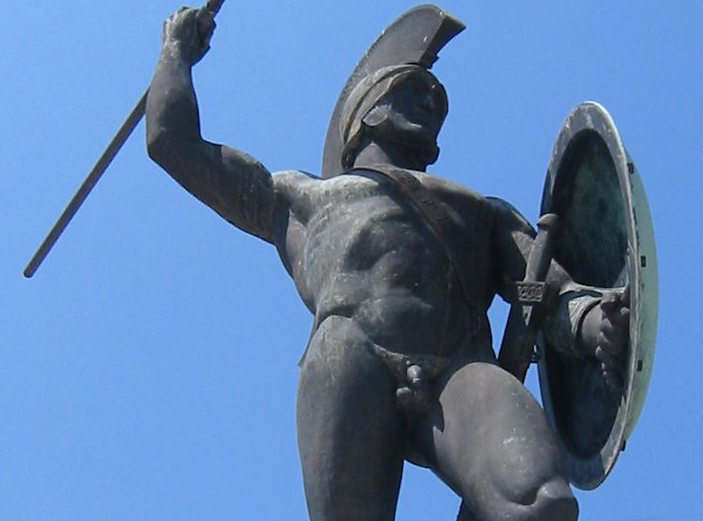



MANHOOD: A LEXICON
UN-forgetting

Sparta was supreme in andreia.

The captaincy of the troop was conferred upon the boy who displayed the soundest judgement and the best fighting spirit . . . . Moreover as they exercised boys were constantly watched by their elders, who were always spurring them on to fight and contend with one another: in this their chief object was to get to know each boy's character, in particular how bold he was, and how far he was likely to stand his ground in combat.
[male-male] relationships were institutionalized, played a large role in the training of boys, and were thought to contribute to bravery in combat.
The Spartan state deliberately made Eros a factor, and an important factor, in its agogé.


Aggression and the beauty of guys who asserted that aggression was what first attracted me to wrestling and fighting. Watching lean sweaty boxers on TV trying to dominate each other through aggression directed at each other turned me on.
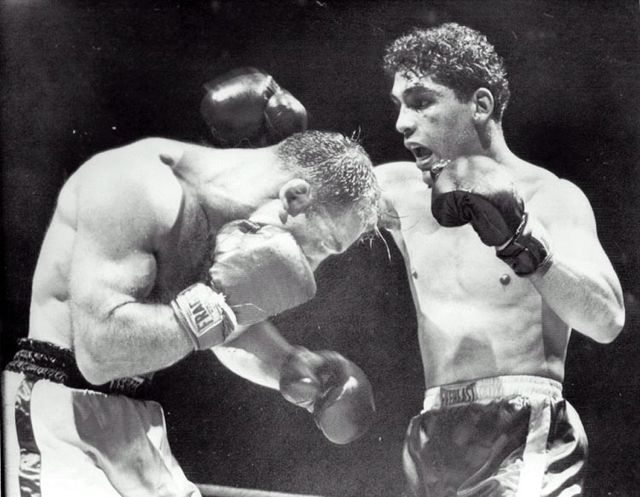
First email from Bill to NW
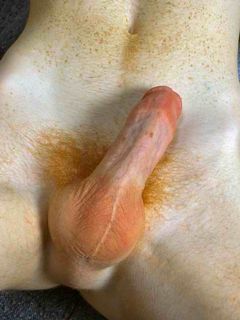
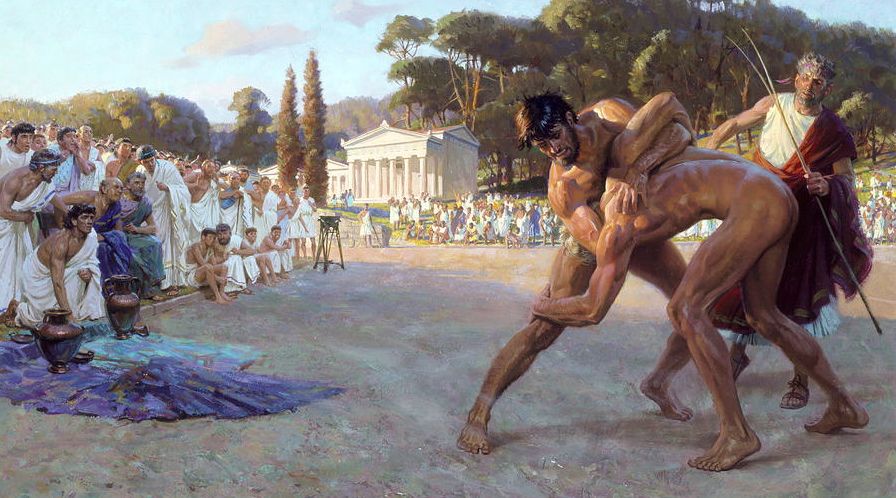
I had to figure things out on my own. I knew that close contact with
another boy, such as I might have while wrestling with him, could
produce a hard-on. And I also knew that rubbing my cock against the
sheets of my bed, in the sanctuary of my room, could produce an
ejaculation. And while one never saw anyone, male or female, have sex
on TV or in the movies, men were frequently seen to fight and wrestle.
Indeed, that was about the only contact they had. Much of the world
didn't make sense to me anyway. If I saw two guys fighting on TV, two
cowboys wrestling in the dirt, say, I didn't understand why they
didn't both get hard-ons and start making love. Perhaps that would
happen later, after the cameramen and everyone else had gone home,
when they were alone; indeed, it was hard for me to imagine that it
wouldn't happen. To me it seemed inevitable that two men wrestling
would end up in a front-to-front, full-body embrace, grappling
strenuously while furiously rubbing their hard cocks one against the
other, the way I now rubbed mine against an old bathrobe bundled up
beneath me to give the illusion of a partner; and, I thought, the
force and heat of those two warrior cocks rubbing together would
become so great that, in the fierce instant before they both came,
they would seem to merge into one. Like every child of that era, I was
bombarded by images of combat: of cowboys against Indians, yes, but
more important to me of Allies against Wehrmacht, partisans against
Germans, Russians against the West. Wouldn't sex and strife combine, I
wondered, to produce heroes who were lovers, and lovers who were
heroes?...
Second email
The philosophical knowledge of the Ideas, born from the mind's reflection on its own inner Kosmos, is the true fulfillment of Man's natural disposition.



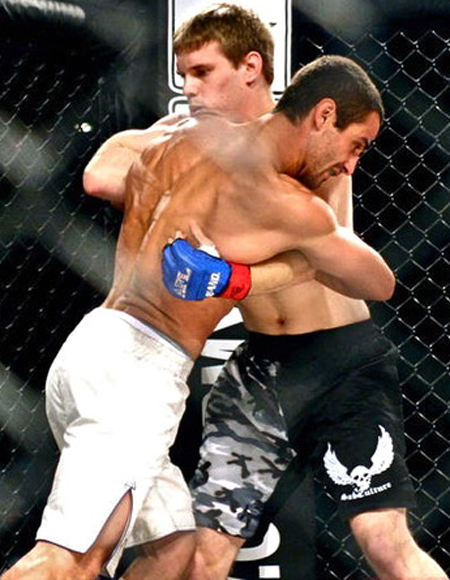
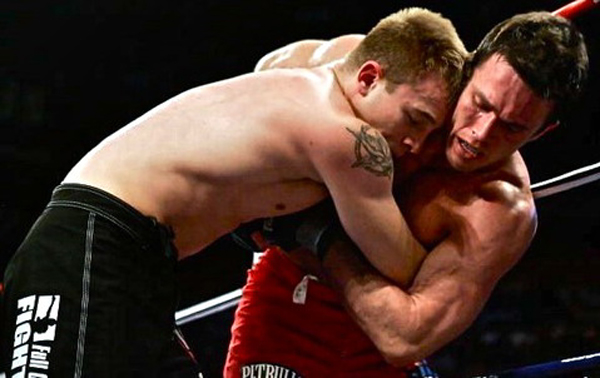
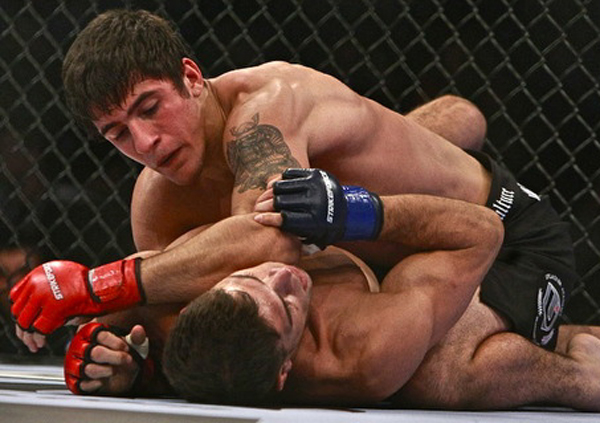
The skin-on-skin contact of man2man aggression like this can be almost overwhelming. Ecstasy. Like stepping into another world.

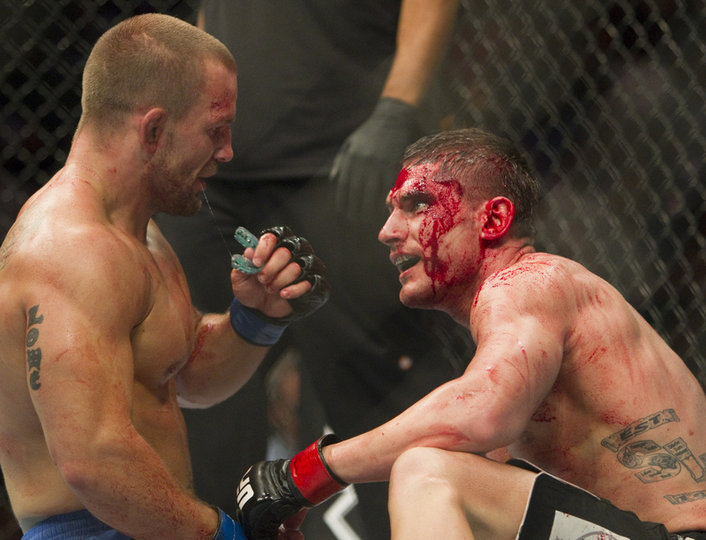

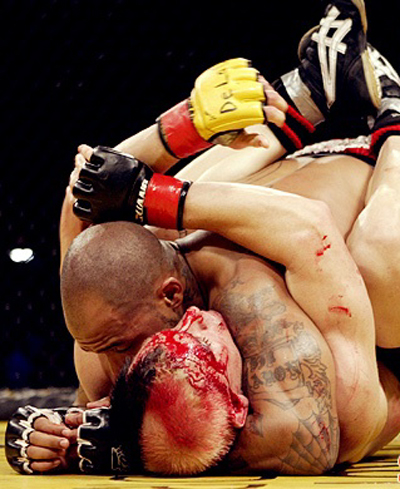
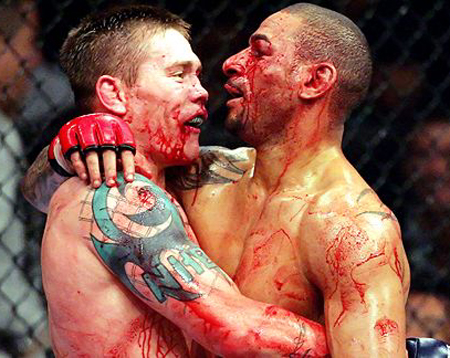



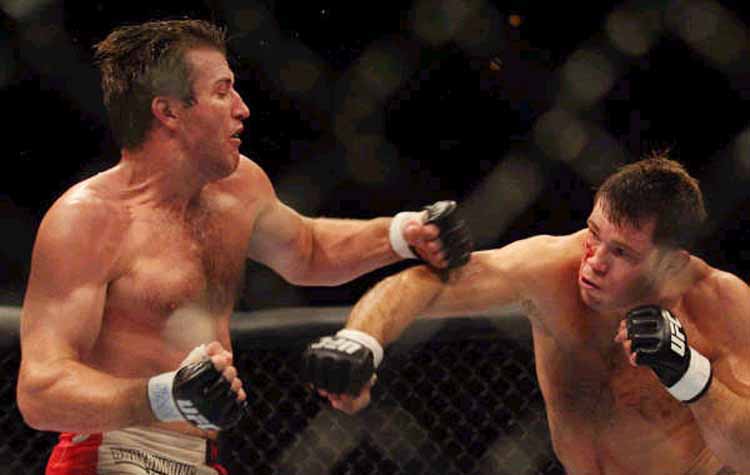


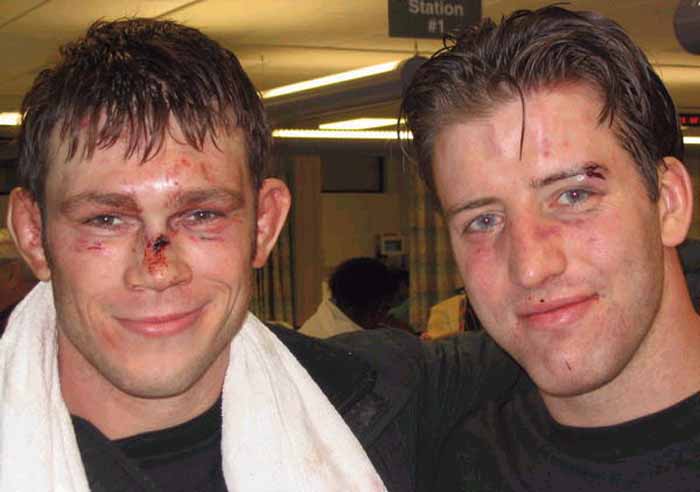

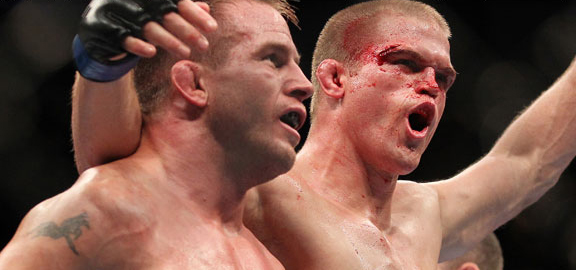


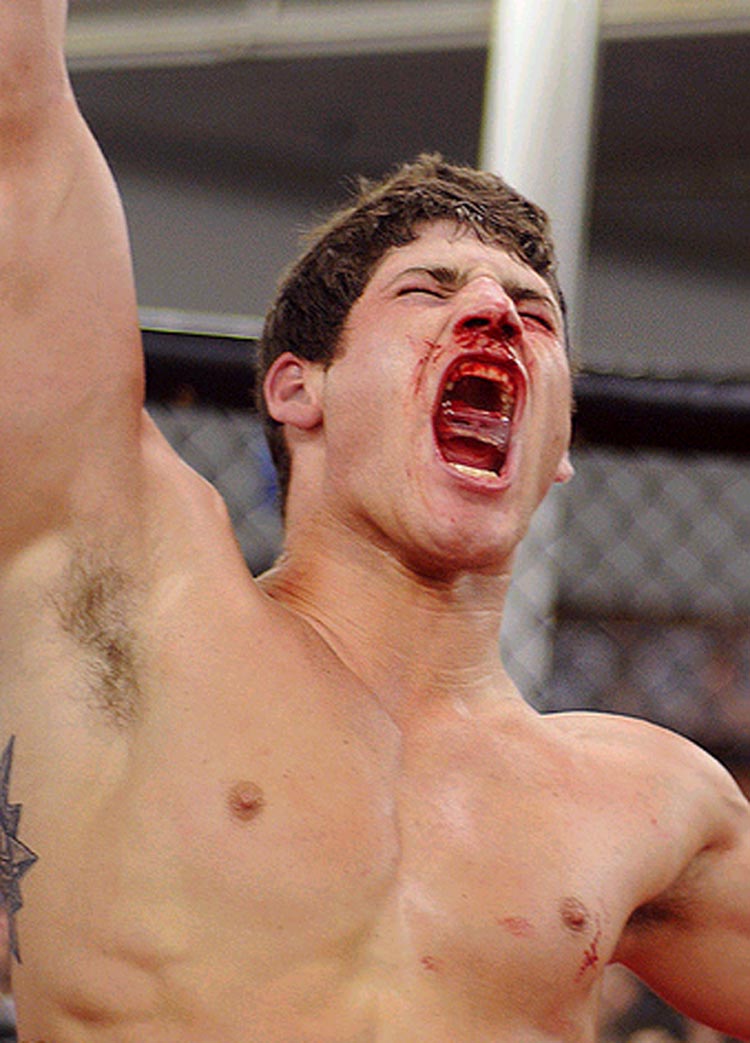
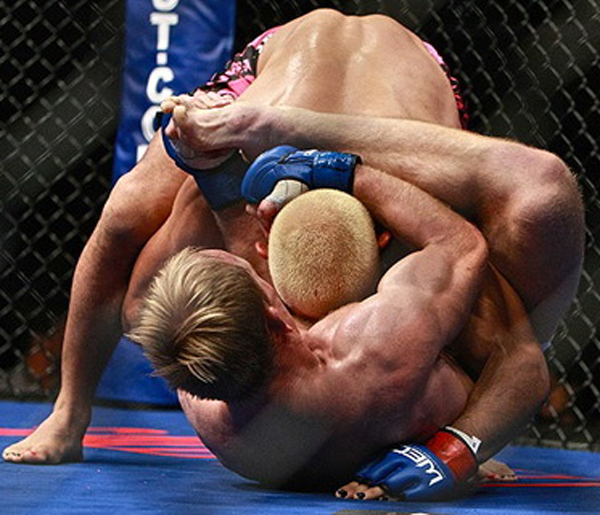
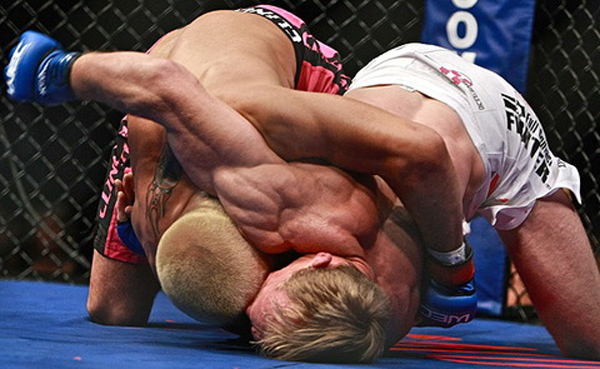
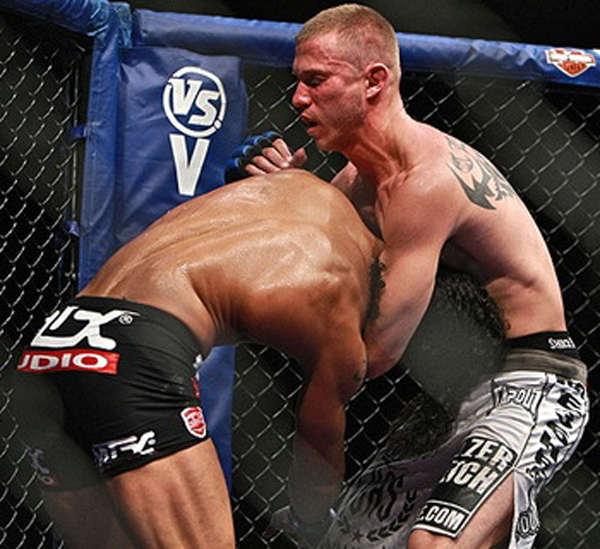

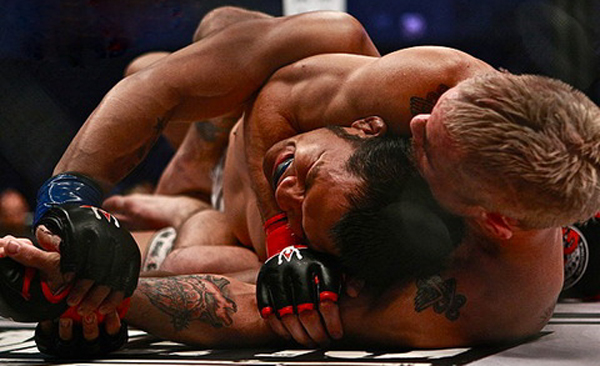
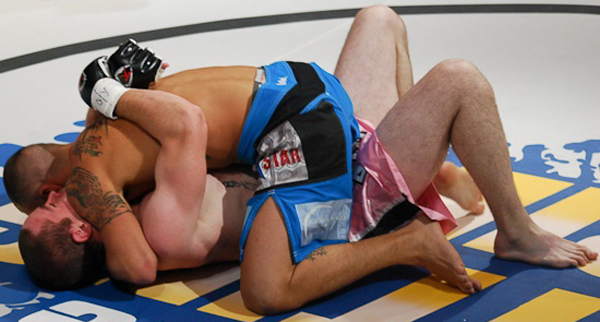
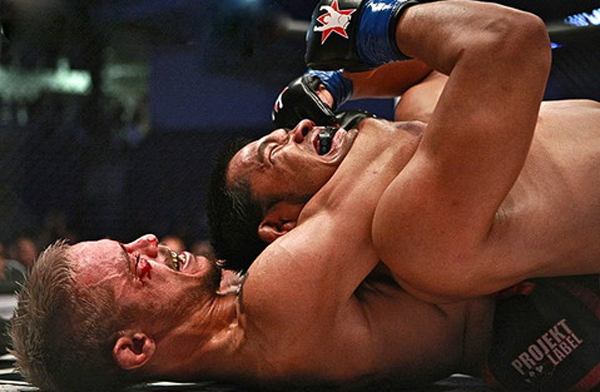
The first time I saw cage fights like this I Jacked off over and over and over watching it..the sweaty, bloody, skin on skin drove me wild..
Third email:
The skin-on-skin contact of man2man aggression like this can be almost overwhelming. Ecstasy. Like stepping into another world.
The skin-on-skin contact of man2man aggression like this
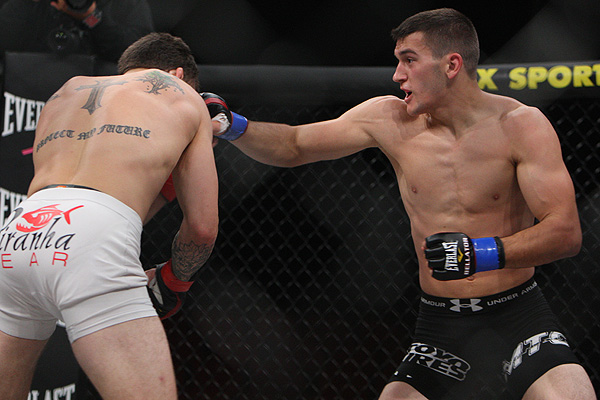
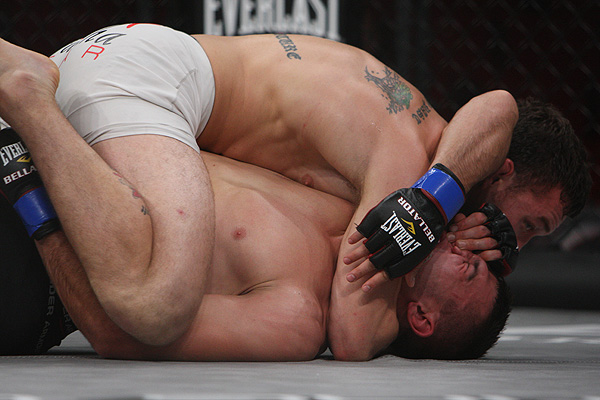
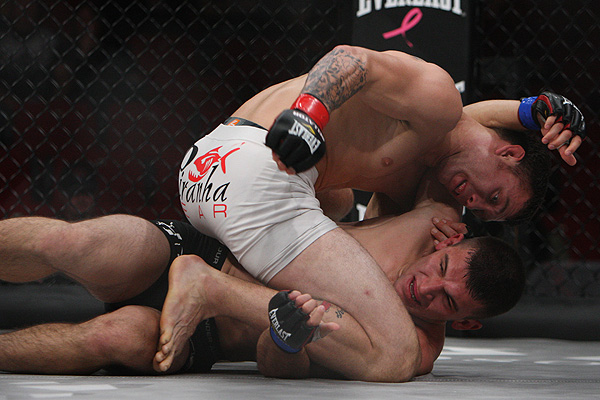
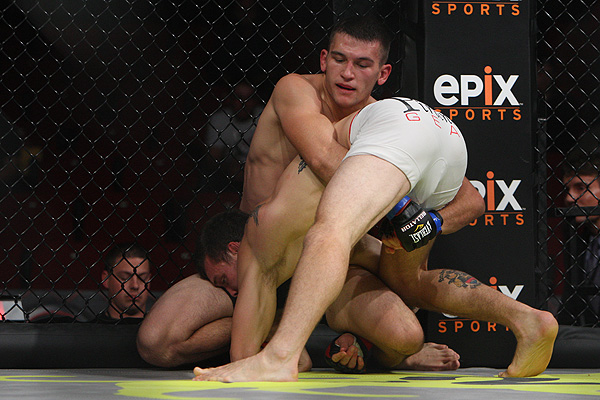
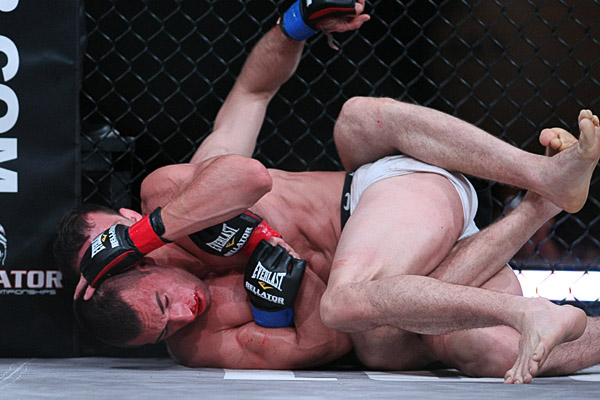
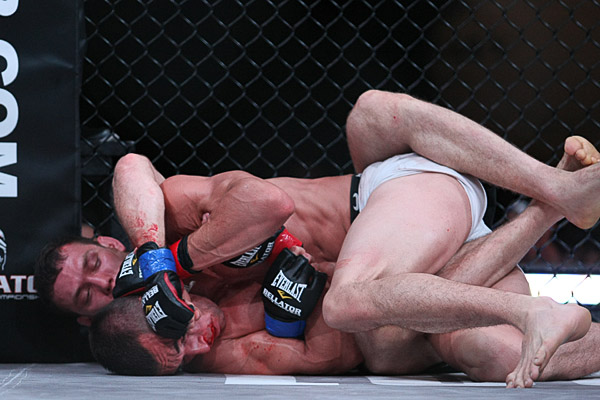
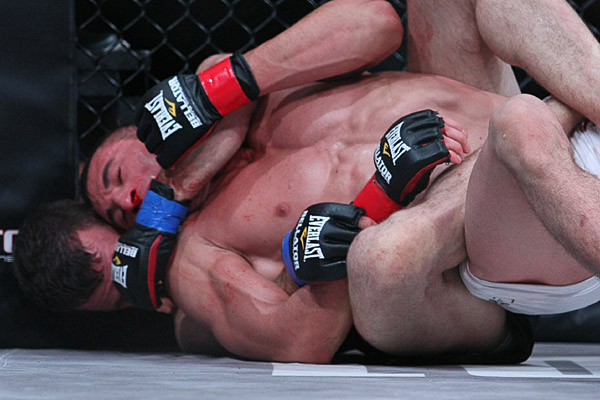
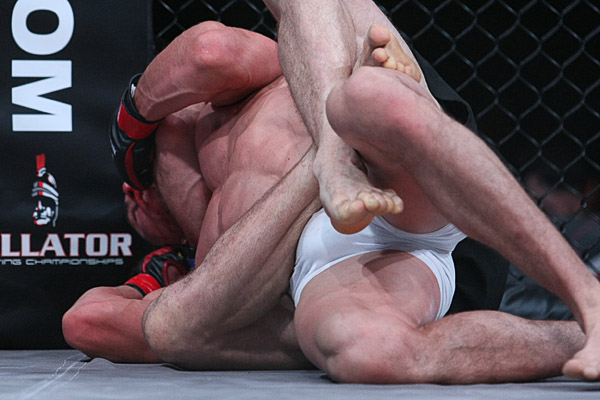
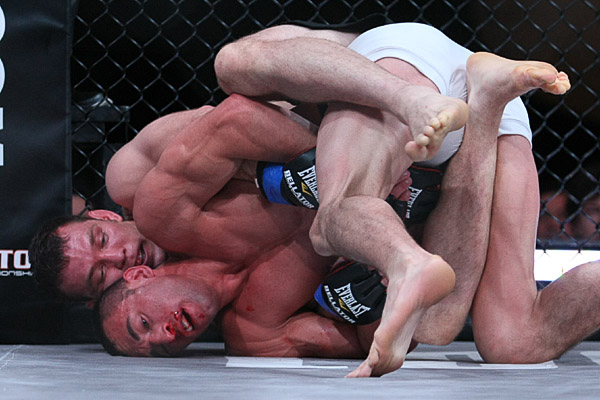
Aggression and the beauty of guys who asserted that aggression was what first attracted me to wrestling and fighting. Watching lean sweaty boxers on TV trying to dominate each other through aggression directed at each other turned me on.
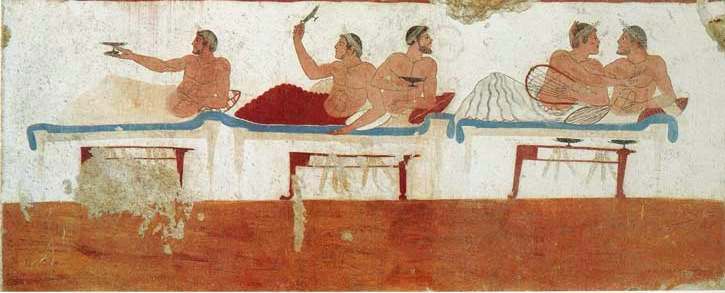
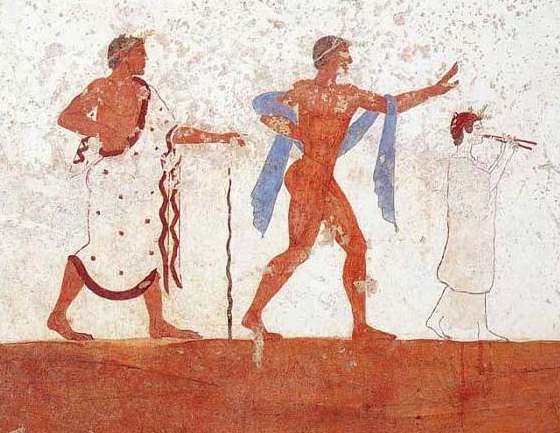
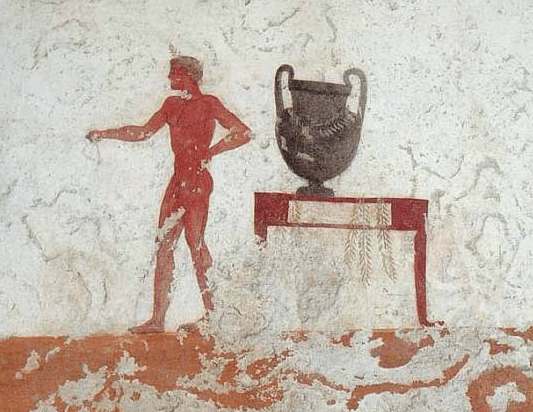
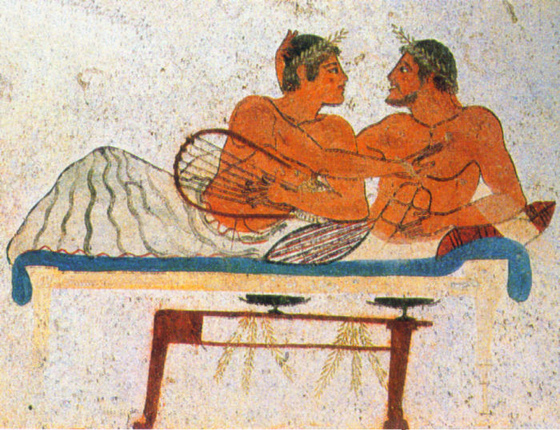
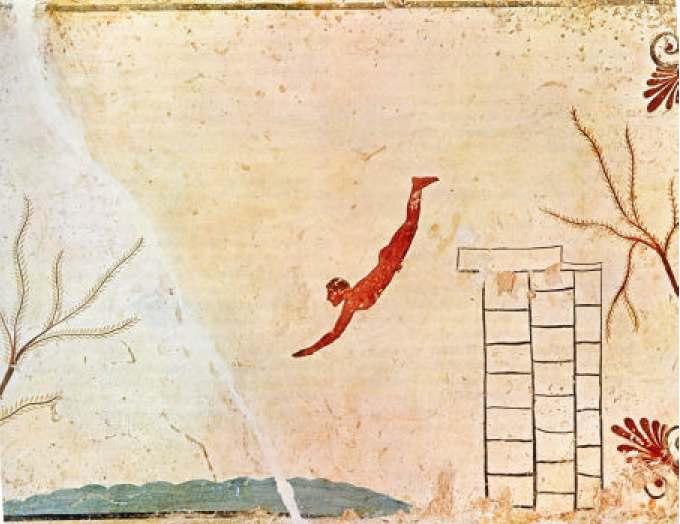
The soul returns to the World of Being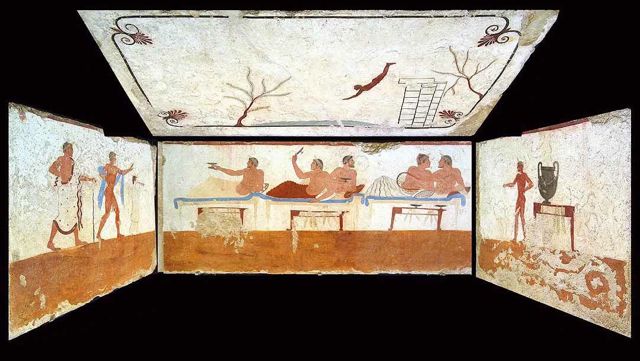

The soul returns to the World of Being
Aggression and the beauty of guys who asserted that aggression was what first attracted me to wrestling and fighting. Watching lean sweaty boxers on TV trying to dominate each other through aggression directed at each other turned me on.
The skin-on-skin contact of man2man aggression like this can be almost overwhelming. Ecstasy. Like stepping into another world.
The first time I saw cage fights like this I Jacked off over and over and over watching it..the sweaty, bloody, skin on skin drove me wild..
Fourth email:
The knowledge of eternal Beauty to whose vision [Sokrates] rises is the highest fulfillment of Eros, the basic impulse of human life, the great Daimon [spirit, God, spiritual force] which holds the Kosmos together internally and externally.
the highest kind of love which makes man reach out towards the highest areté [manhood, manly excellence, manly virtue]: through which he 'takes possession of the beautiful'.
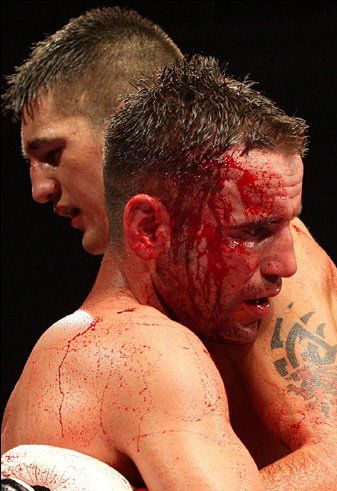
NW's response:
This is the face of the guy I had wrestled with total Ares and Eros as a Freshman in PE...
Stan had long curly locks of blond hair. I think he got teased a lot for that. He was not a typical jock. He and I were no more than 120 lbs our Freshman year.
And when the other is beside him, he shares his respite from anguish, and when he is absent, he likewise shares his longing and being longed for, since he possesses a counter-love (anteros), which is the image of love (eros).
[I]n the world of knowledge, the idea of good appears last of all, and is seen only with an effort, and when seen is also inferred to be the author of all things beautiful [kalon] and right [orthos], father of light and of the lord of light in this visible world [the world of becoming], and the immediate source of reason and truth in the intellectual [the world of being]; and that this is the power upon which he who would act rationally either in public or private life must have his eye fixed.
[I]n the world of knowledge,
the idea of good appears last of all
and when seen is also inferred to be the author of all things beautiful [kalon] and right [orthos]
parent of light and of the lord of light in this visible world [the world of becoming]
and the immediate source of reason and truth in the intellectual [the world of being]
and that this is the power upon which he who would act rationally either in public or private life must have his eye fixed.
[I]n the world of knowledge,
the idea of good appears last of all
And when seen is also inferred to be the author of all things beautiful [kalon] and right [orthos]

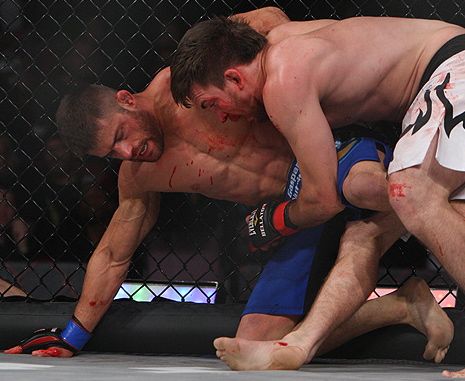
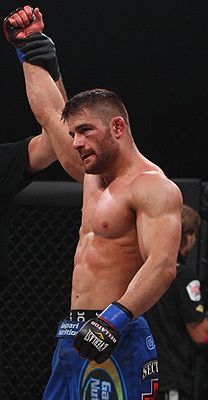
father in the visible world to light, and the author of light and itself in the intelligible world being the authentic source of truth and reason, and that anyone who is to act wisely in private or public must have caught sight of this.
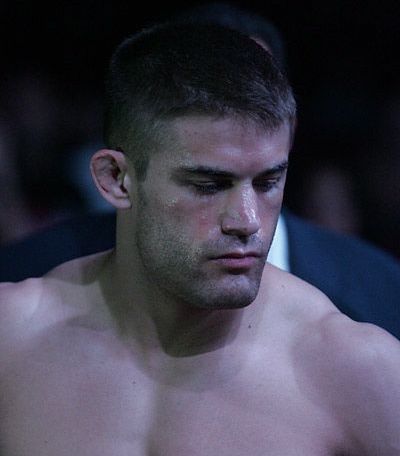
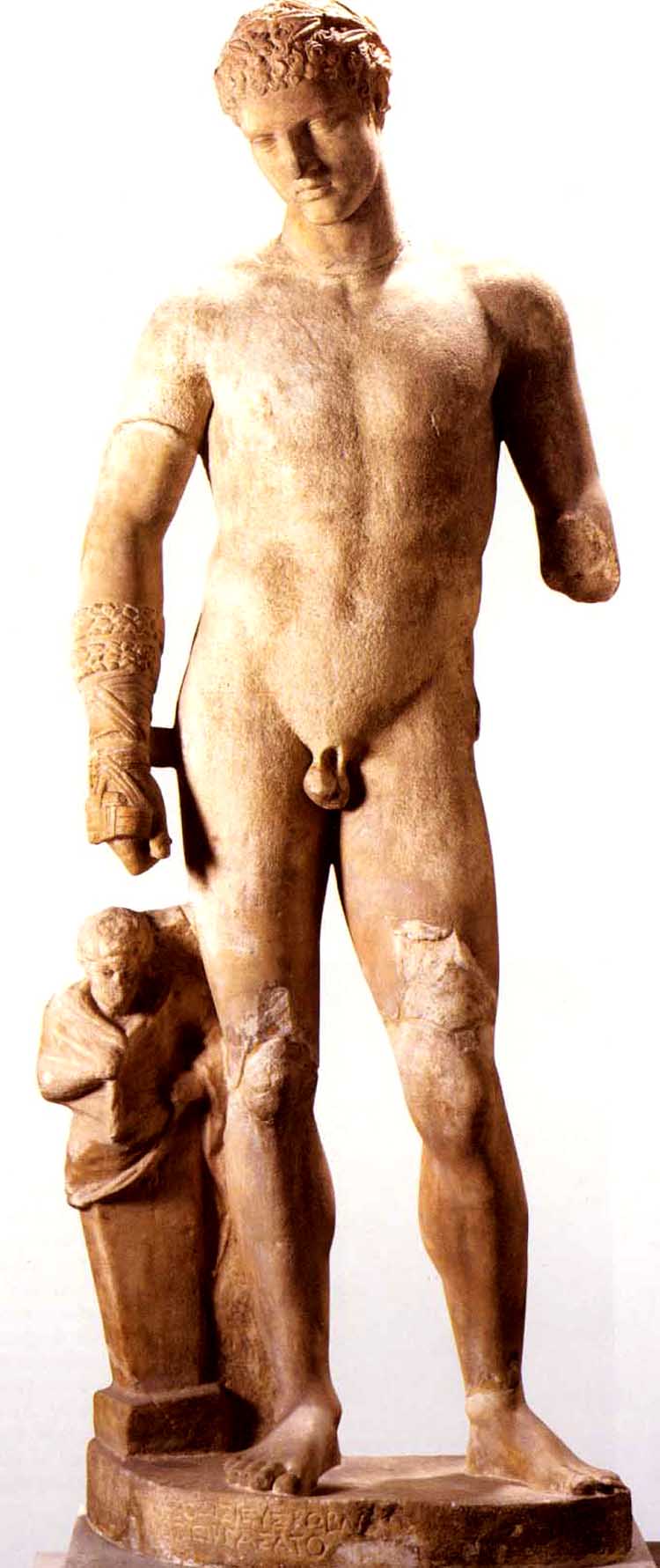
BEING
becoming
[To Plato,] the soul is like the eye. If we do not turn it towards that region from which daylight streams forth in brilliant rays, but towards the world of night, dimly lit by the stars, the eye will see poorly and blindly, as though it did not possess the pure power of sight. So with the soul. If it turns its gaze to that world which is brightly lit by the rays of truth and reality, then it understands, and thinks, and reasons. But if it looks towards the darkly confused regions where things are always coming into being and passing away, it produces nothing but opinion, it is weak-sighted, it vacillates, like something devoid of reason. What gives truth to the things the soul apprehends, and what gives it understanding to know them, is the Idea of Good.






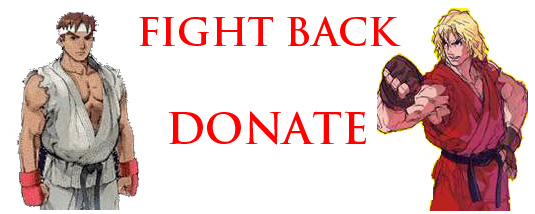
to
Contents.
to 


![]()
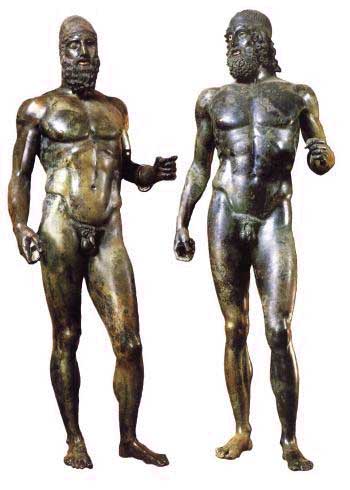
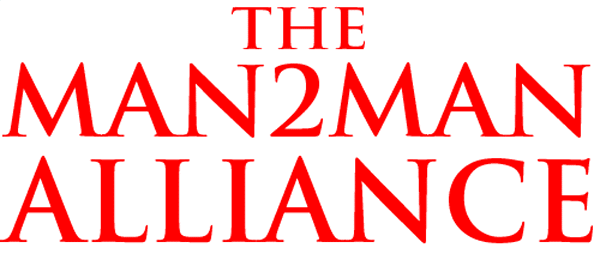






who reject anal penetration, promiscuity, and effeminacy
among men who have sex with men







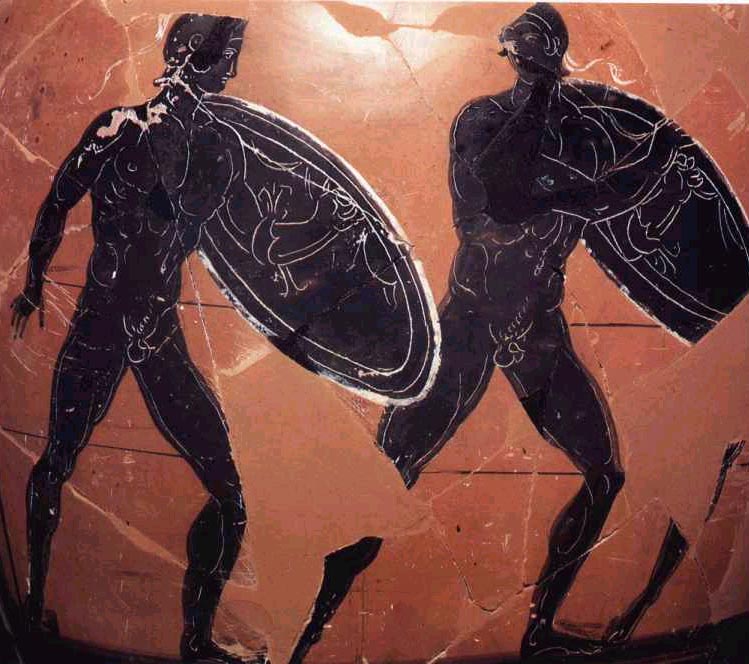
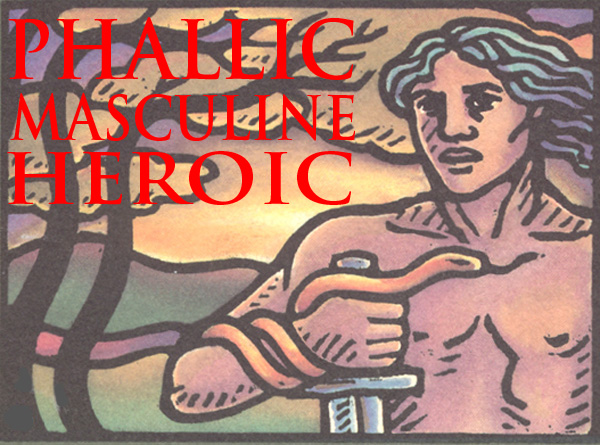


![]()

Who Celebrate, Exalt, and Worship
Fighting Manhood
In the Divine and Sacred Person of
L o r dxA r e s,
The Warrior God
God of Fight, God of Manhood, God of Fighting Manhood

| Heroes Site Guide | Toward a New Concept of M2M | What Sex Is | In Search of an Heroic Friend | Masculinity and Spirit |
| Jocks and Cocks |
Gilgamesh | The Greeks | Hoplites! | The Warrior Bond | Nude Combat | Phallic, Masculine, Heroic | Reading |
| Heroic Homosex Home | Cockrub Warriors Home | Heroes Home | Story of Bill and Brett Home | Frot Club Home |
| Definitions | FAQs | Join Us | Contact Us | Tell Your Story |

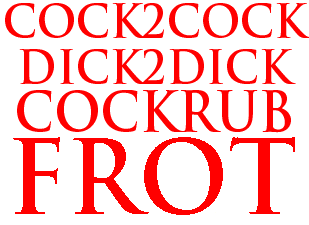

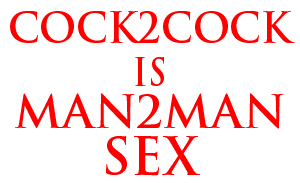
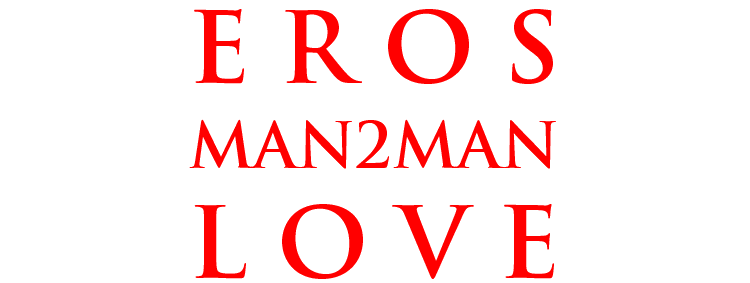
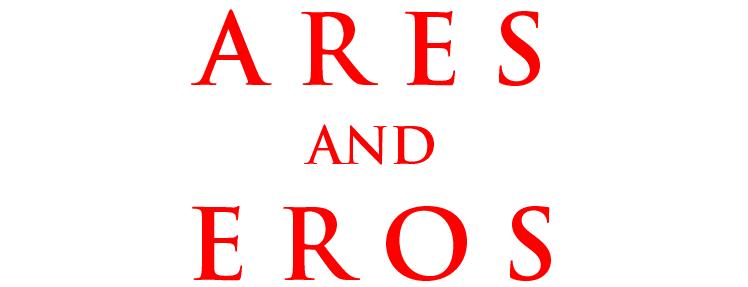
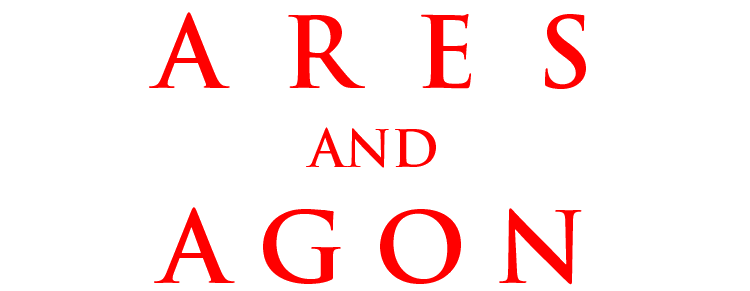
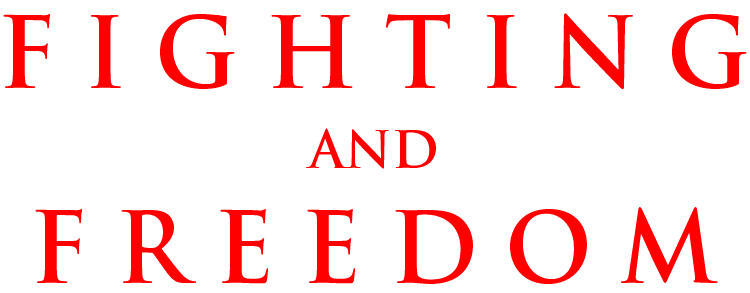
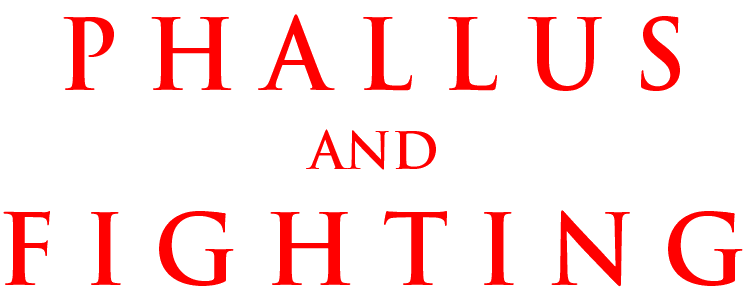
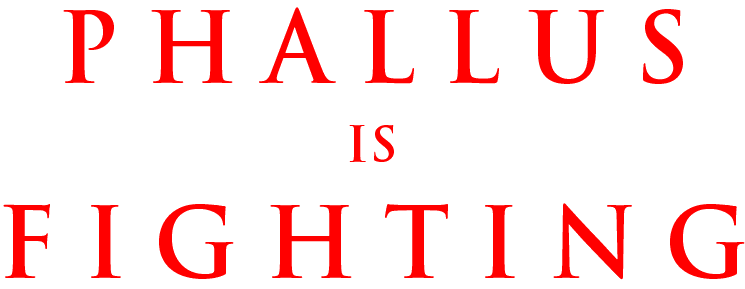
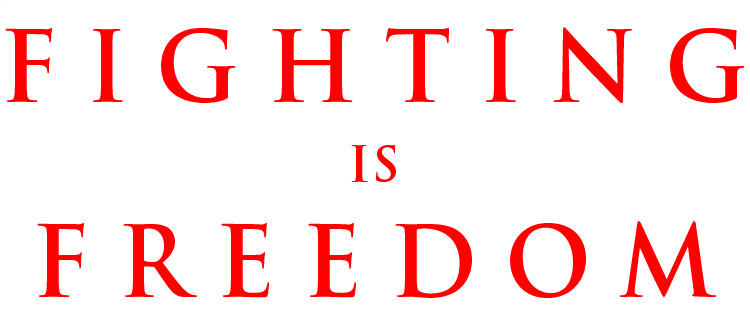
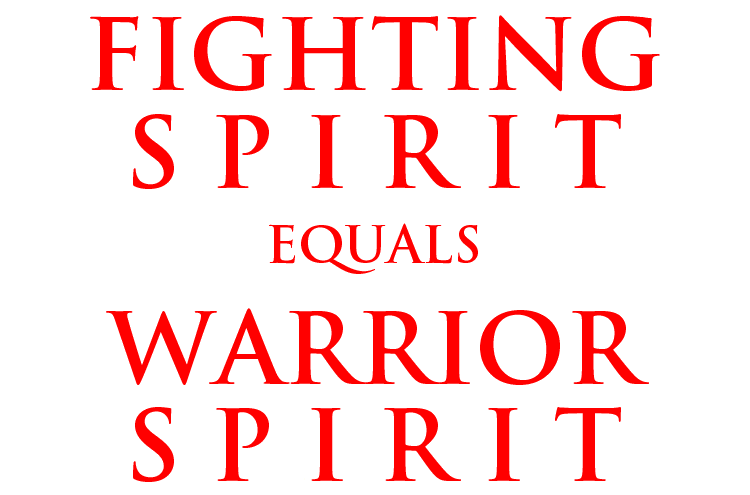

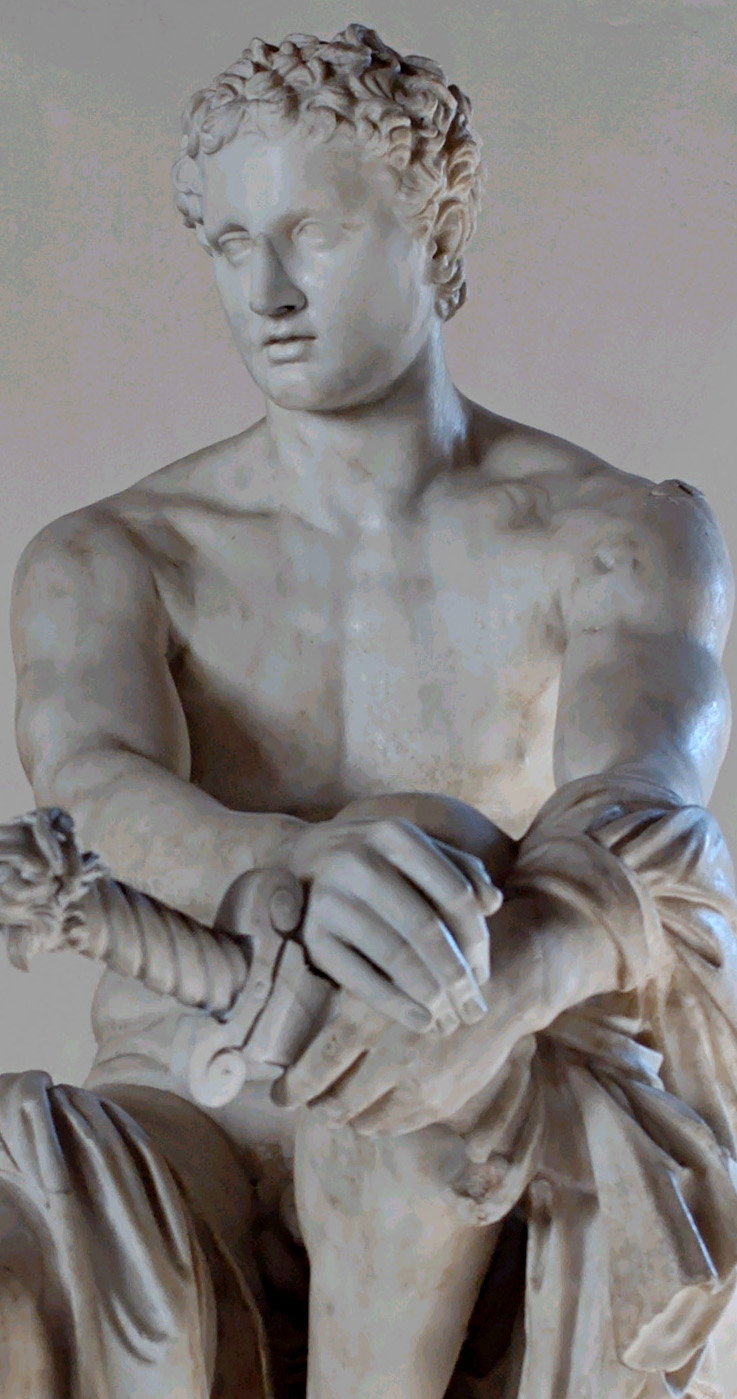



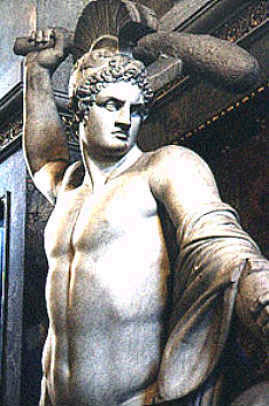
































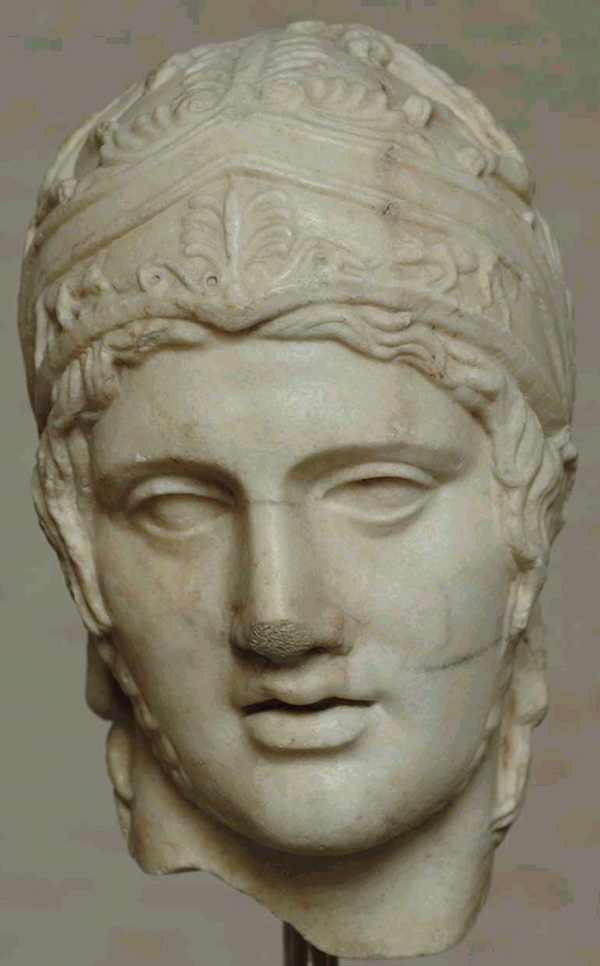

















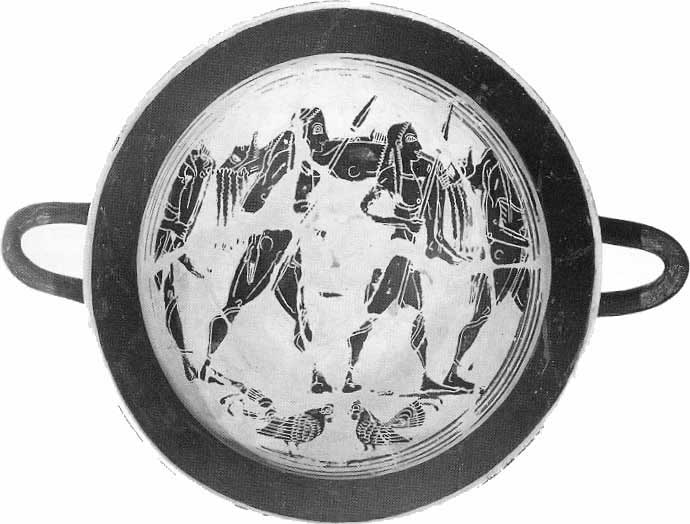














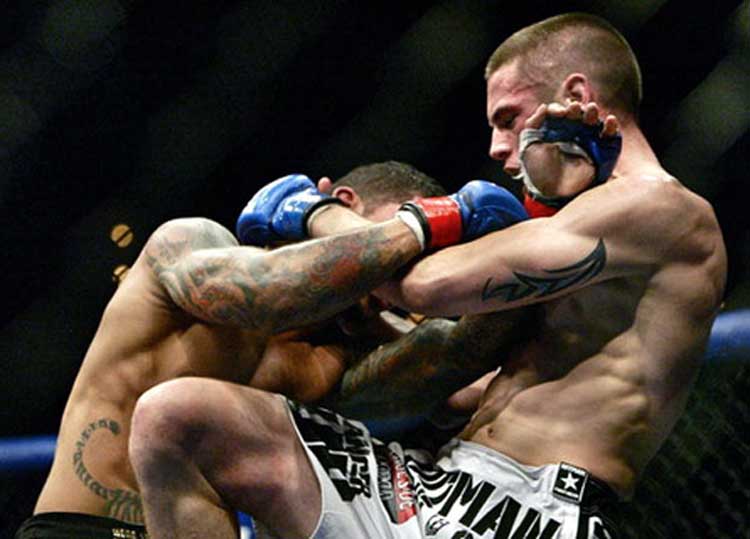














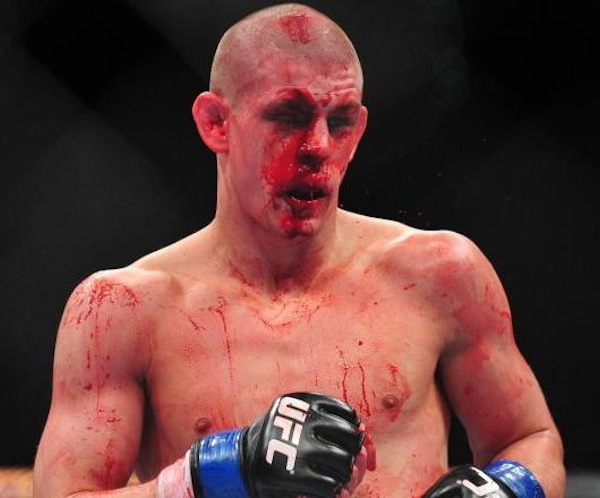

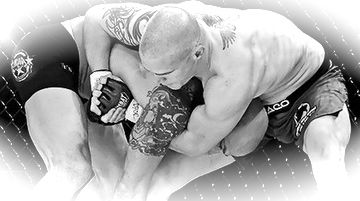
Recently I've been reading John Milton, the great English poet and defender of the Puritan and Parliamentary Revolution.
I've been reading his prose pieces -- which were written to advance that Revolutionary cause.
If you think I'm dogmatic and militant -- you should read Milton.
But his militancy helped bring about the freedoms we have today.
If an army went into battle without proper training and organisation they would lose. Historic example, in the English Civil War (1642 to 1646) the army of King Charles 1st was better organised and won most of the first battles; however Oliver Cromwell trained and organised the men fighting on Parliament's side into the New Model Army, and they won! If they had not been so organised the King would have carried on as the dictator he had been. Maybe eventually we would have got the freedoms that we enjoy now but it would have come more slowly and the monarch would have given them very grudgingly; so organisation is as you say vital to winning.









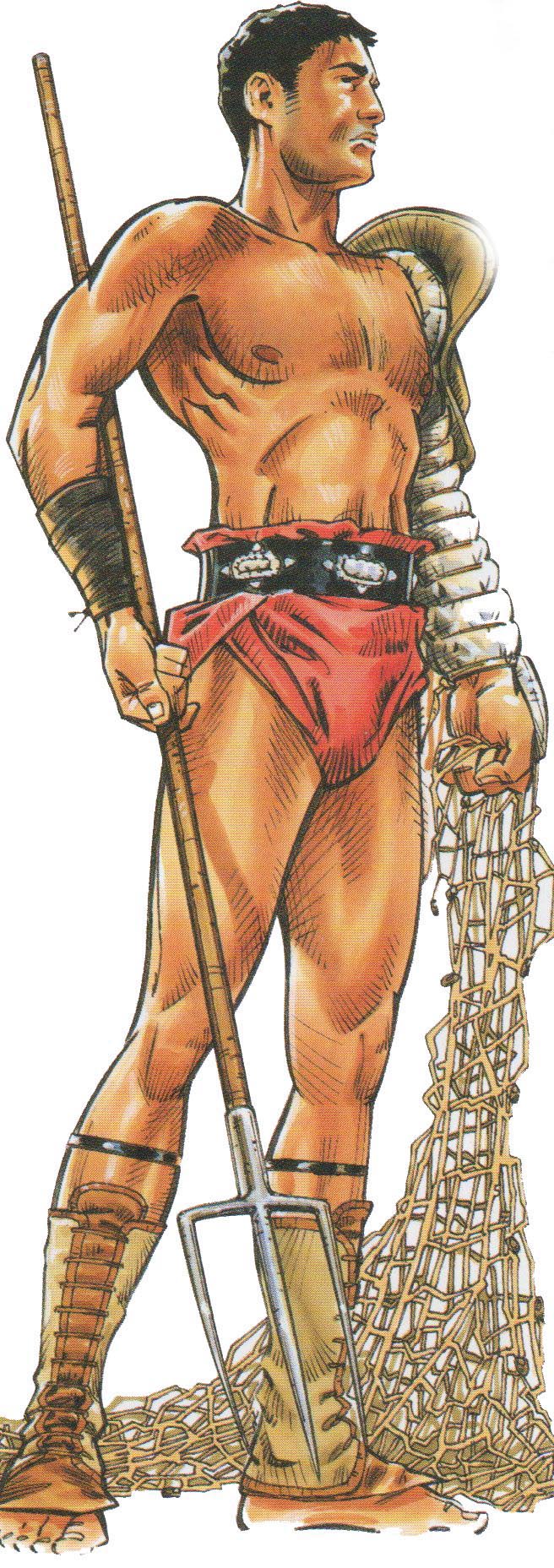


![]()


MANHOOD: A LEXICON
Word ListAncient Greek Words:
Manhood, manliness, strength, vigor, bravery, courage, excellence; Valour, gallantry, fortitude; Goodness, moral perfection, high character, virtue; Worth, merit, value.
Manhood, manliness, strength, vigor, bravery, courage, excellence; Valour, gallantry, fortitude; Goodness, moral perfection, high character, virtue; Worth, merit, value --
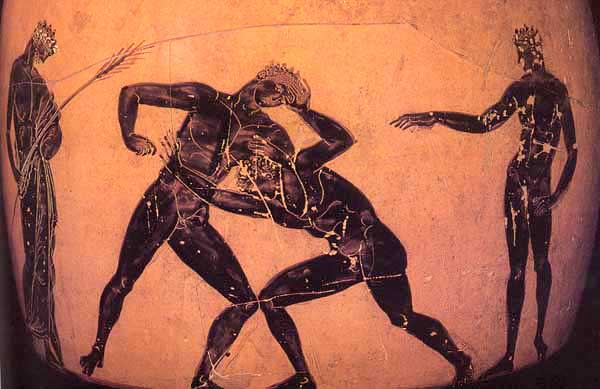
While the games were being held at Olympia, an old man was desirous of seeing them, but could find no seat. As he went to place after place, he met with insults and jeers, and nobody made room for him. But when he came opposite the Spartans, all the boys and many of the men arose and yielded their places. Whereupon the assembled multitude of Greeks expressed their approbation of the custom by applause, and commended the action beyond measure; but the old man, shaking "His head grey-haired and grey-bearded," and with tears in his eyes, said, 'Alas for the evil days ! Because all the Greeks know what is right and fair [ta kala -- The Noble Warrior Way of Manly Moral Beauty], but the Spartans alone practise it.'
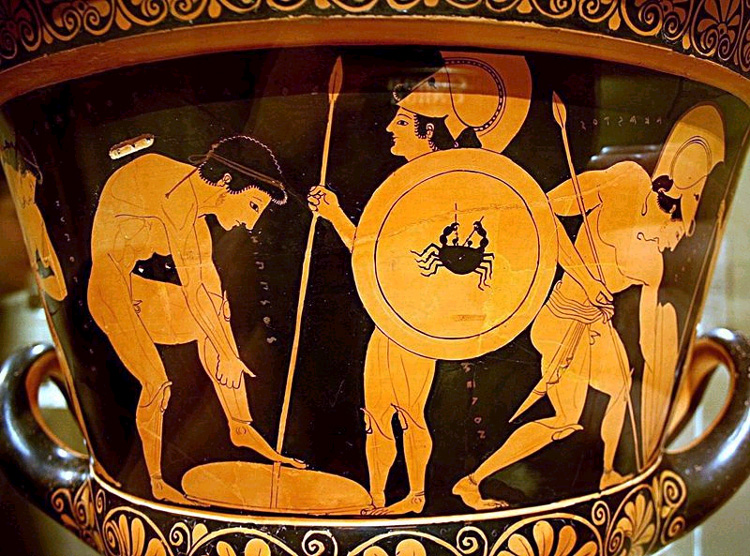
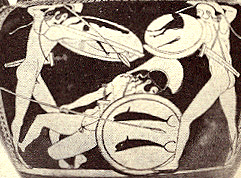
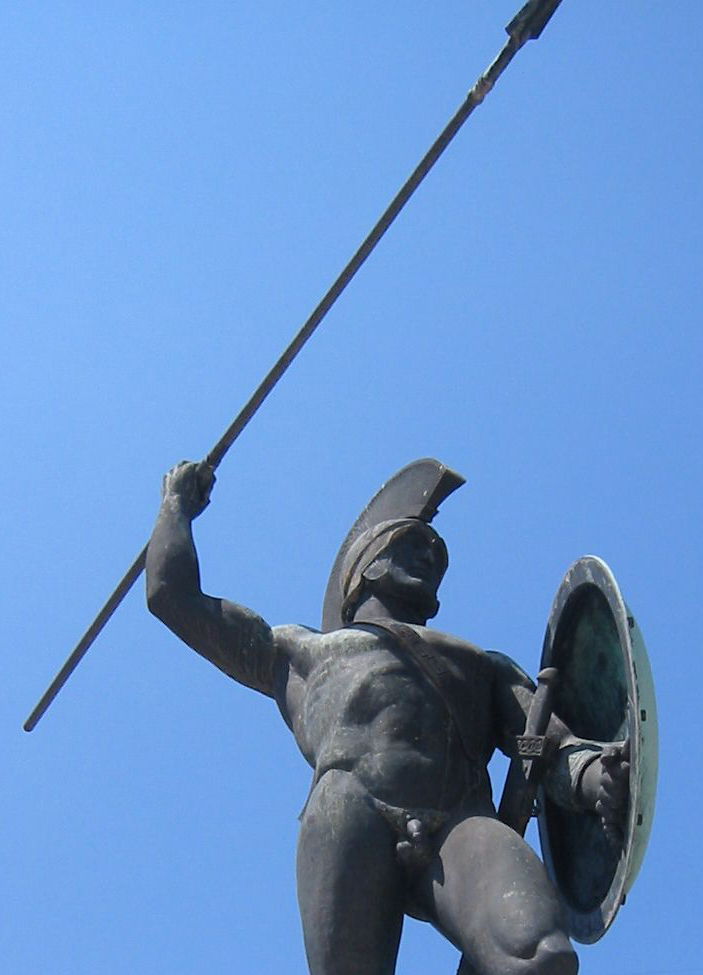



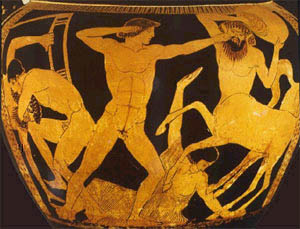
Manhood, manliness, strength, vigor, bravery, courage, excellence; Valour, gallantry, fortitude; Goodness, moral perfection, high character, virtue; Worth, merit, value.

From the same root [ARES] come areté, ari-, areion [better], aristos [best], the first notion of goodness being that of manhood, bravery in war; cf. Lat. virtus.
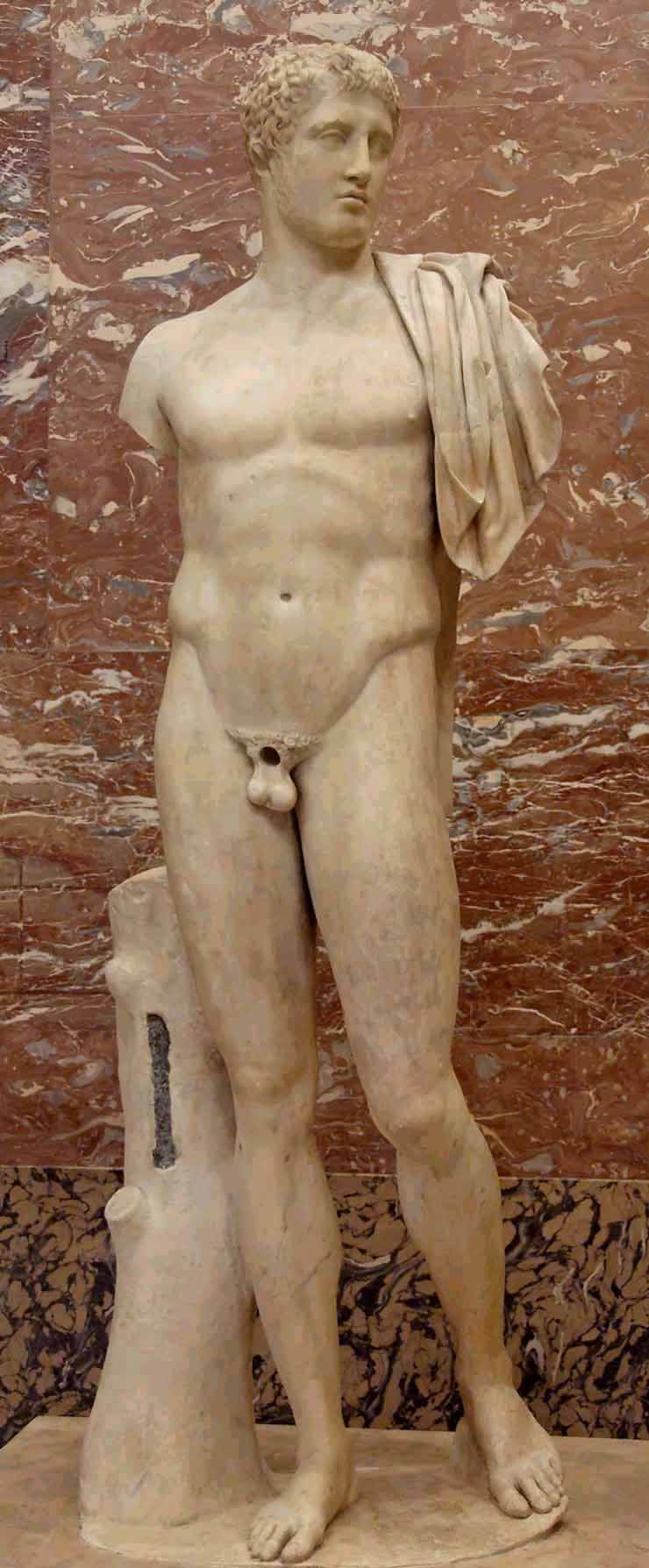
Diomedes
the short but glorious aristeia [heroism] of the Greek spirit. The basic motive of Greek areté is contained in the words 'to take possession of the beautiful'. The courage of a Homeric nobleman is superior to a mad berserk contempt of death in this -- that he subordinates his physical self to the demands of a higher aim, the beautiful. And so the man who gives up his life to win the beautiful, will find that his natural instinct for self-assertion finds its highest expression in self-sacrifice.
Ares, then, if you like, would be named for his virility [arren] and courage [andreion = courage, Manliness], or for his hard and unbending nature, which is called arratos; so Ares would be in every way a fitting name for the God of War.


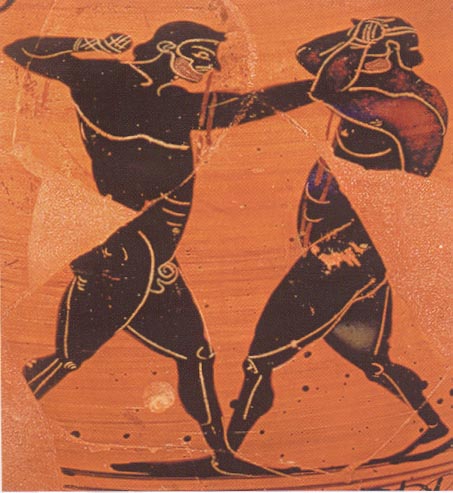

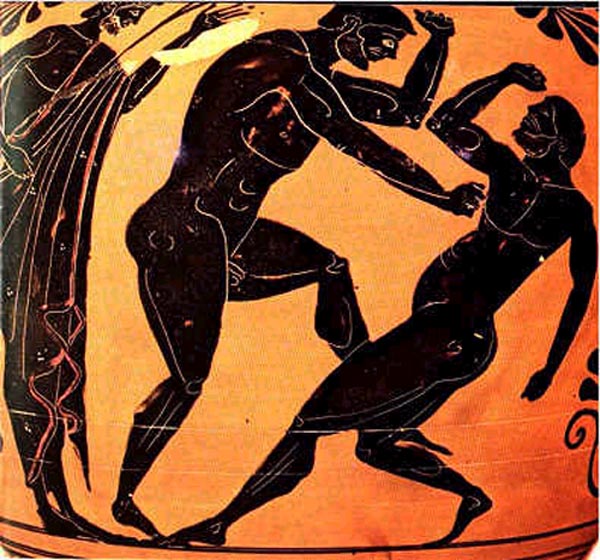
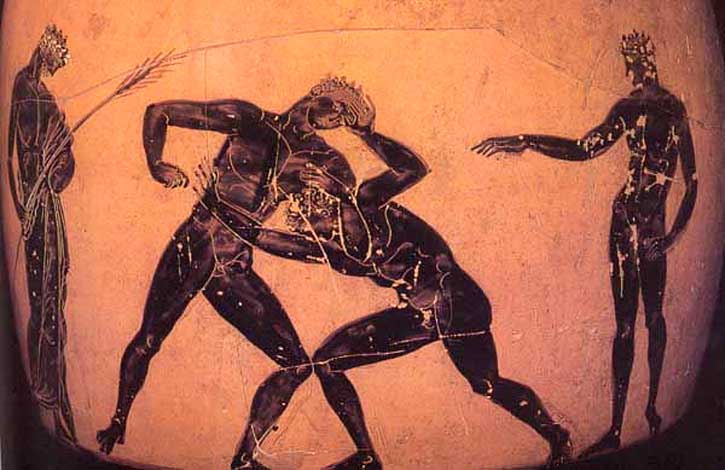


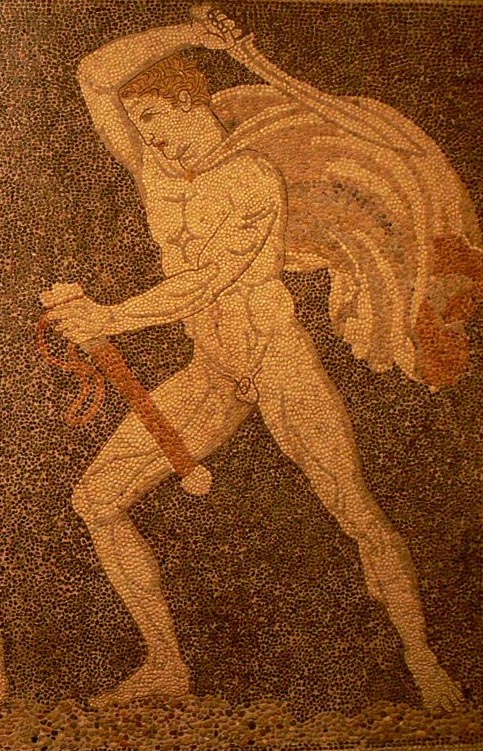
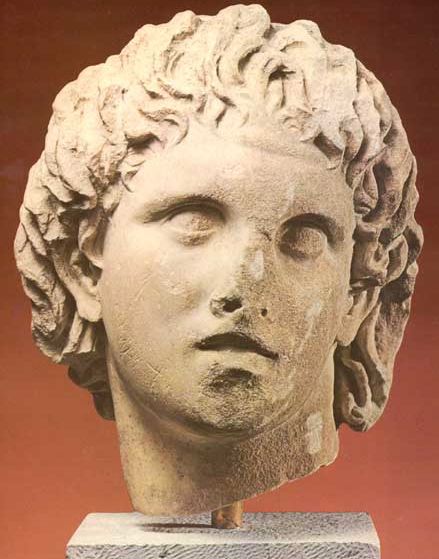
Alexander
Myth represents the active operations [daimonia] of the Gods.





The contemplation of the ειδωλον, image or symbol, leads us to the reality. The reality is always the Platonic Idea [which resides in the World of Being]. The ειδωλον, in the case of ordinary "things," is the material copy which men mistake for the reality. In the case of spiritual things and moral ideas, there is no visible image or symbol, but imperfect analogies, popular definitions, suggestive phrases . . .
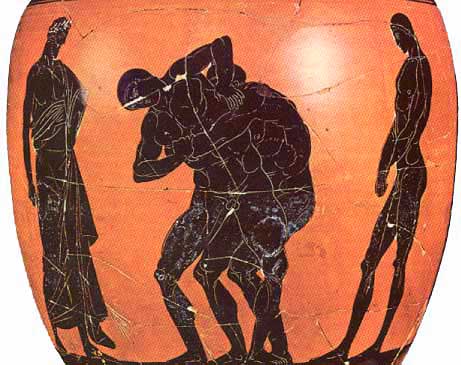
Wrestling
The ephedros is on the right ;
he'll Wrestle the Victor of the bout
[V]ictory in competition for timé also carried with it a strong entitlement to the obedience and deference of others and, therefore, lay at the basis of the loyalty of man for man. For it was simply in the nature of things, Greeks thought, for lesser men to respect and obey persons of the highest timé, worth, inasmuch as they were "worthy" of such treatment. Both gods [sic] and men paid automatic, unthinking respect to timé, and men paid respect to the gods [sic] at least in part because of their supreme timé.
The troops were, indeed, suffering terribly, but their discipline was wonderful. They made no attempt to beat off the enemy who were attacking them, but simply waited for the word from their God and their general, while they were shot and struck down at their posts.
The ruin of Paganism, in the age of Theodosius, is perhaps the only example of the total extirpation of any ancient and popular superstition; and may therefore deserve to be considered as a singular event in the history of the human mind.
The order was passed along the line to prepare for action, and suddenly there came over the whole phalanx the look of some ferocious beast, as it wheels at bay, stiffens its bristles, and turns to defend itself, so that the barbarians could no longer doubt that they were faced with Men who would Fight to the Death.
Hybris was both the act of insult -- whatever the reason for it -- and the arrogant disposition that disposed a man to the insult.
[T]he Athenians would not grant the Spartans the highest meed of valor [aristeia], nor allow them to erect a general trophy [tropaion], and the cause of the Hellenes had certainly gone at once to destruction from their armed contention, had not [the Athenian general and politician] Aristides, by abundant exhortation and admonition, checked his fellow-generals, especially Leocrates and Myronides, and persuaded them to submit the case to the Hellenes for decision.
Thereupon, in the council of the Hellenes, Theogeiton the Megarian said that the meed of valor must be given to some third city, unless they desired the confusion of a civil war. At this point Cleocritus the Corinthian rose to speak. Every one thought he would demand the meed of valor for the Corinthians, since Corinth was held in greatest estimation after Sparta and Athens. But to the astonishment and delight of all, he made a proposition in behalf of the Plataeans, and counselled to take away contention by giving them the meed of valor, since at their honor neither claimant could take offence.
